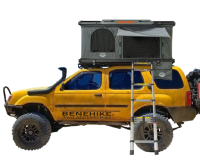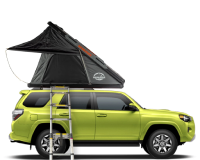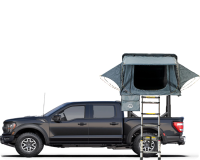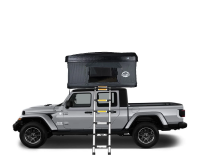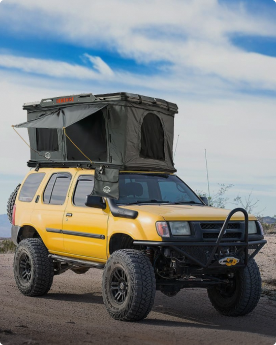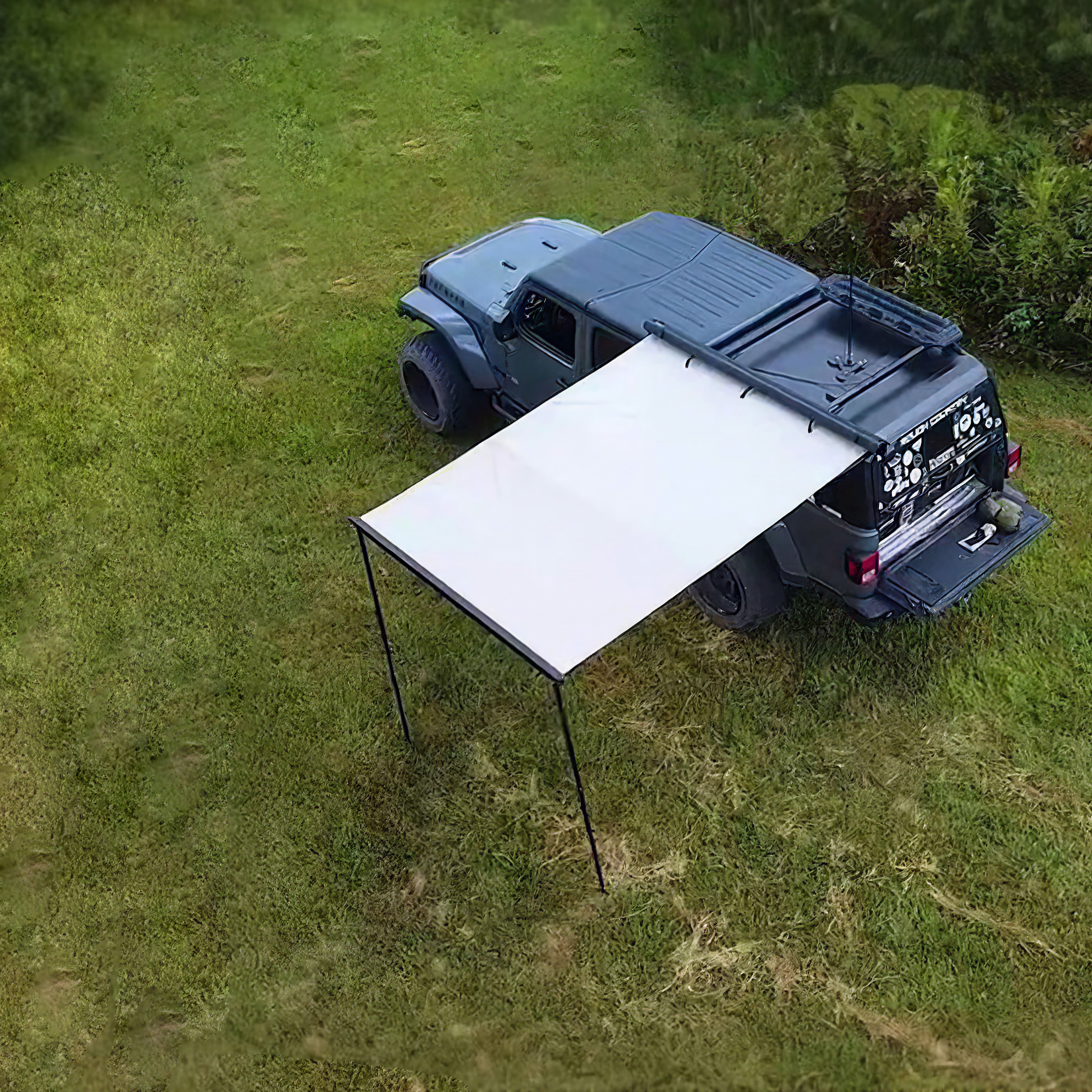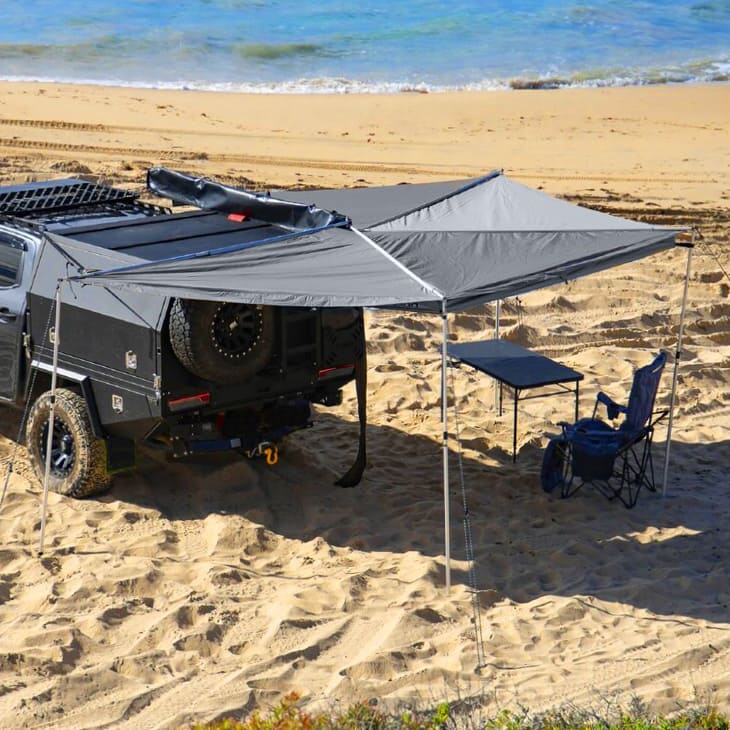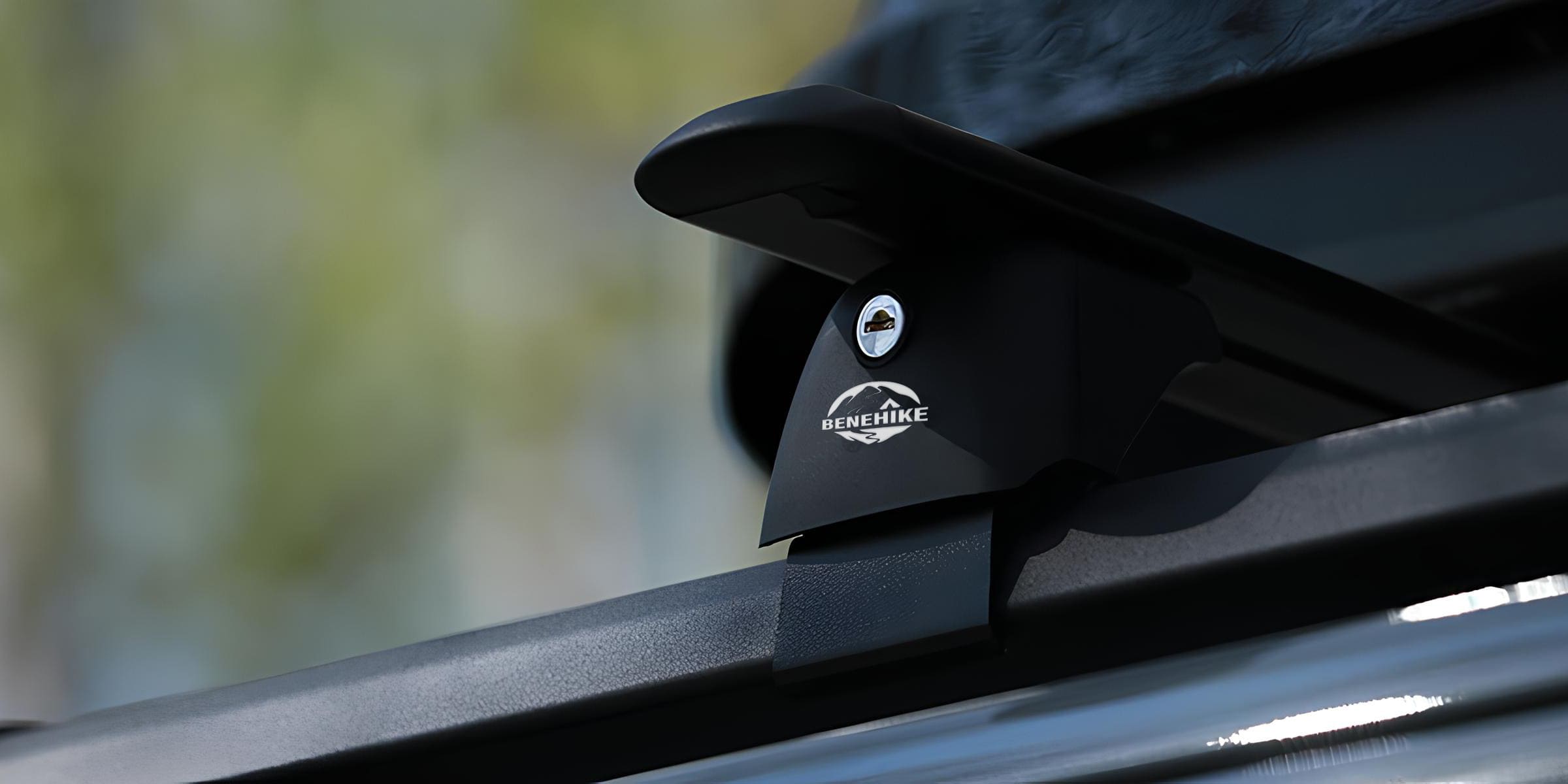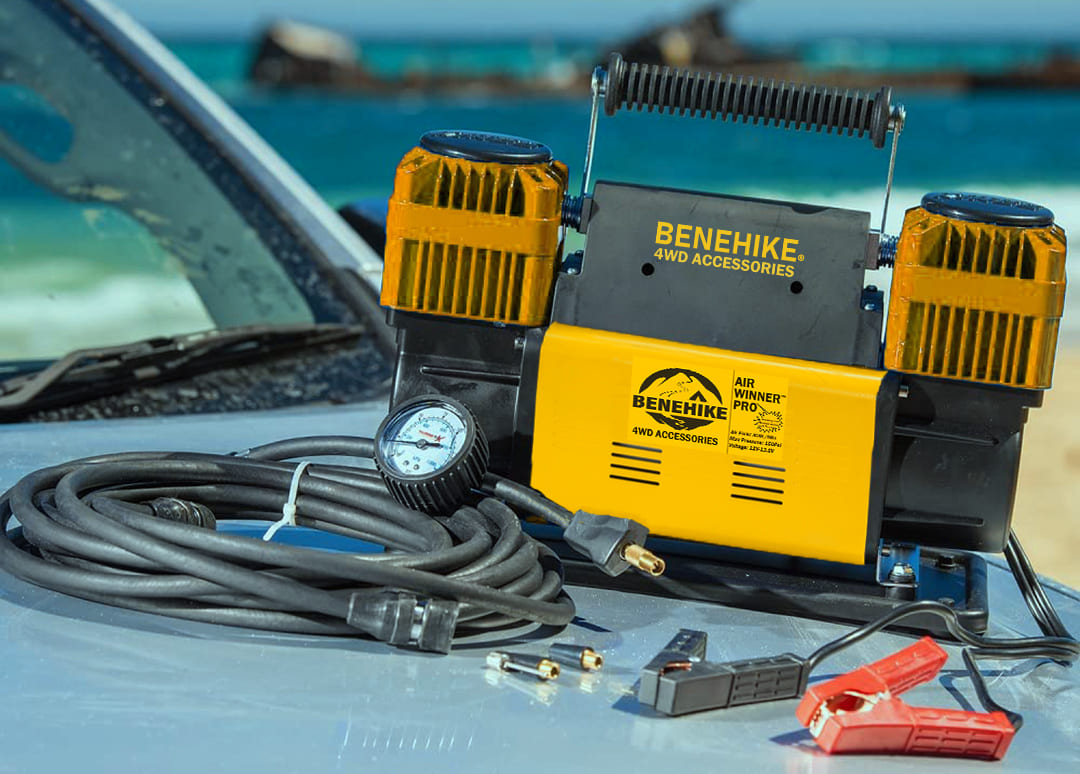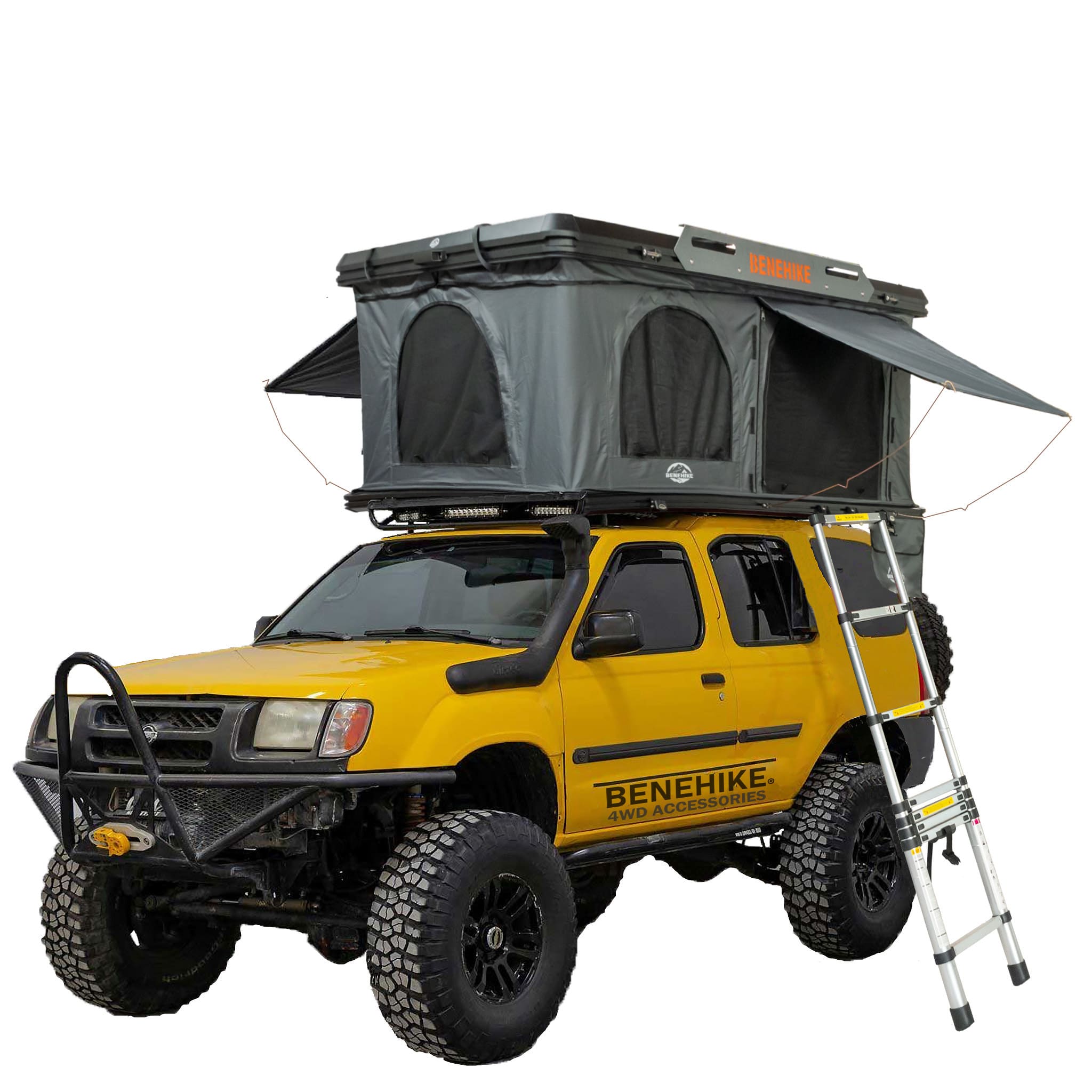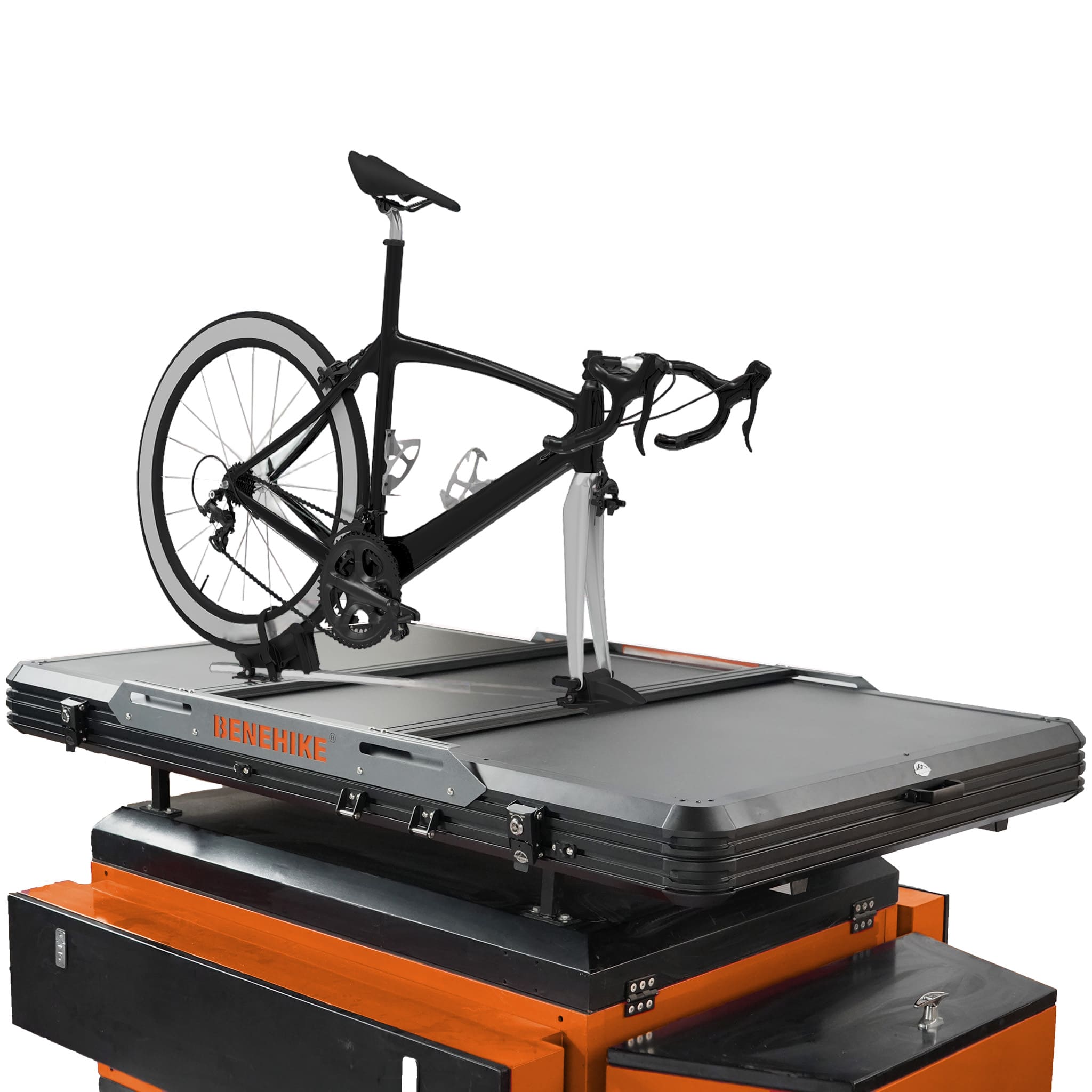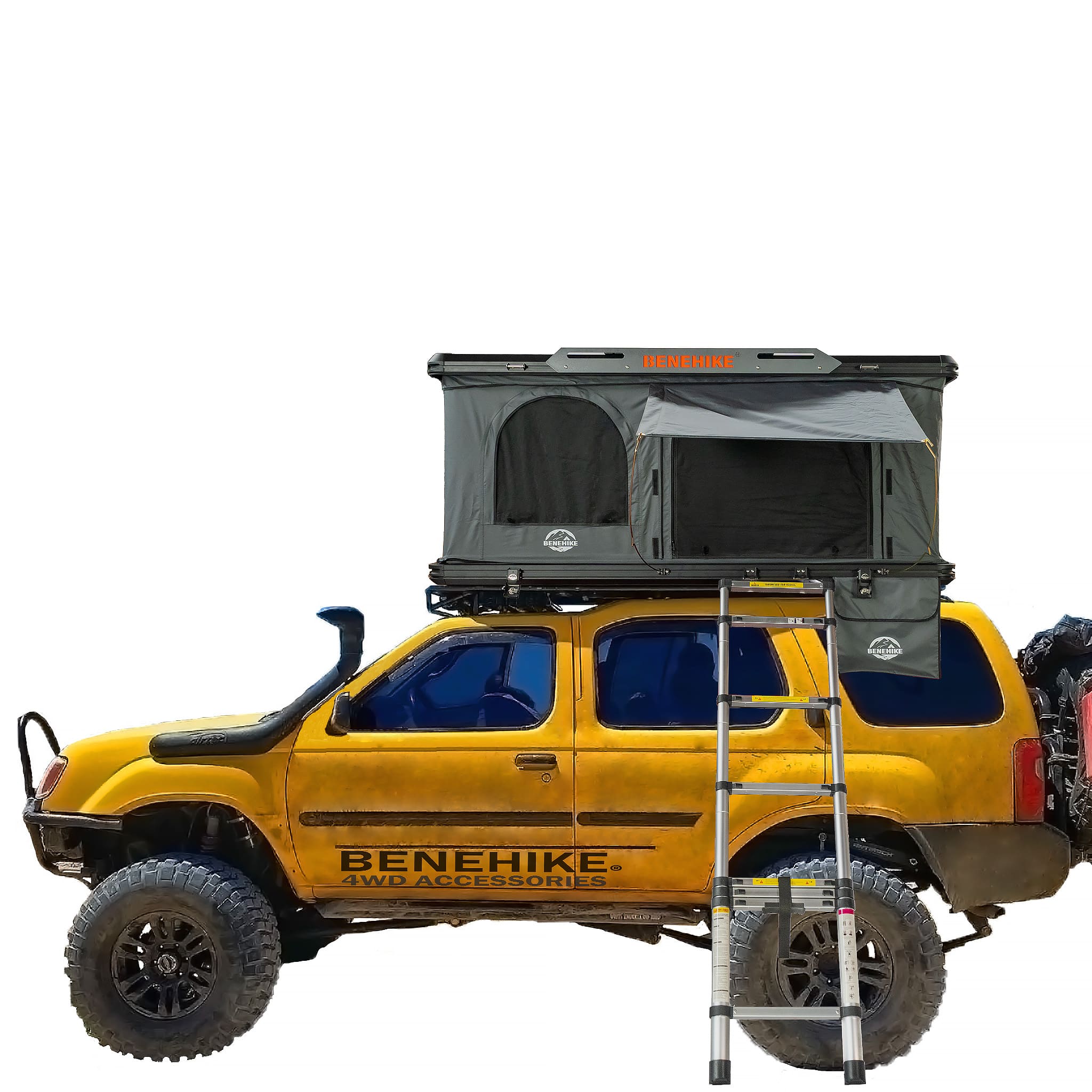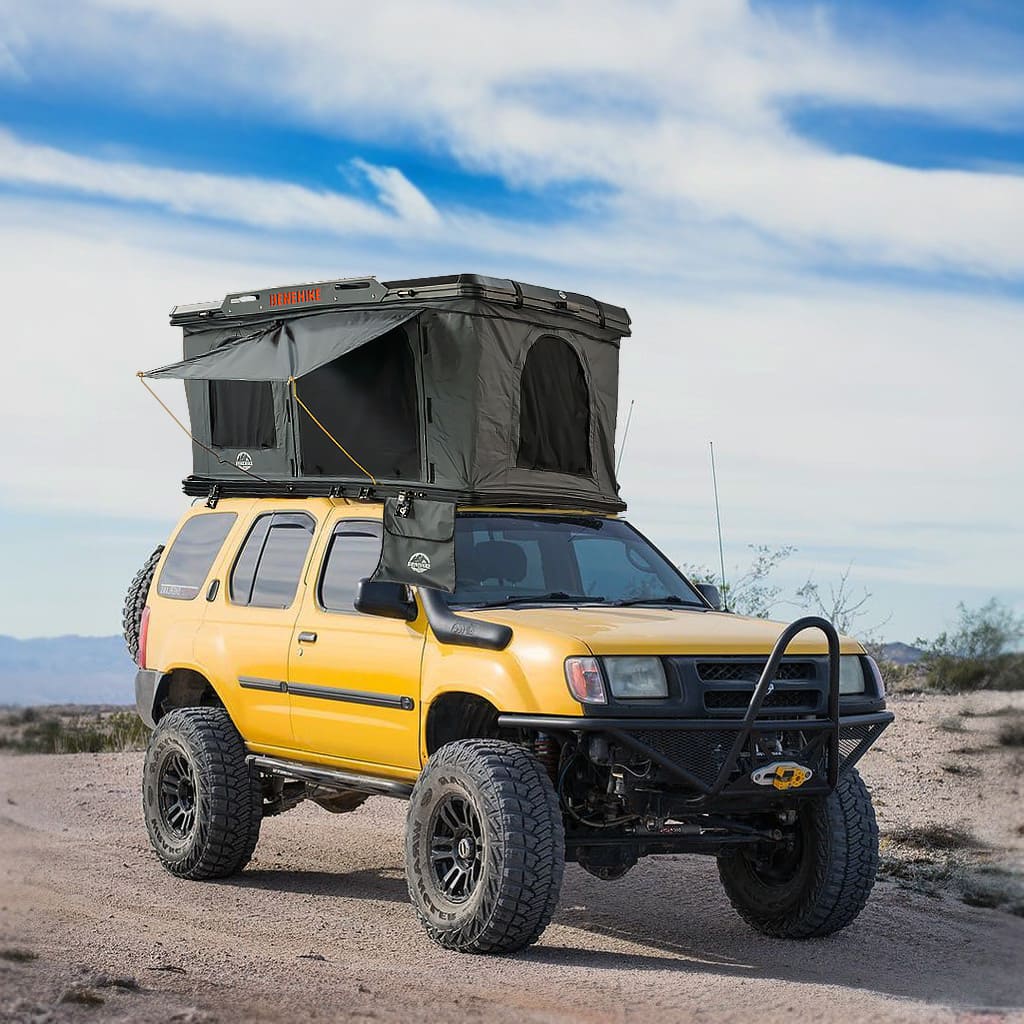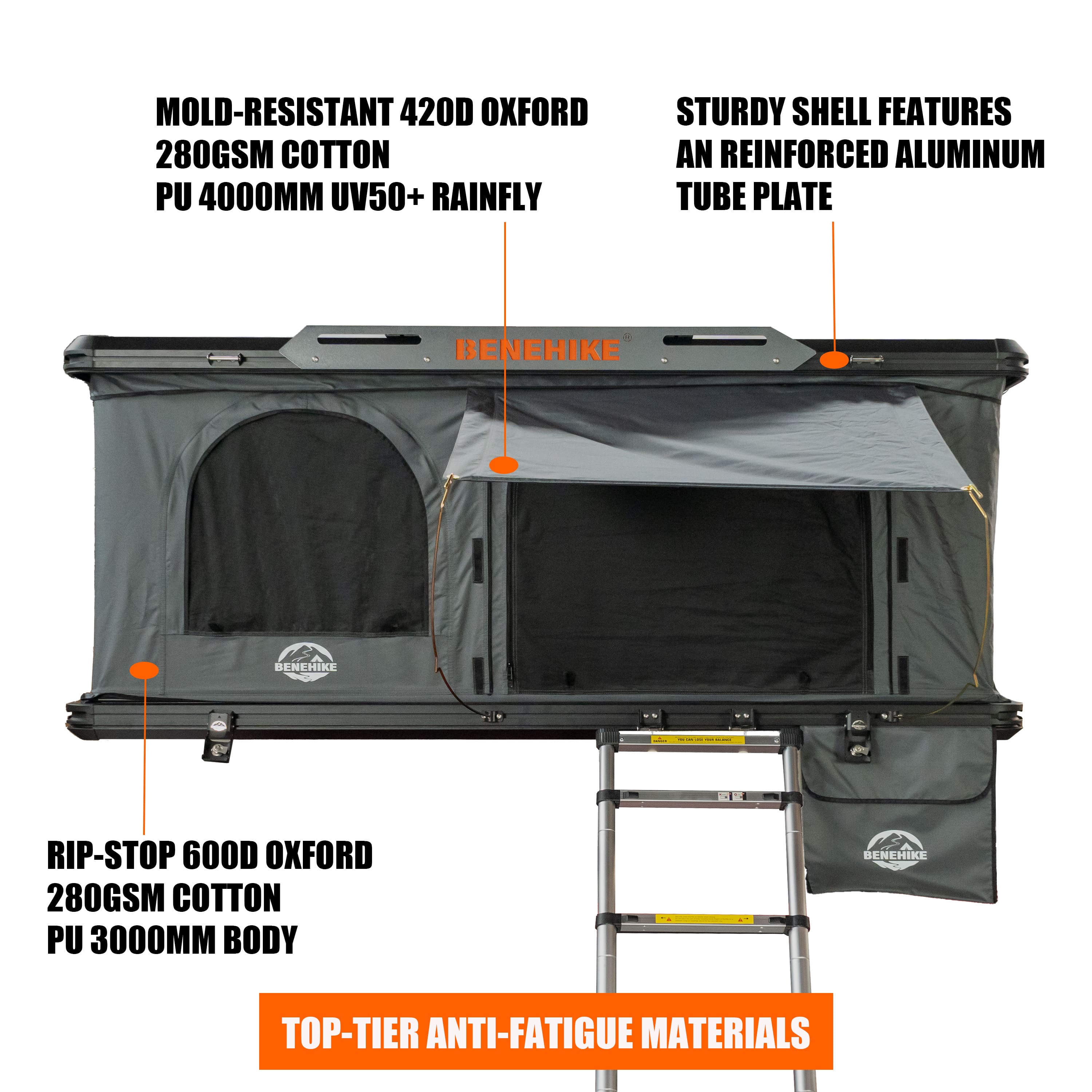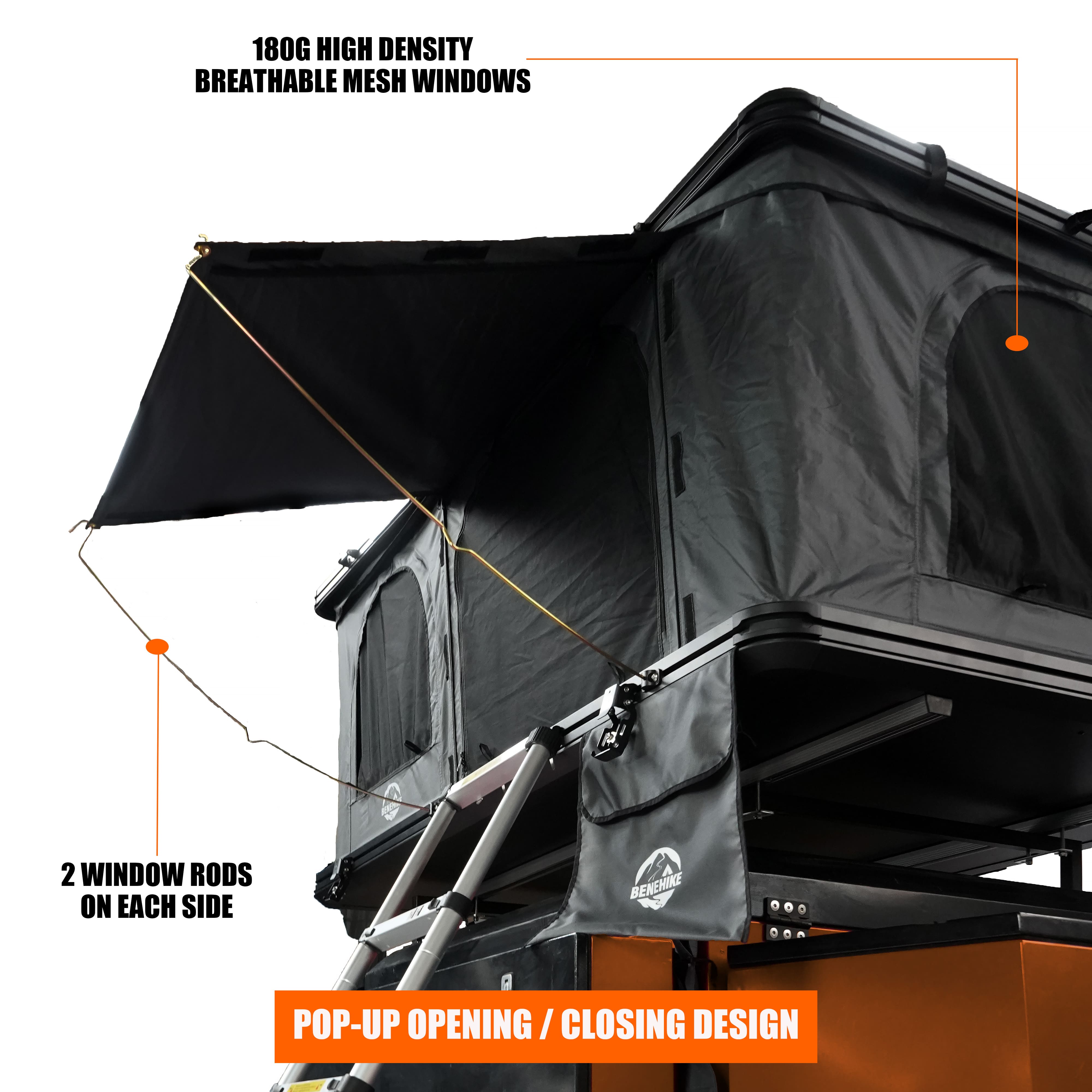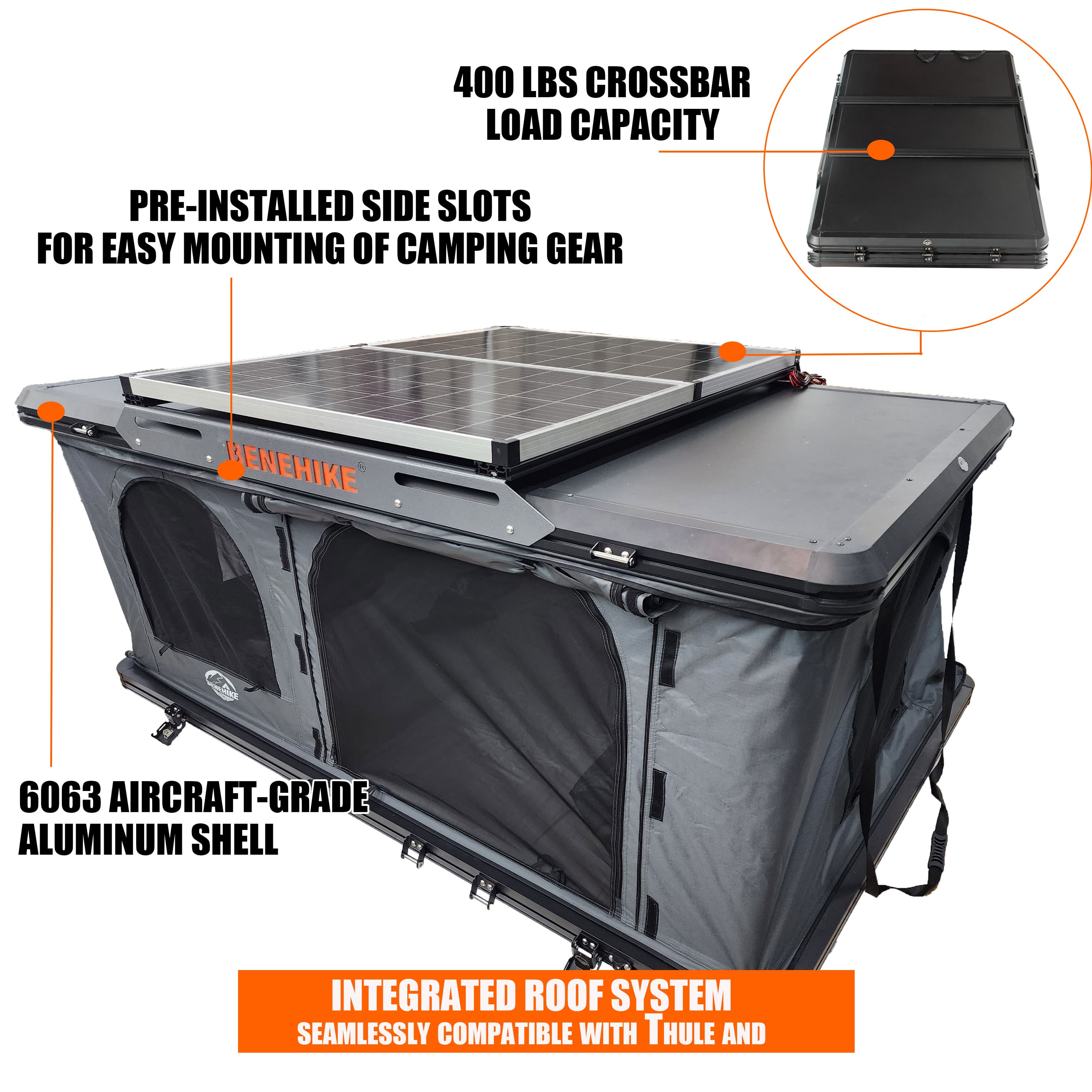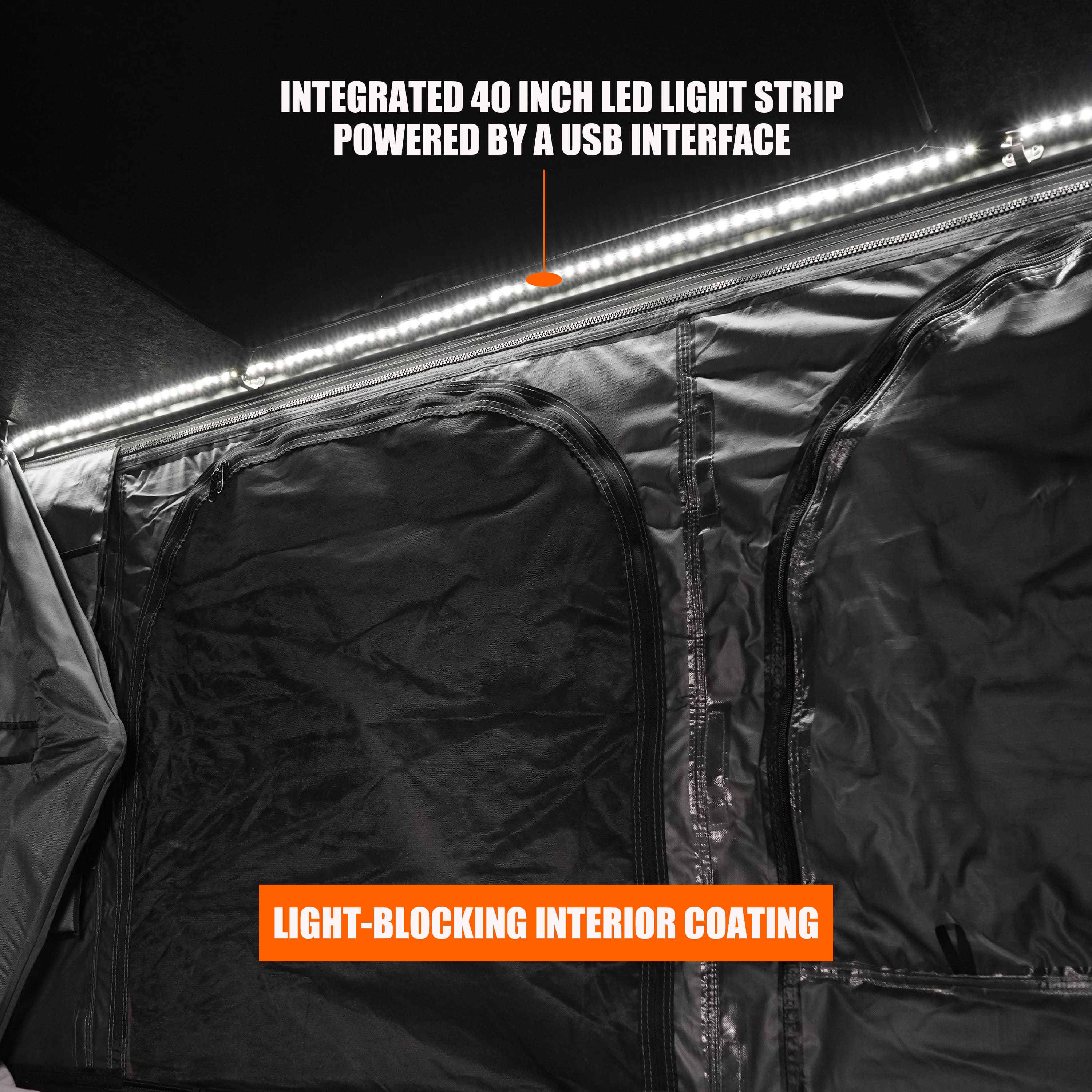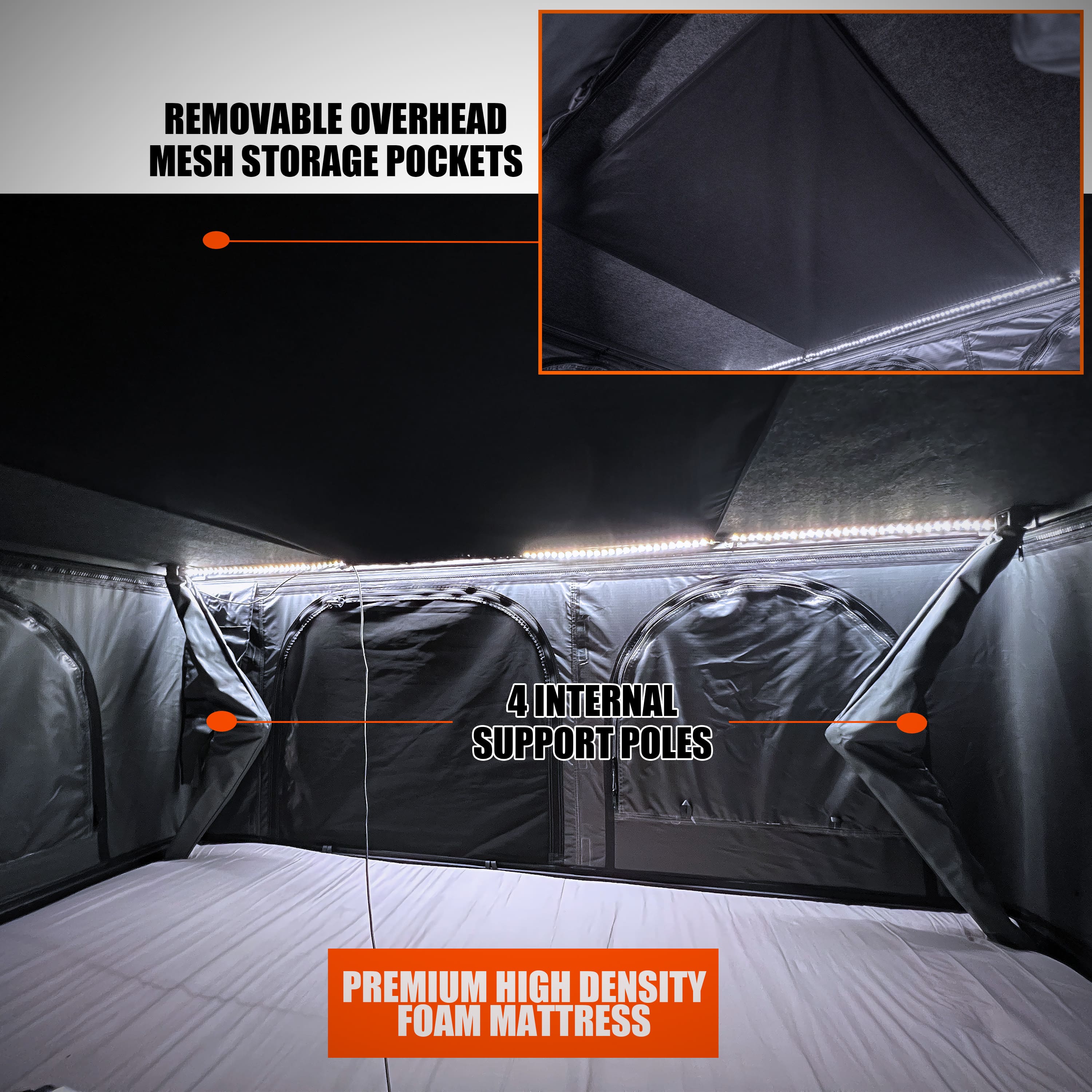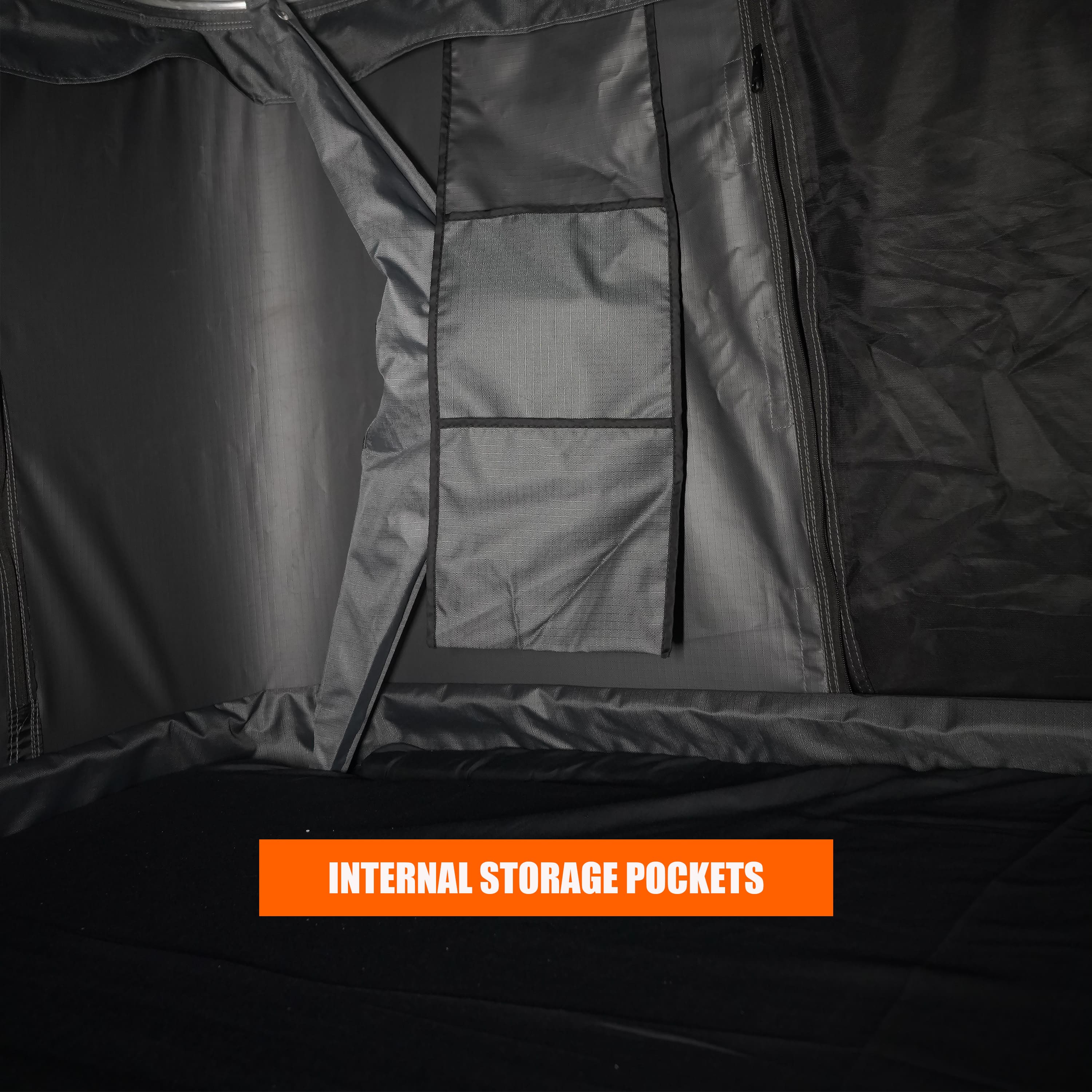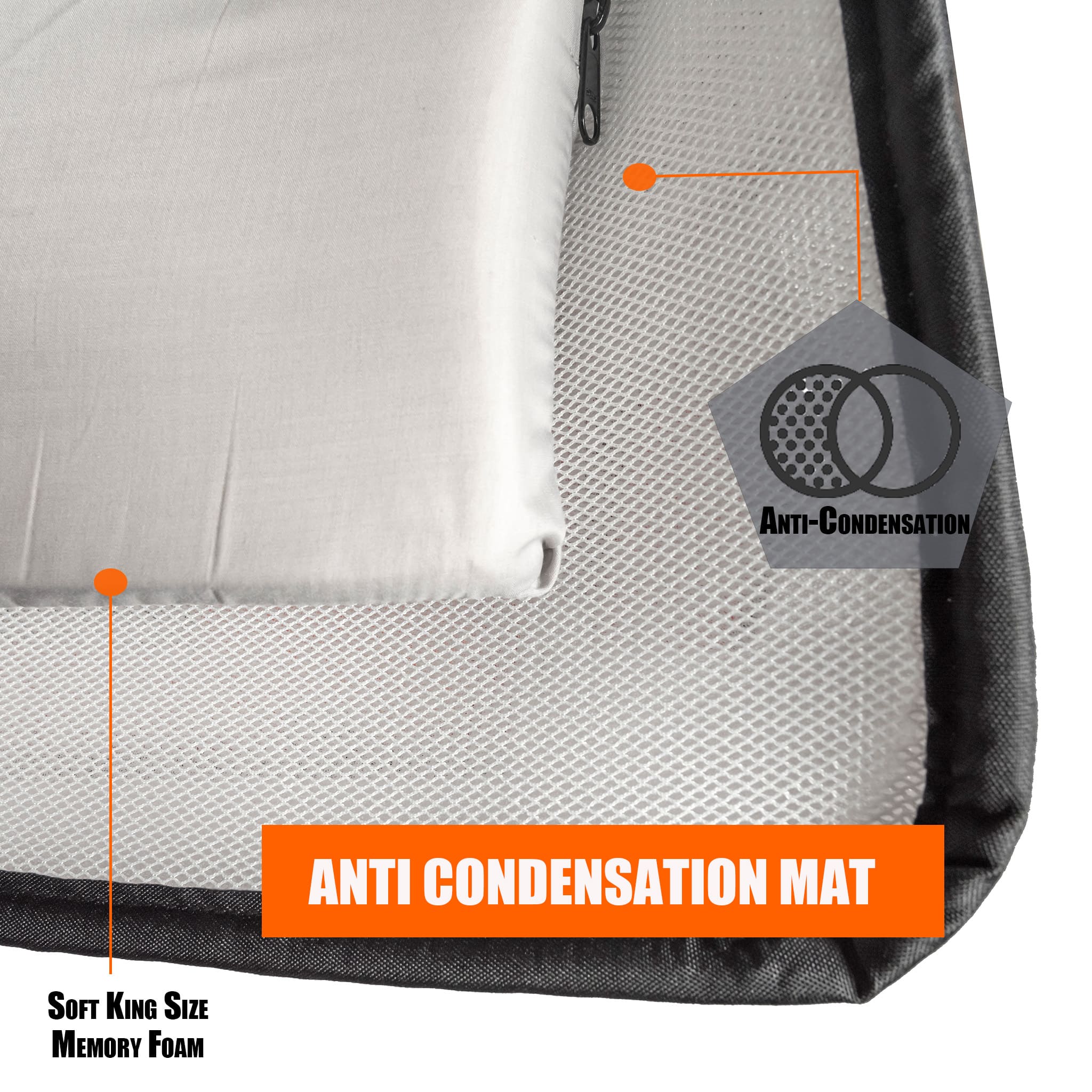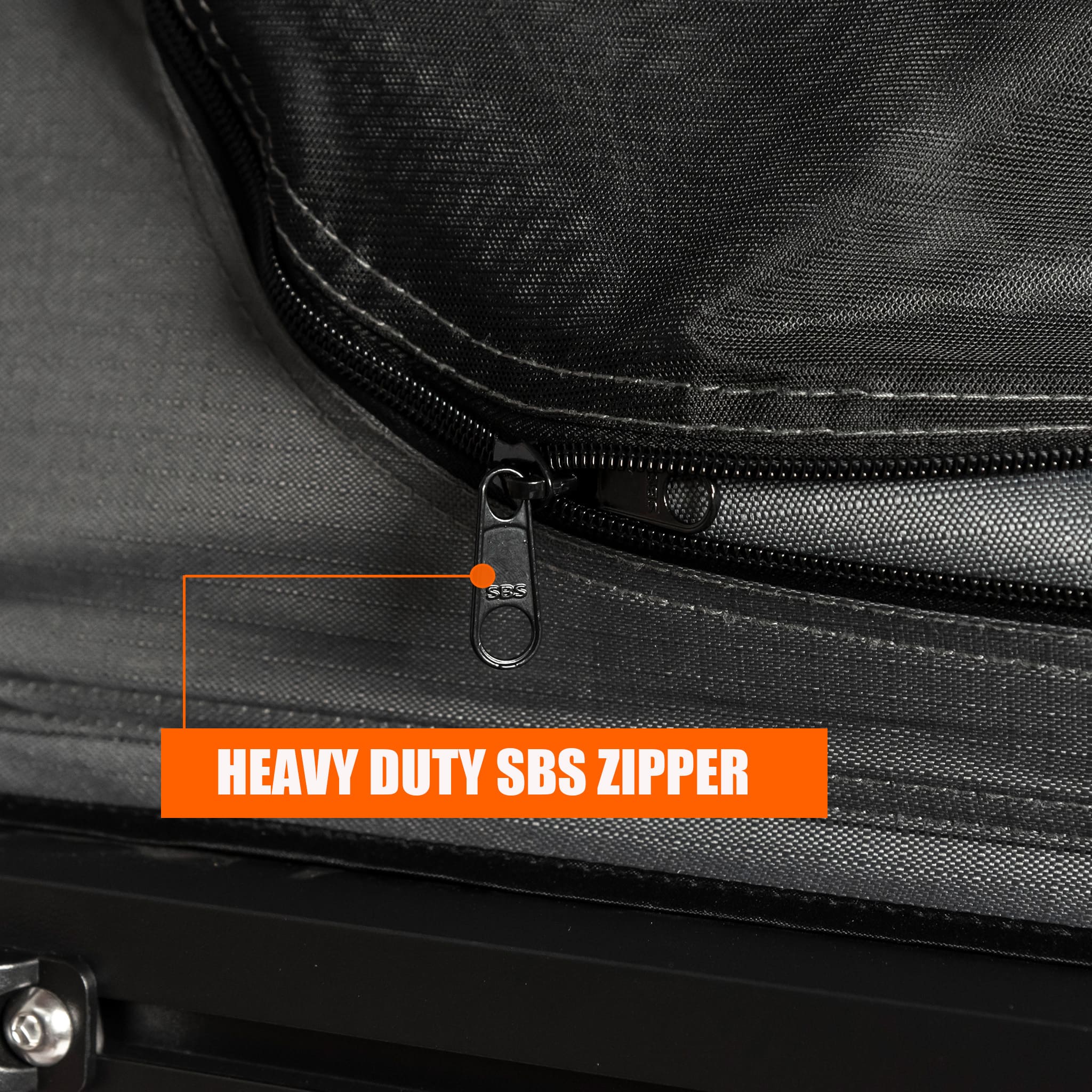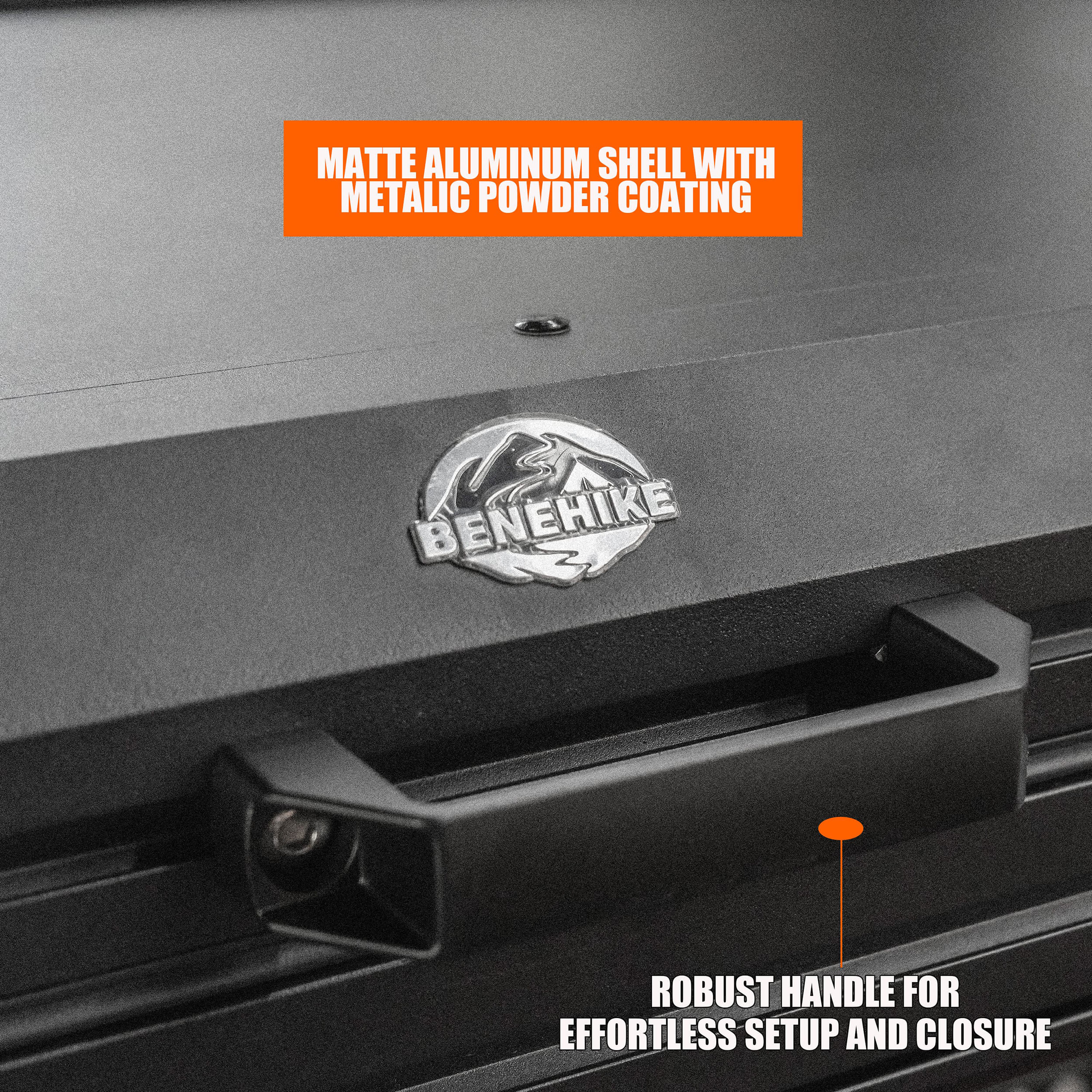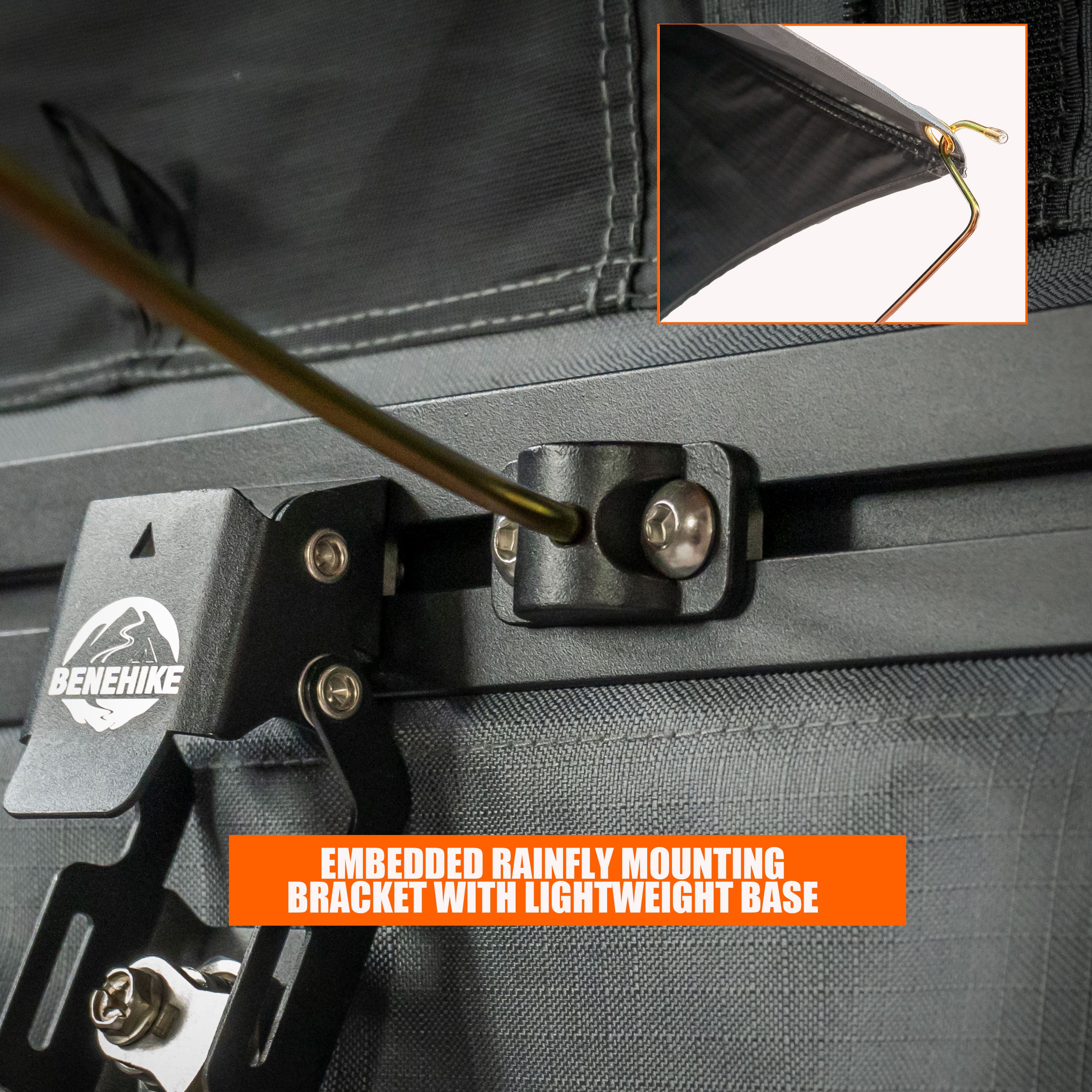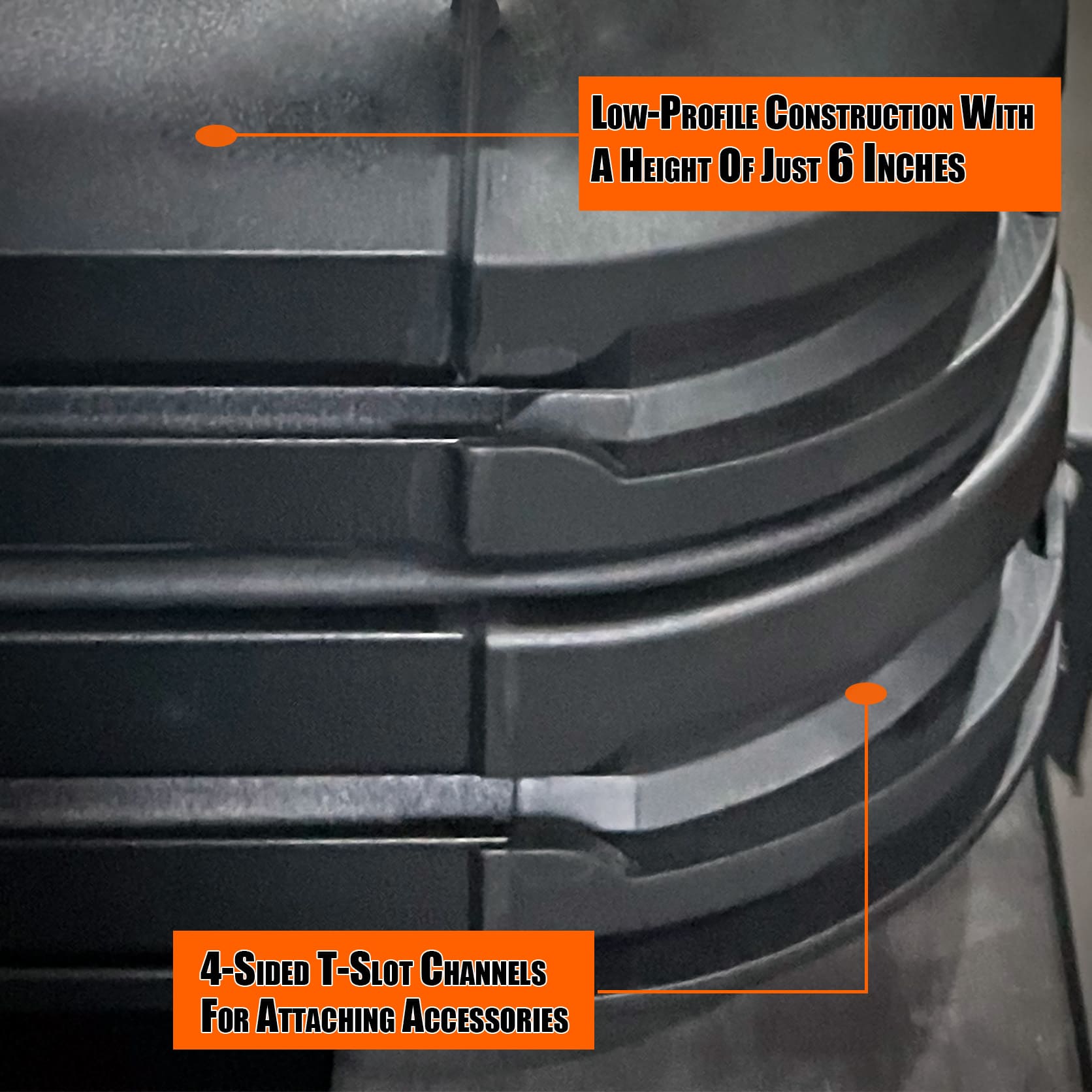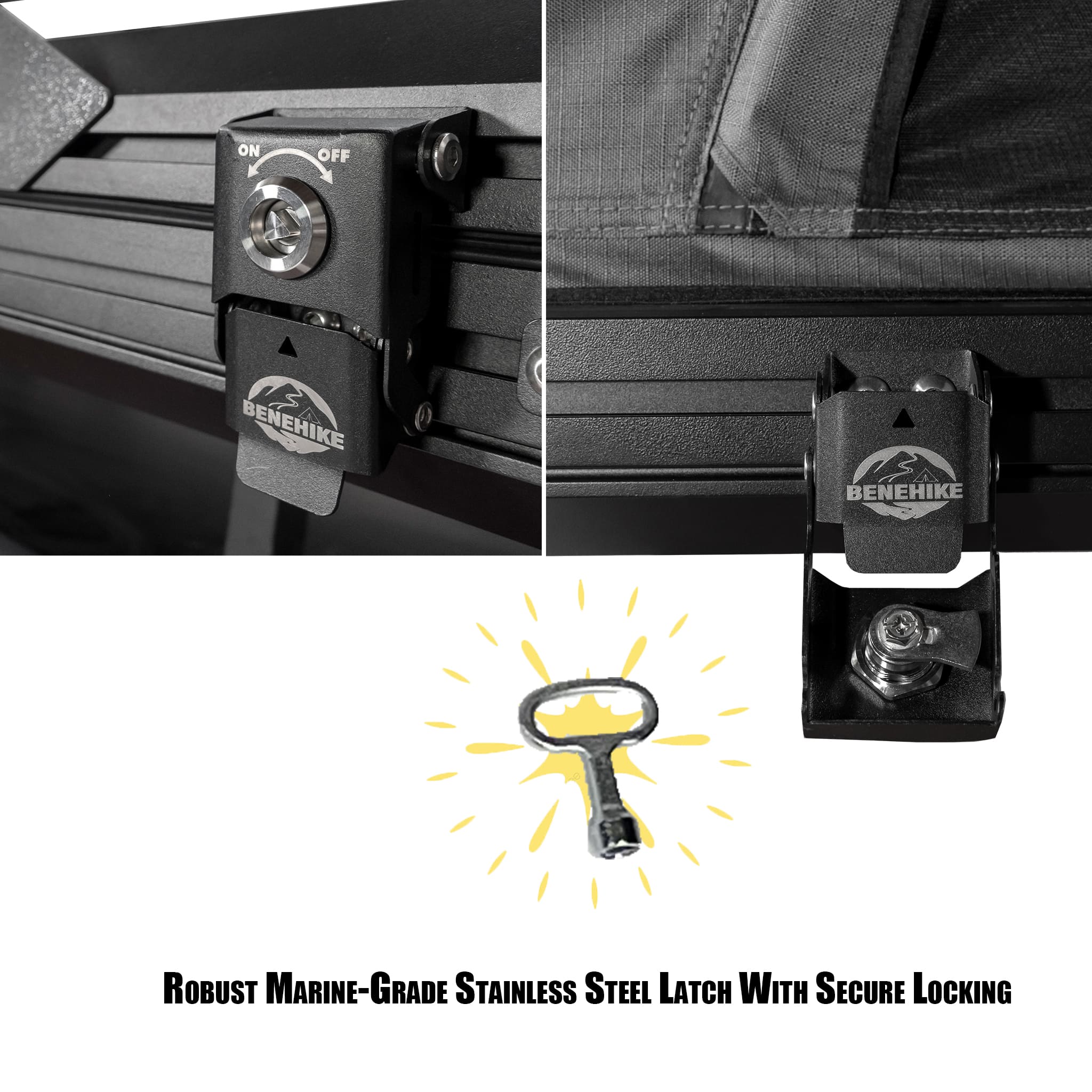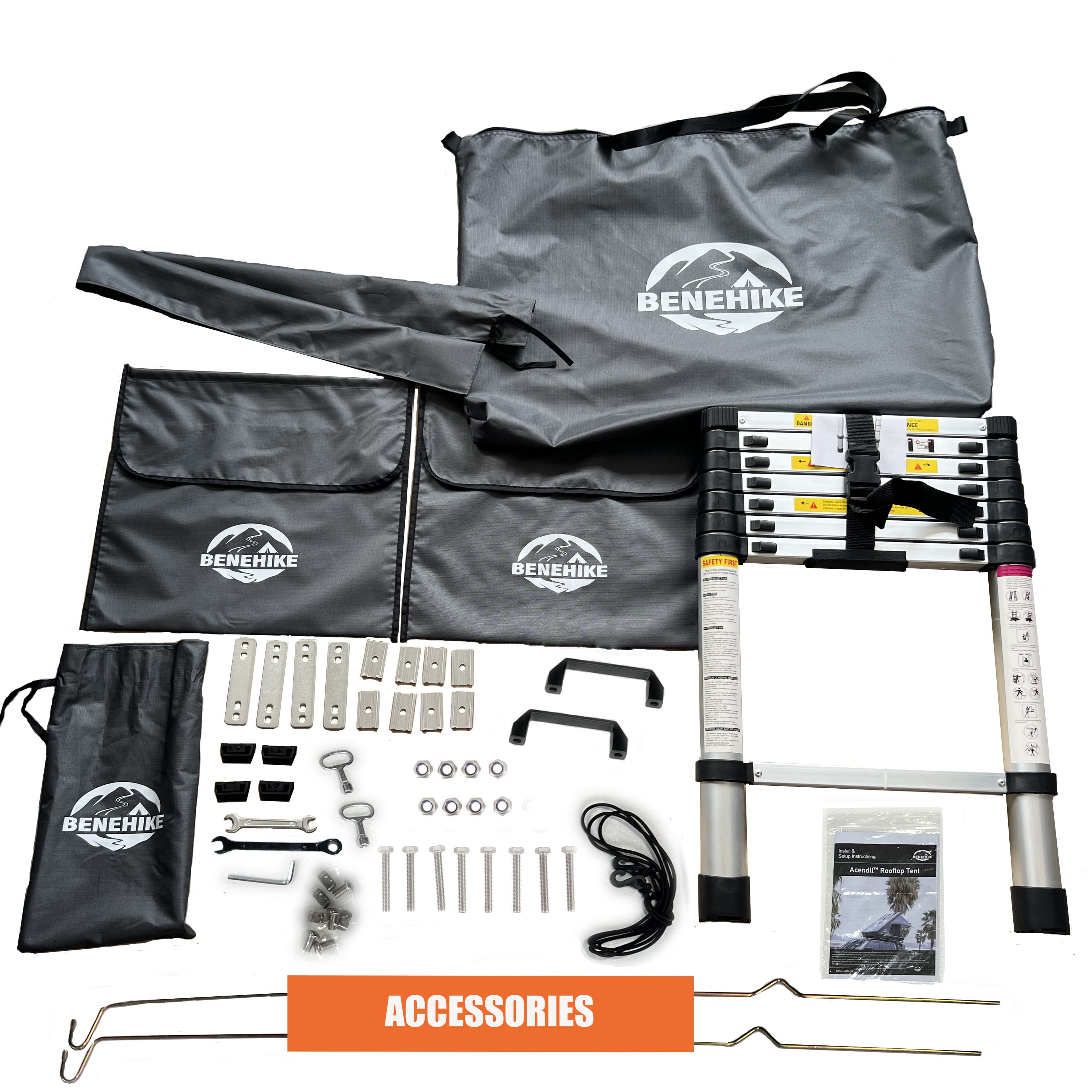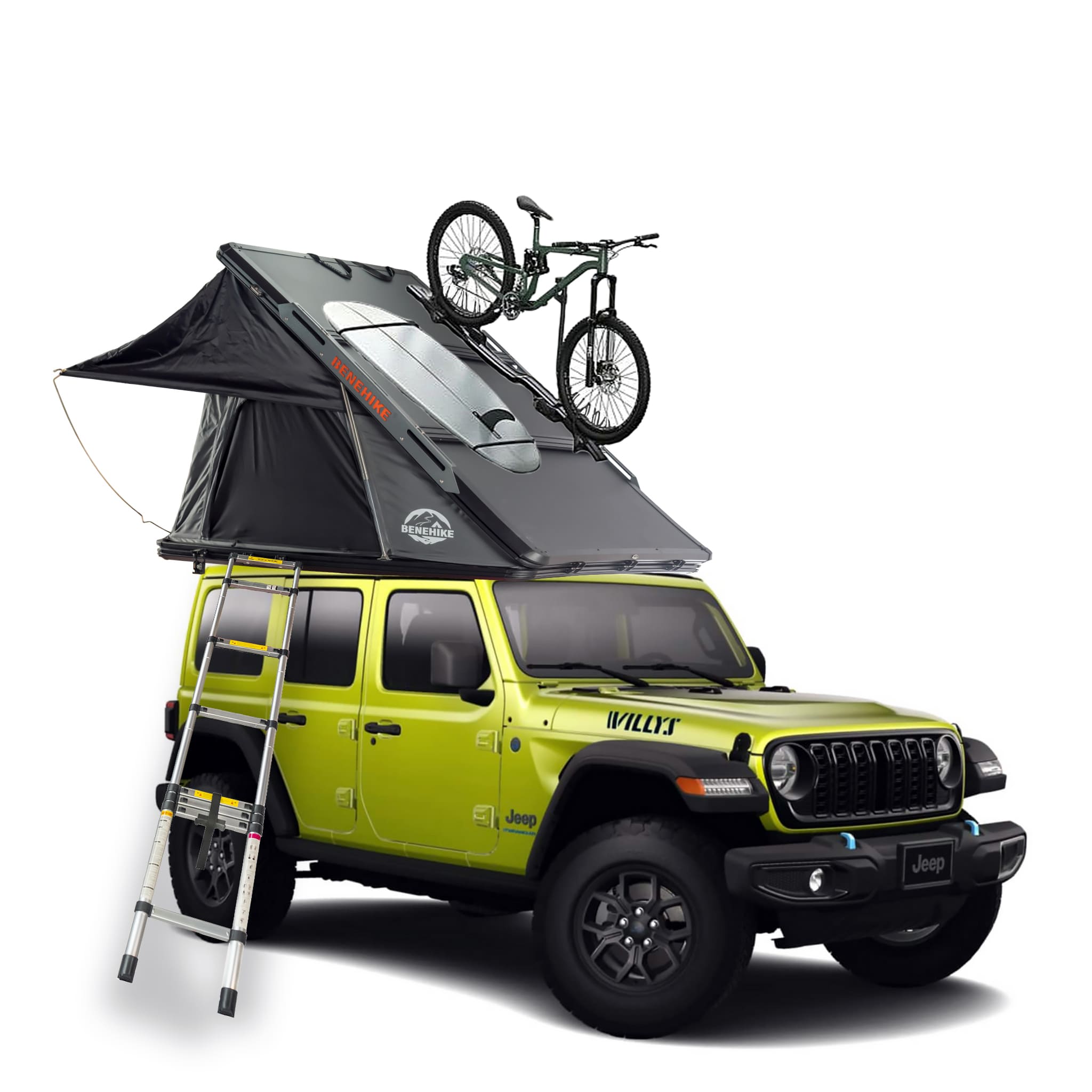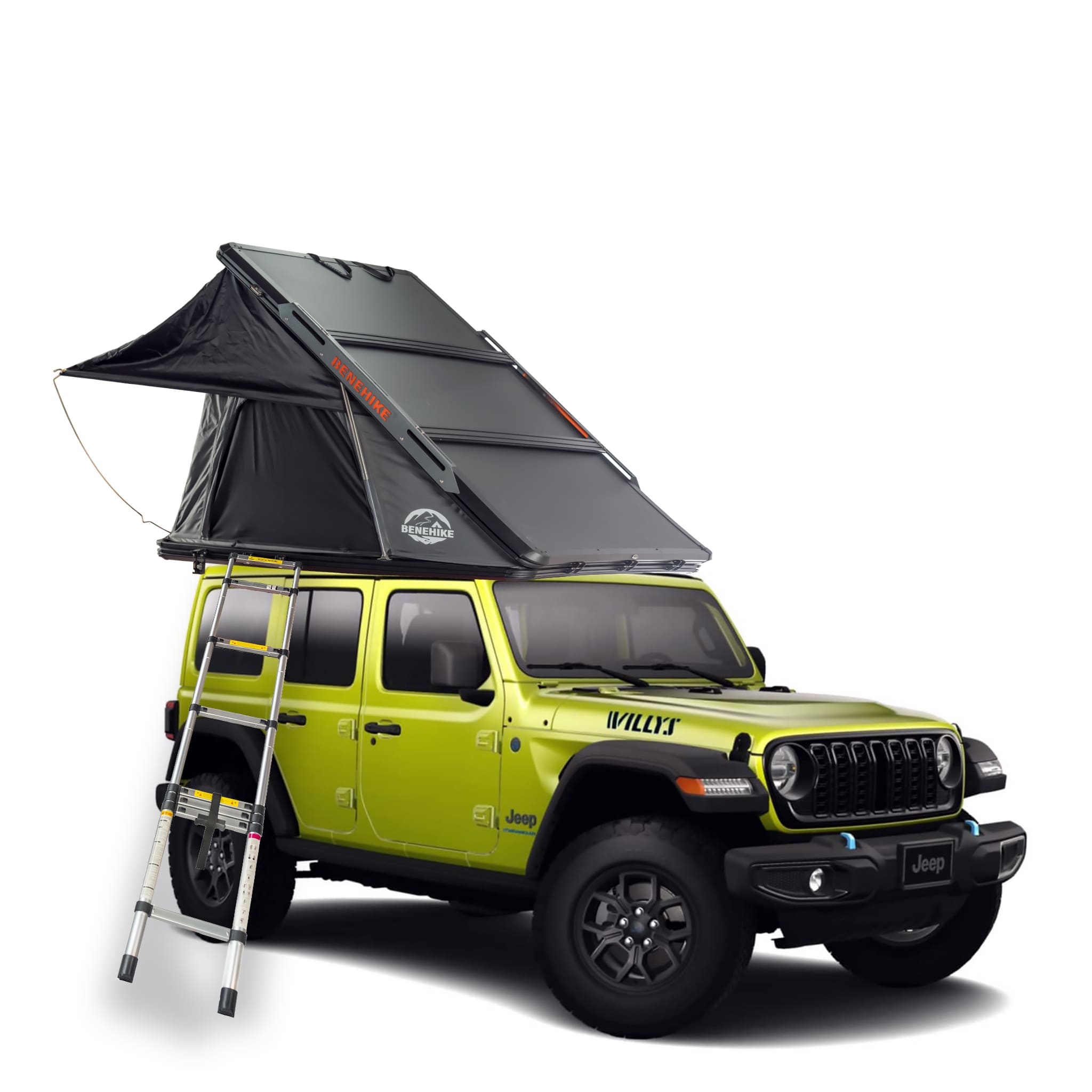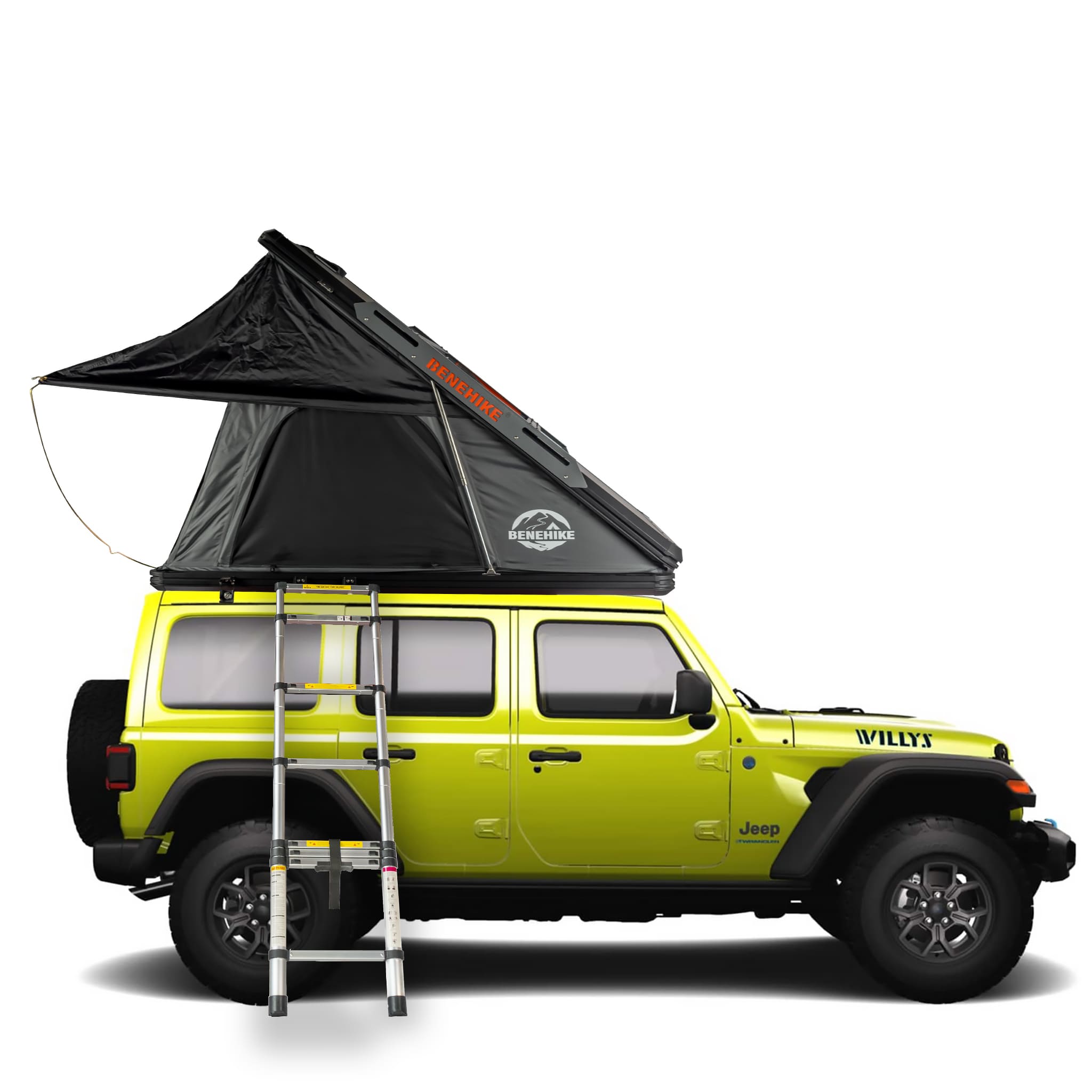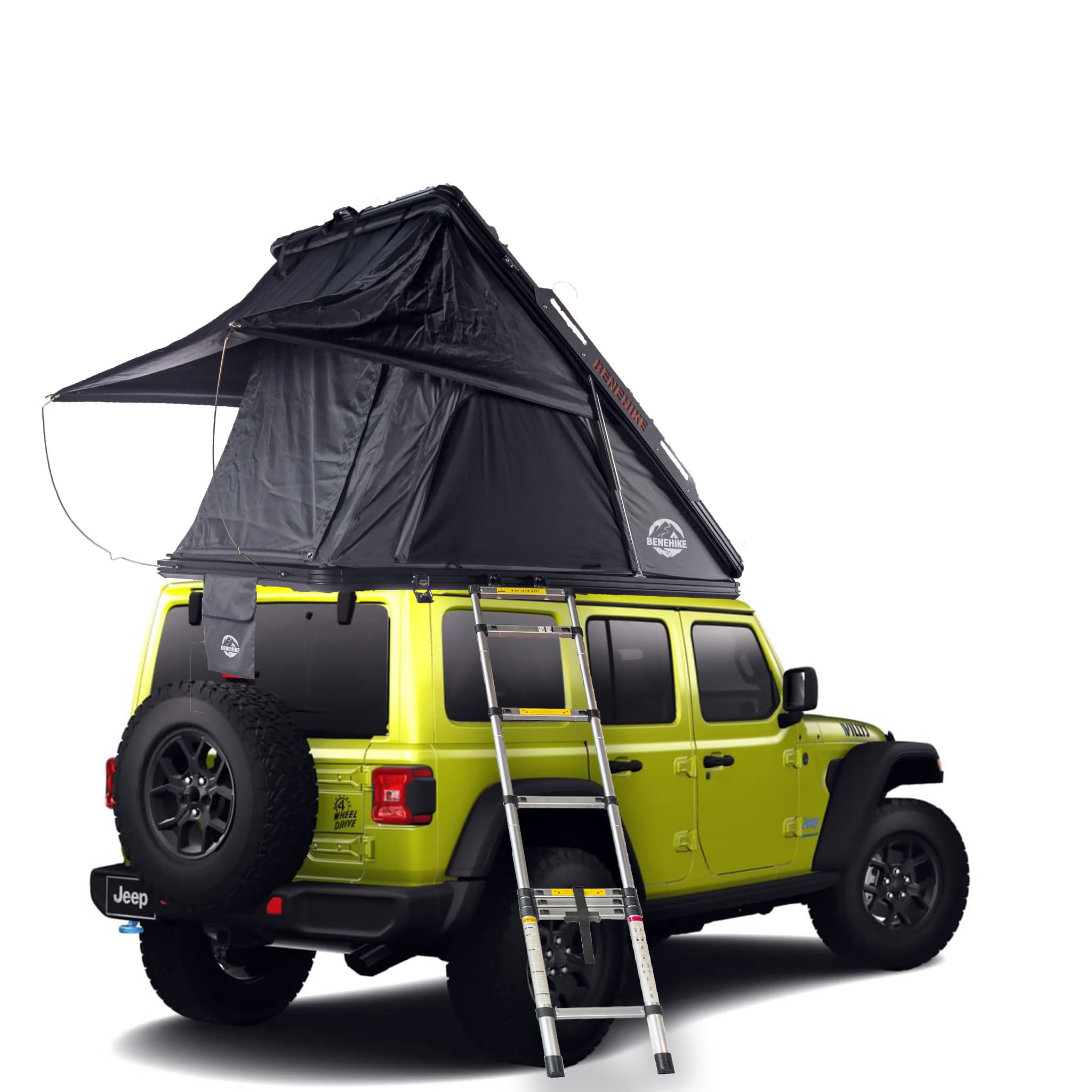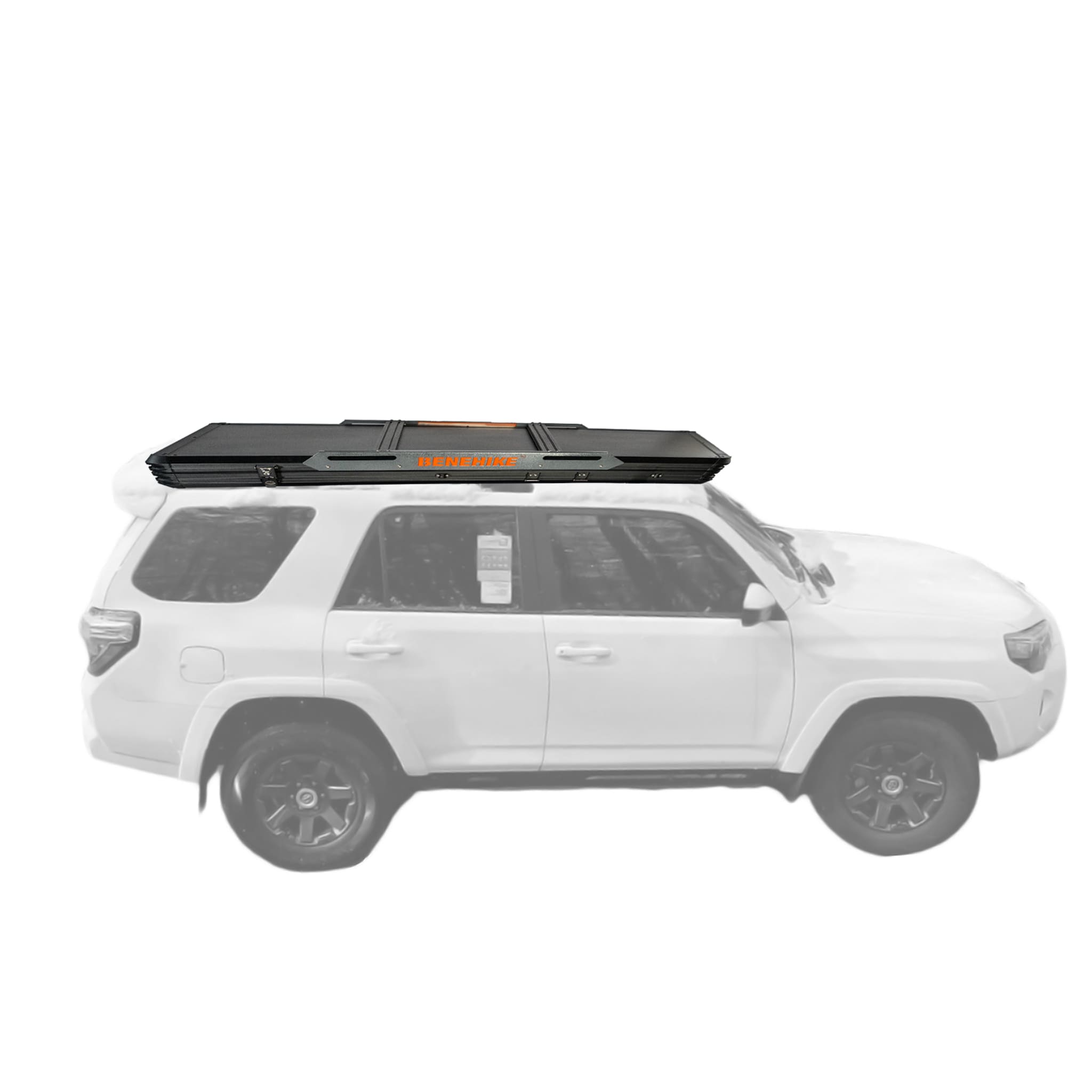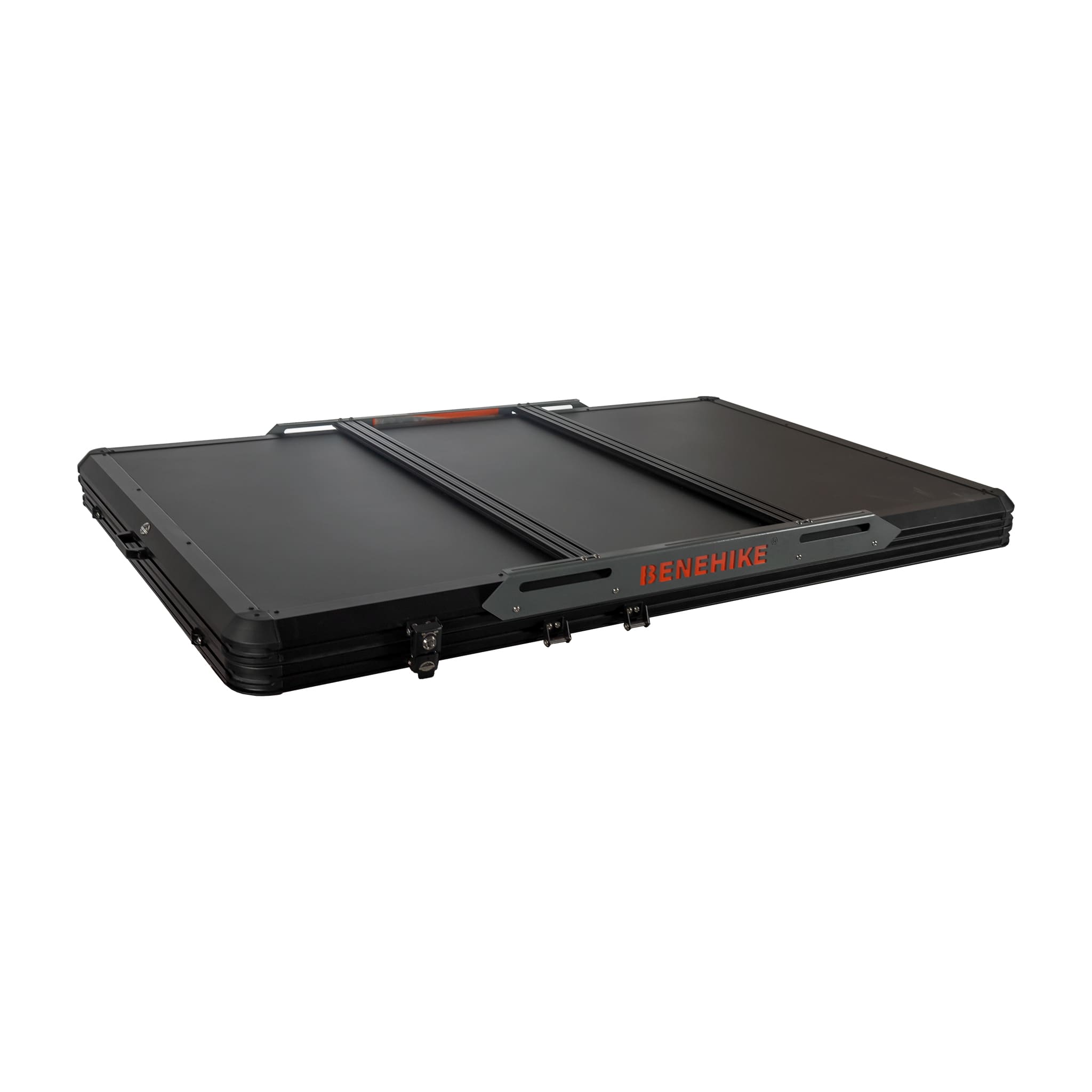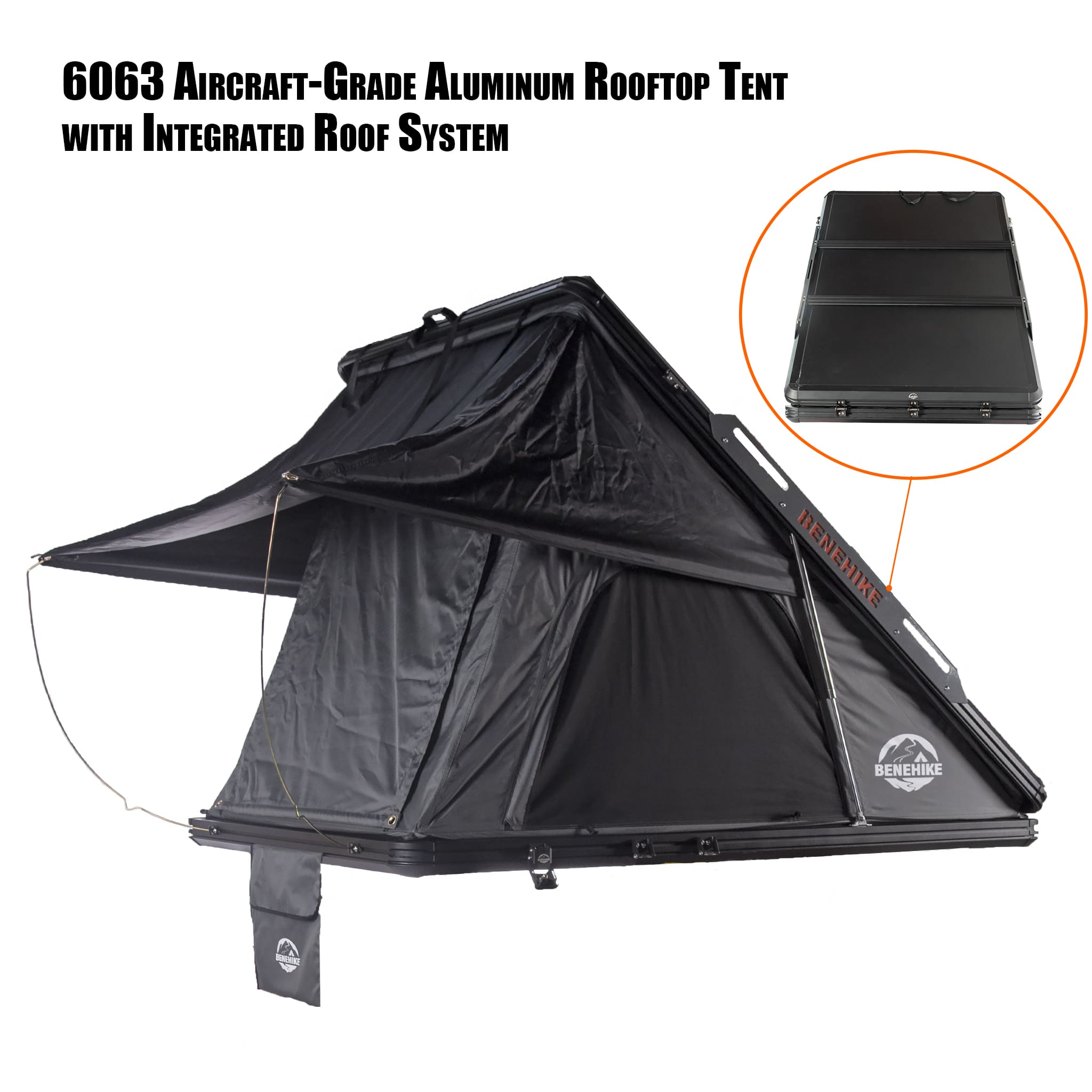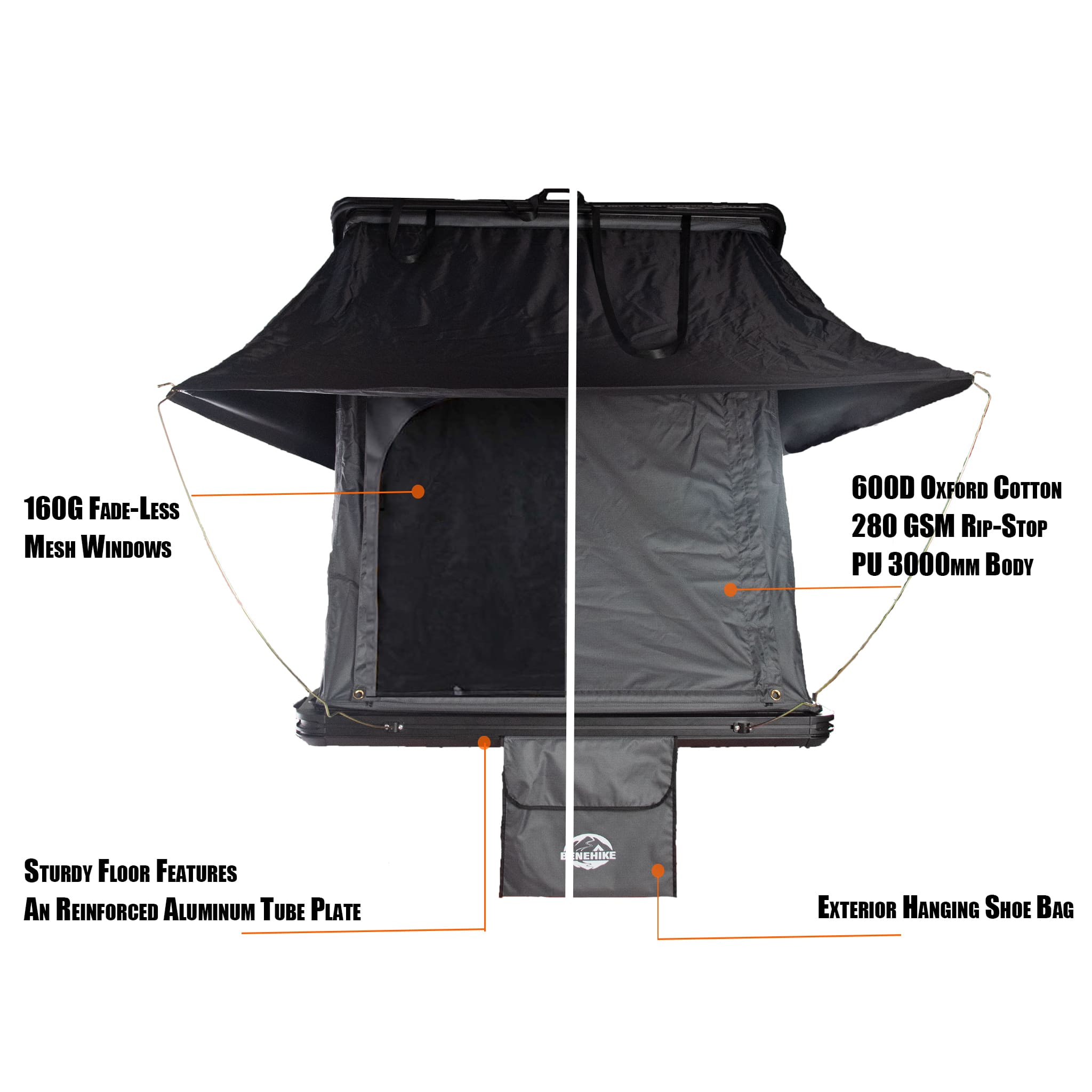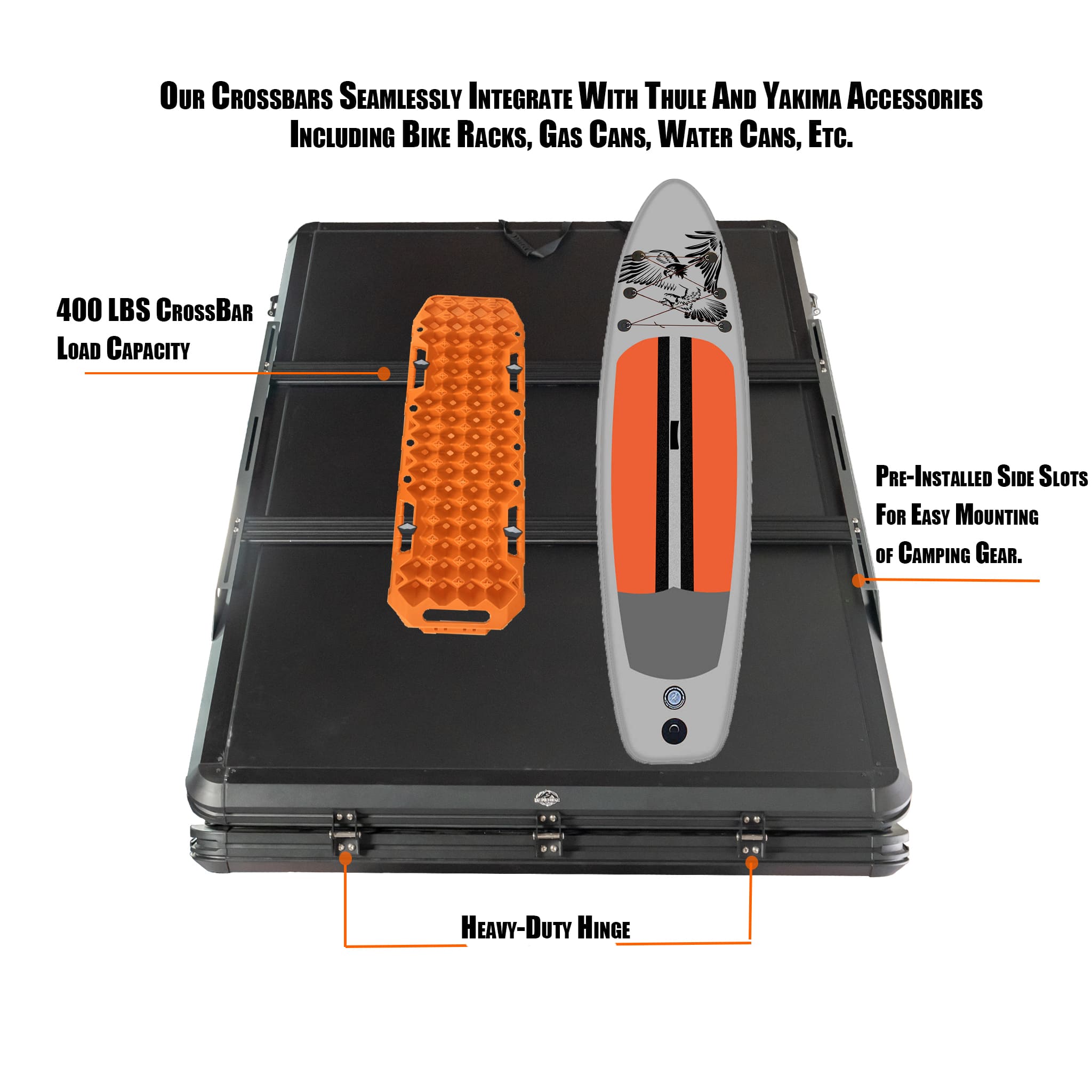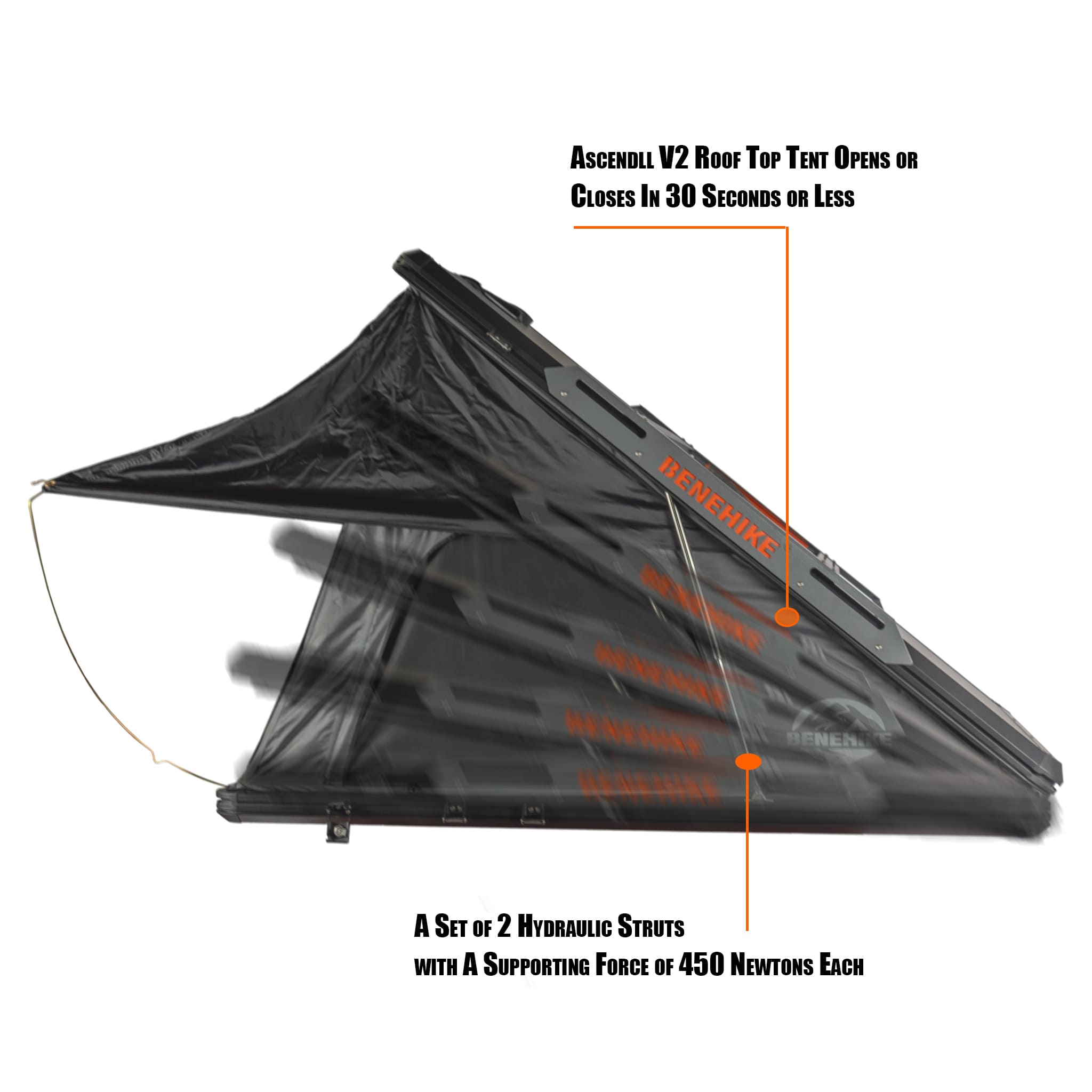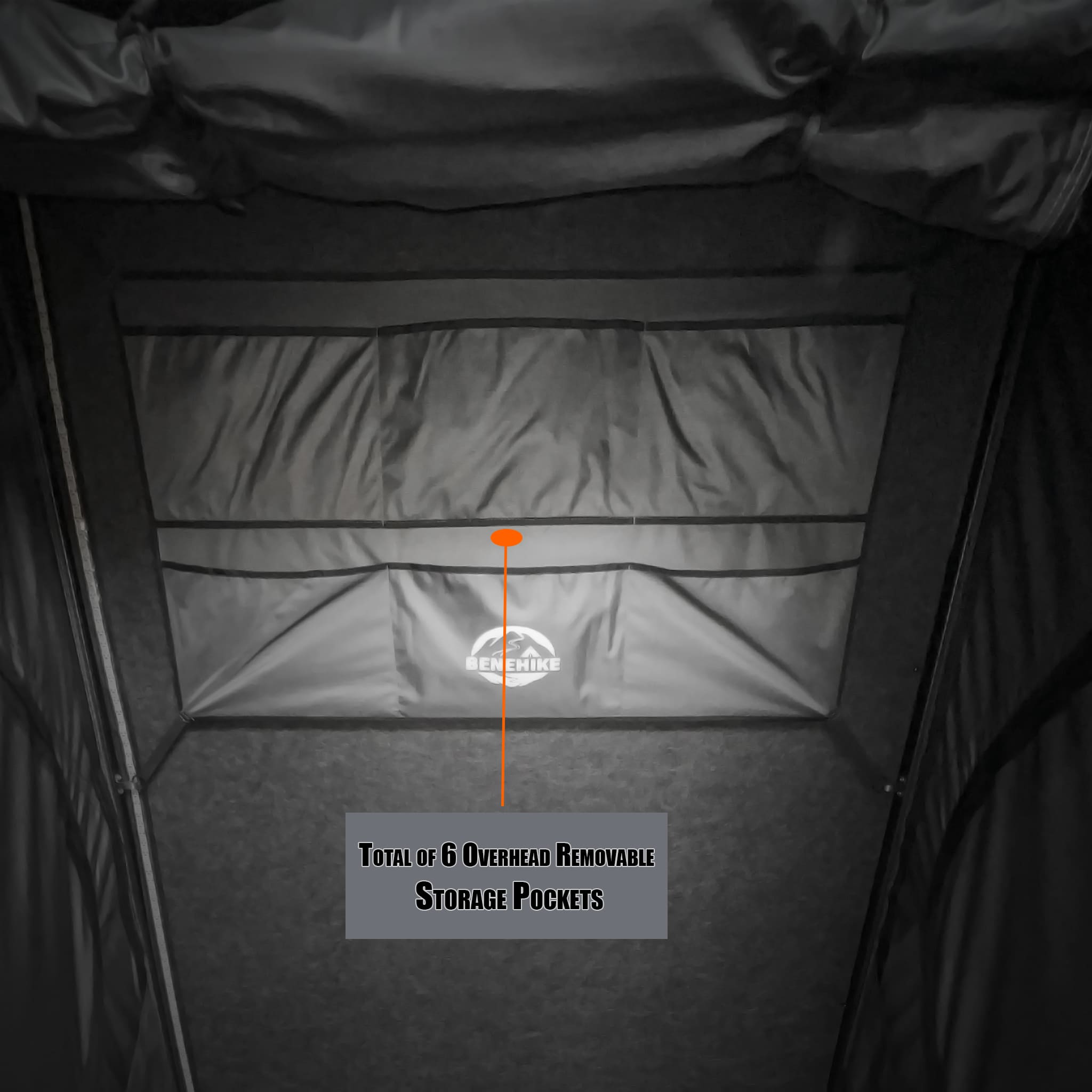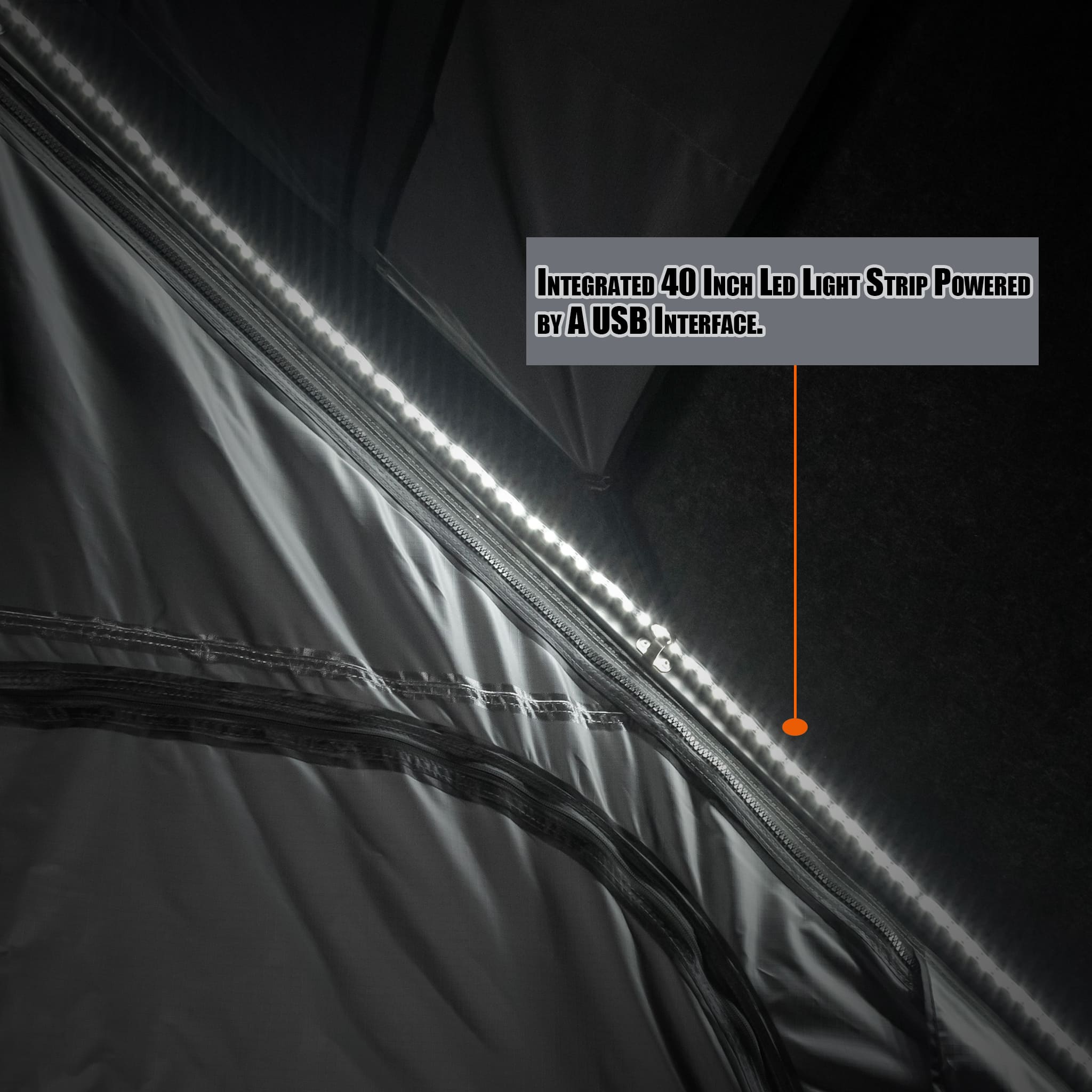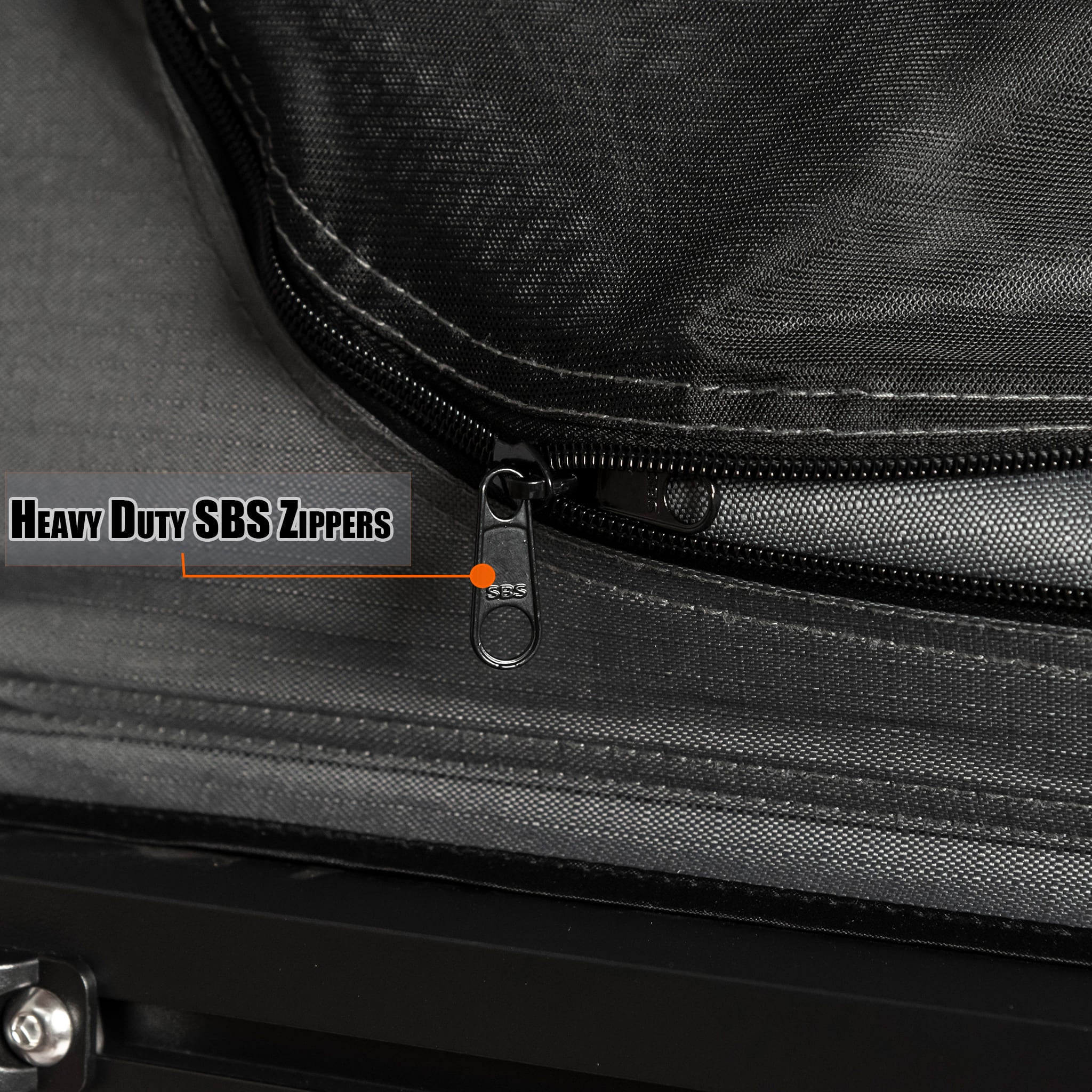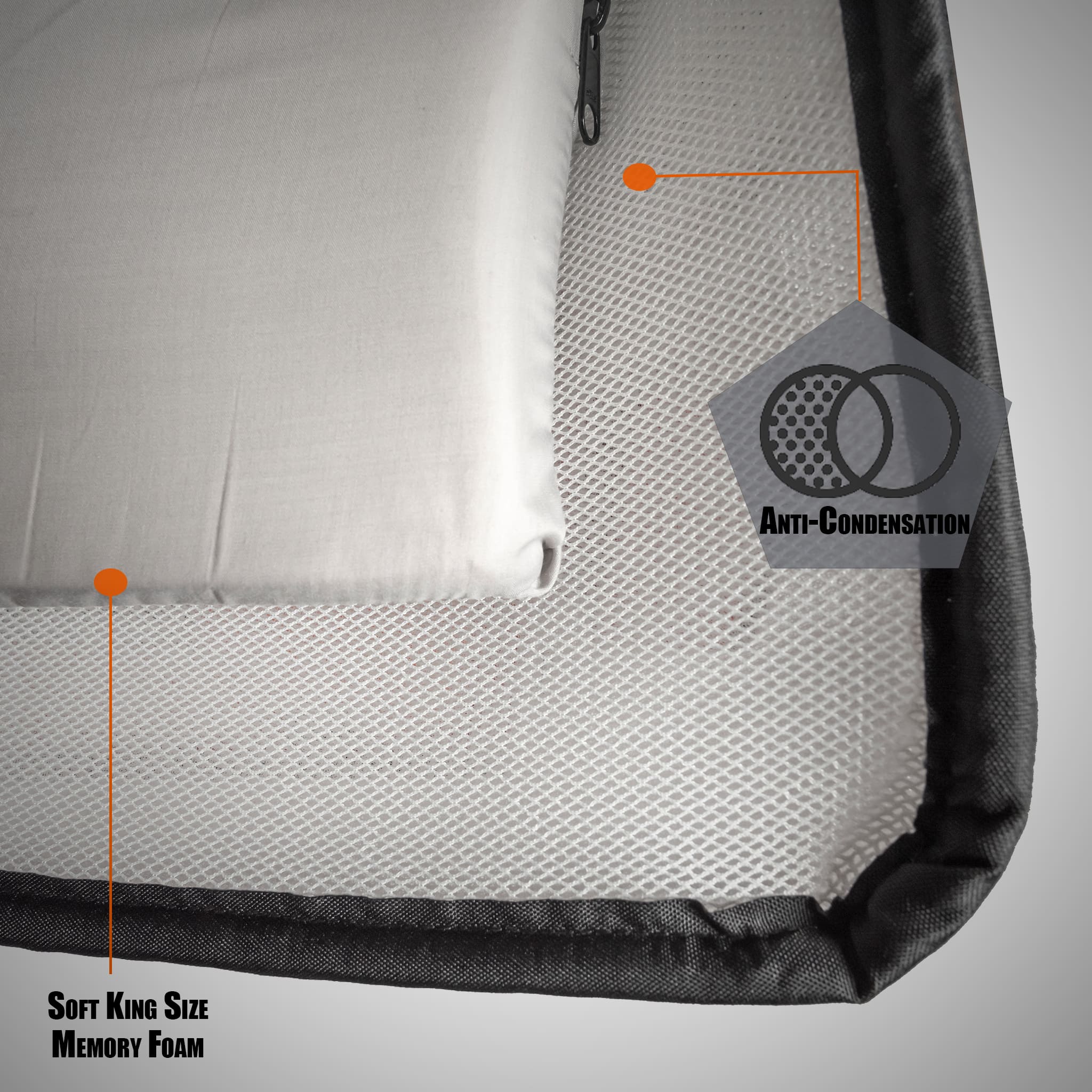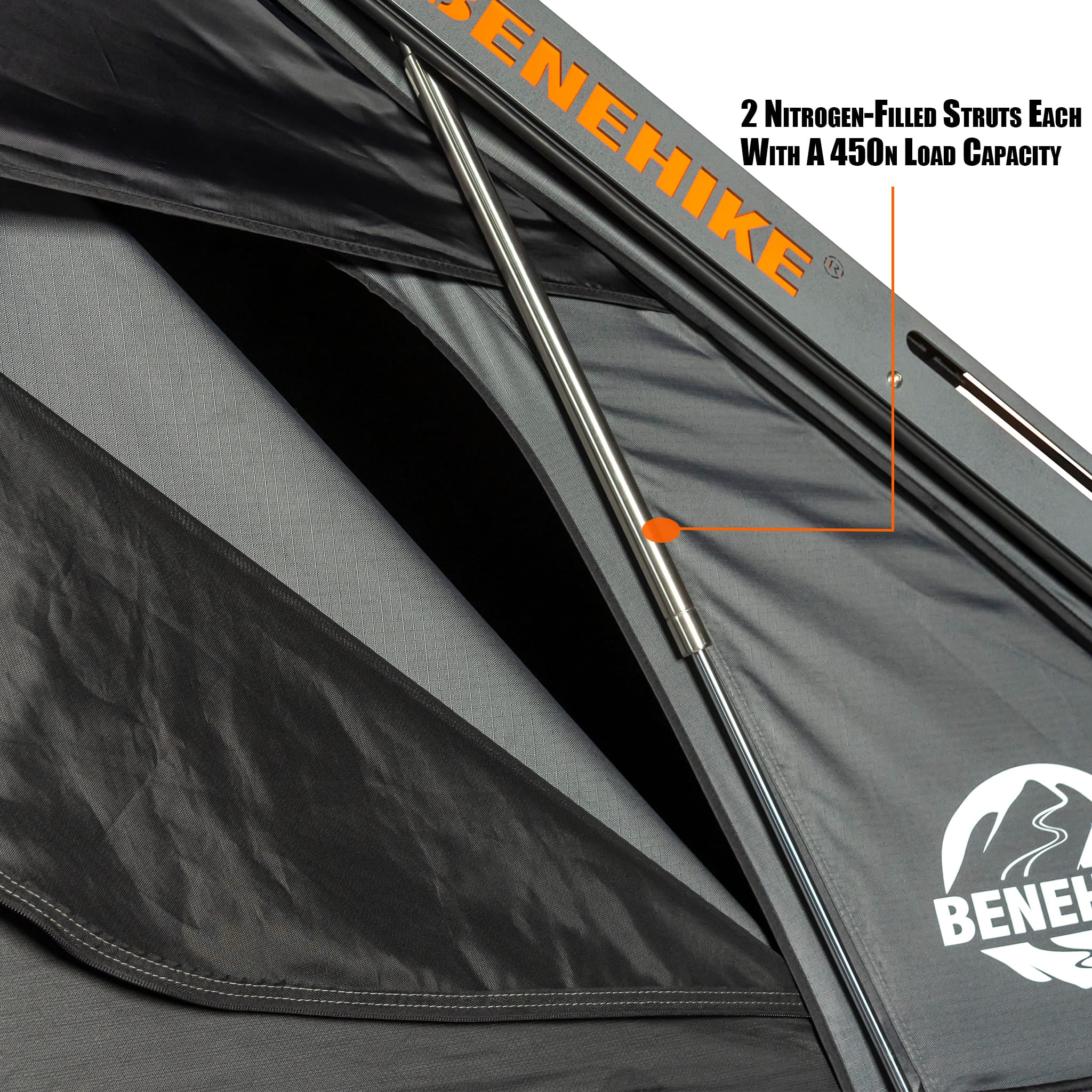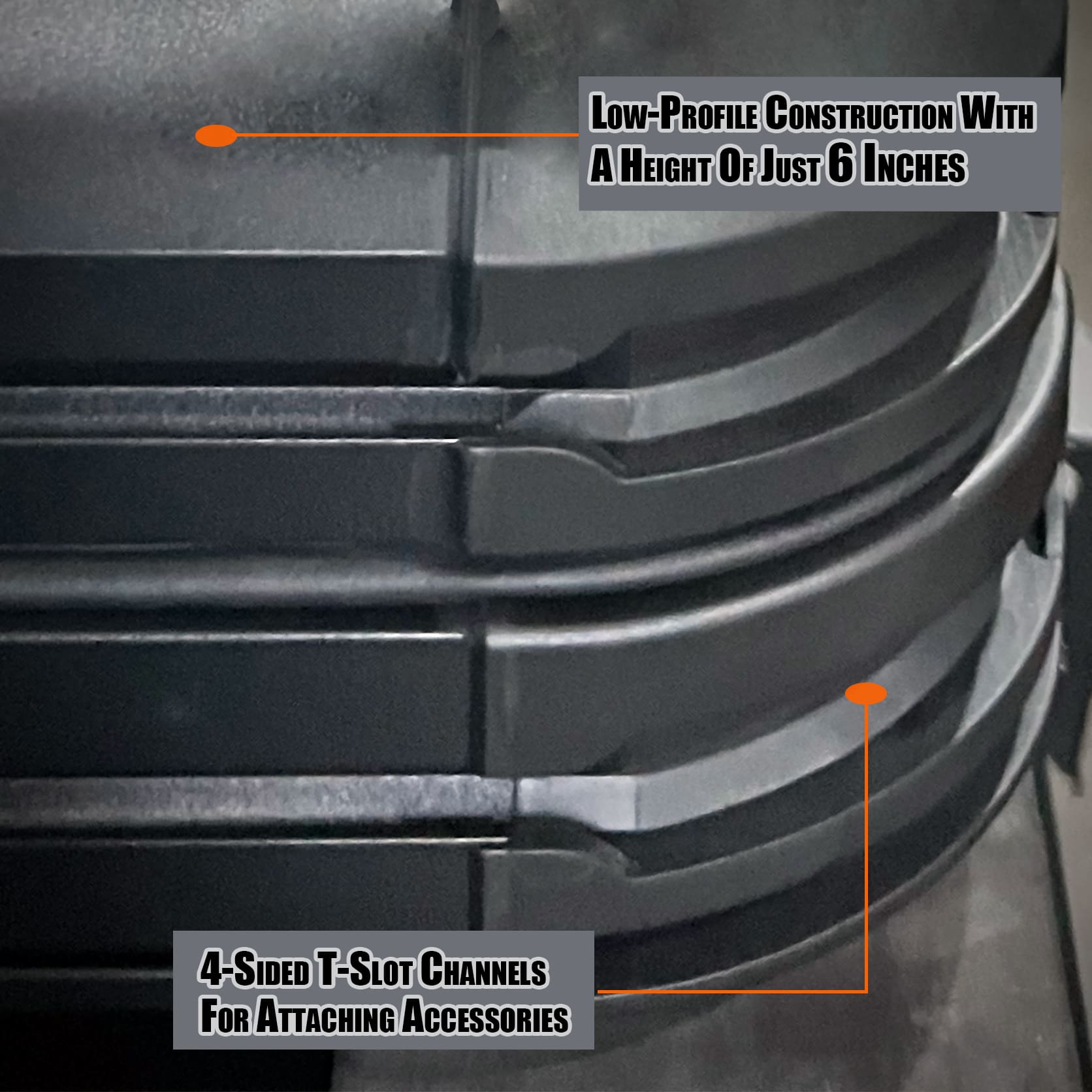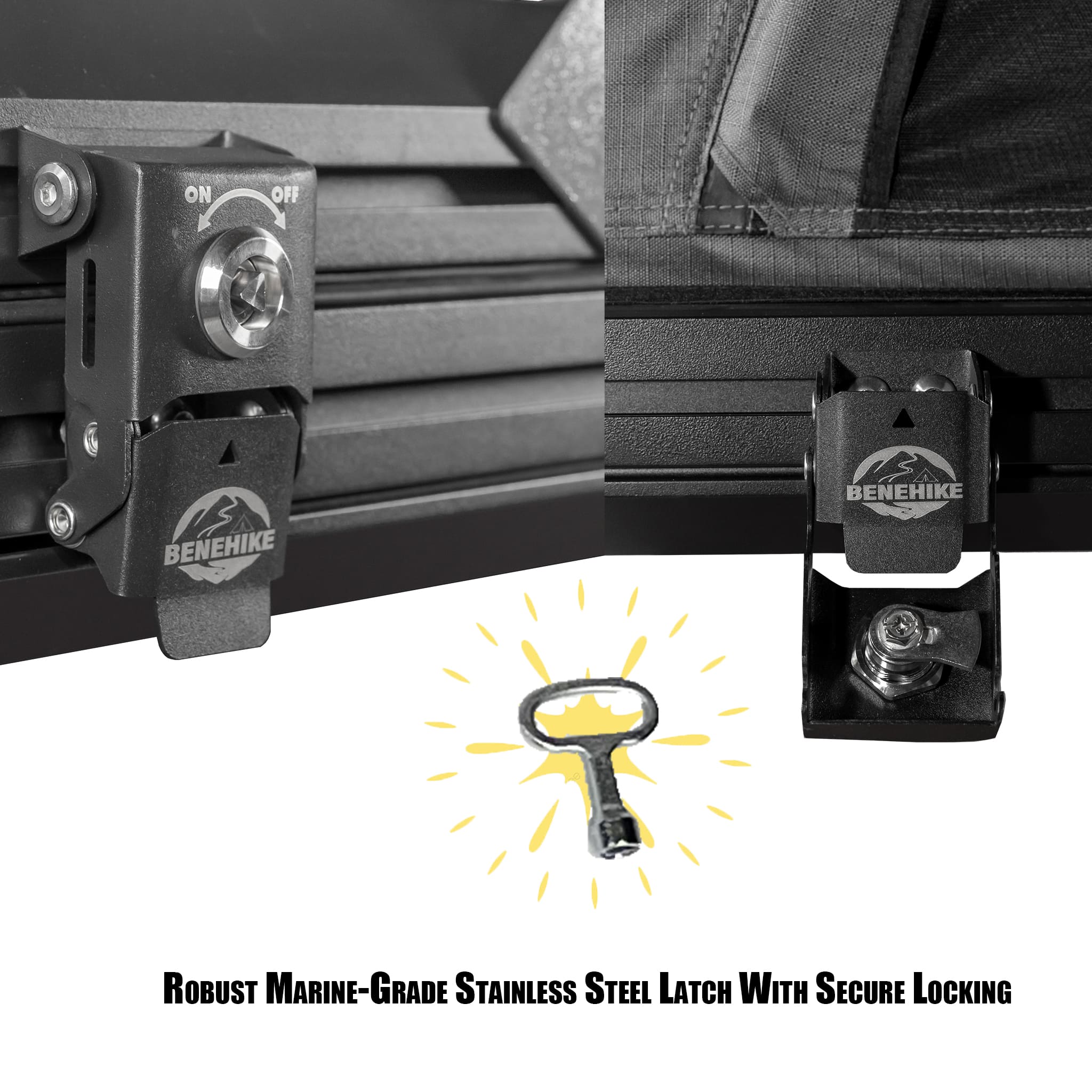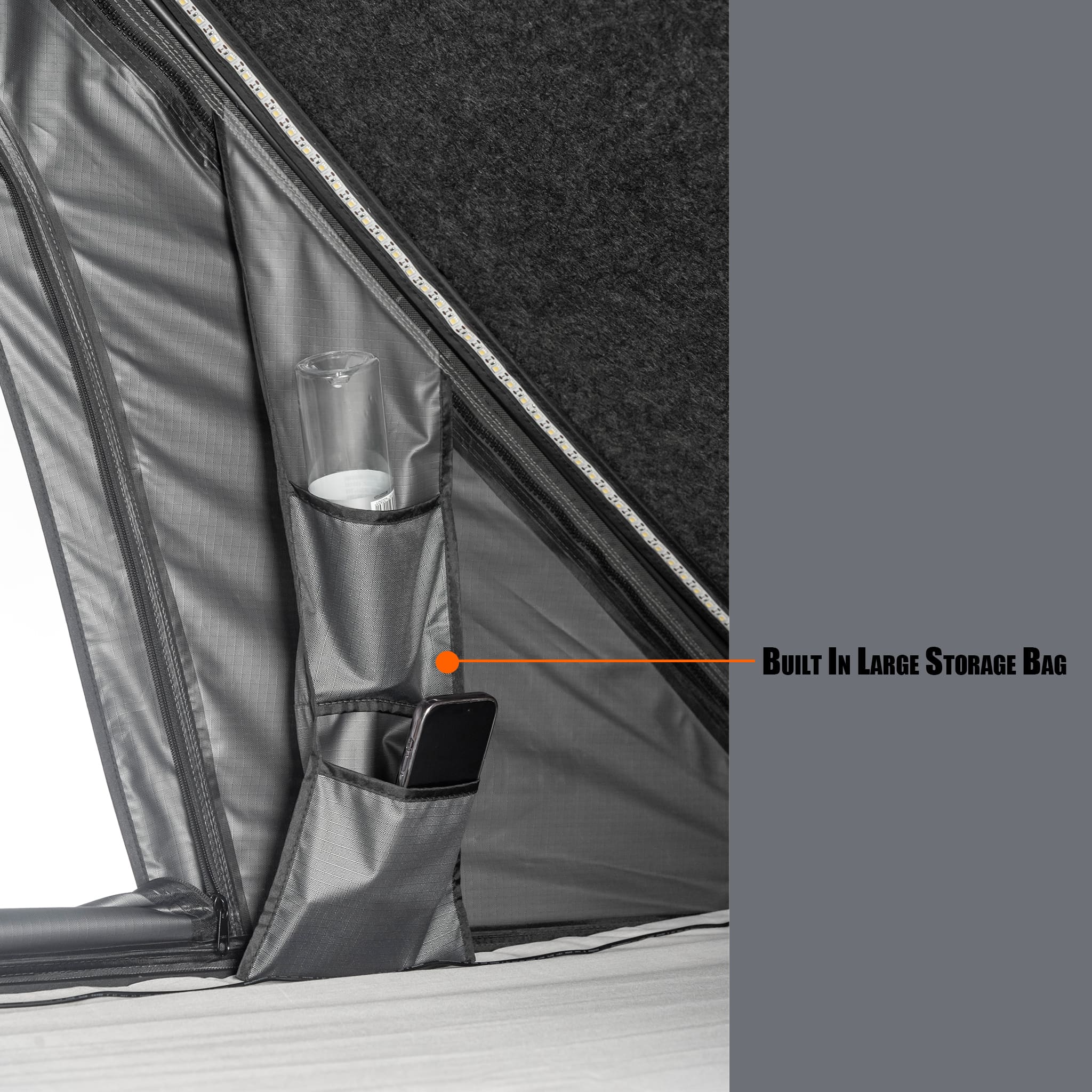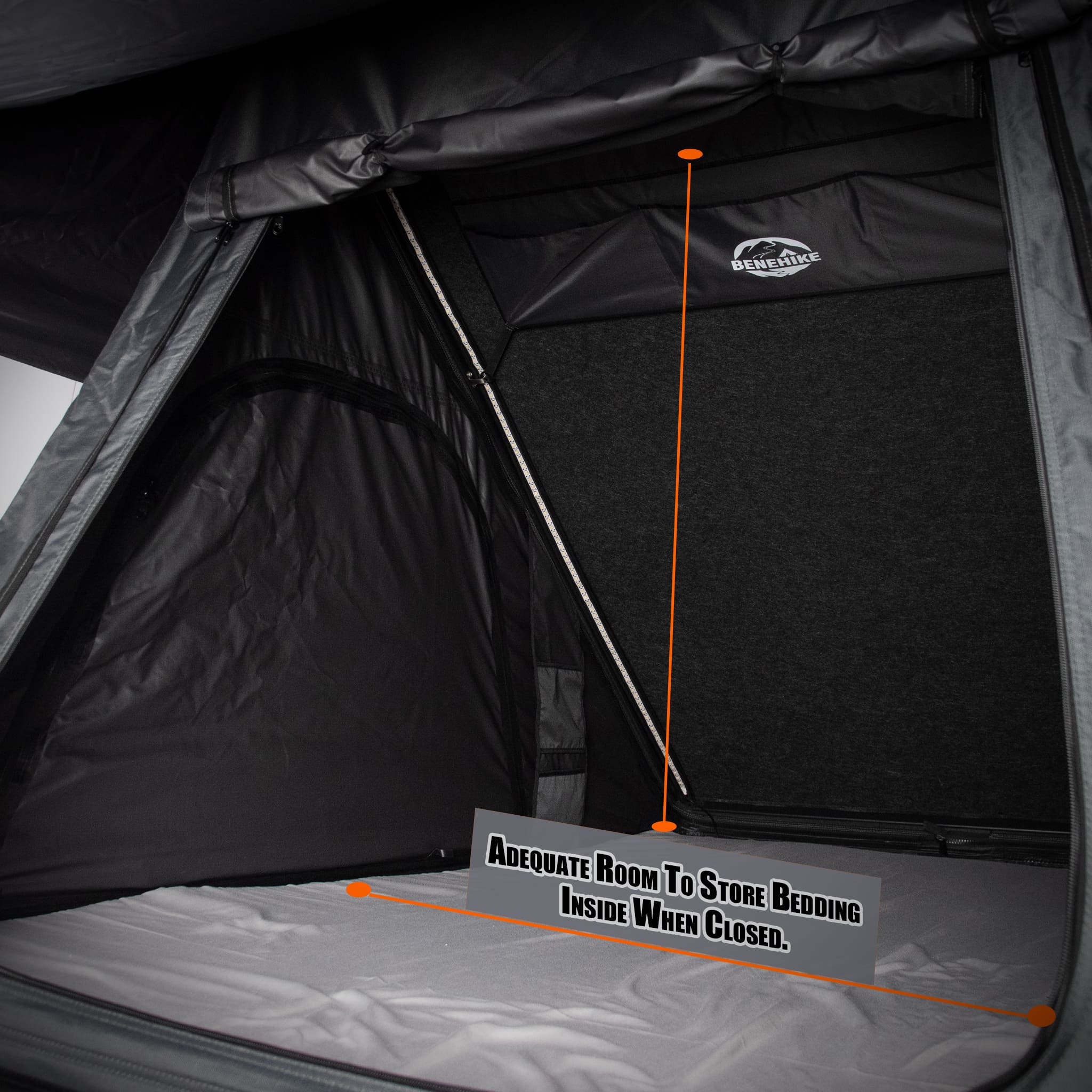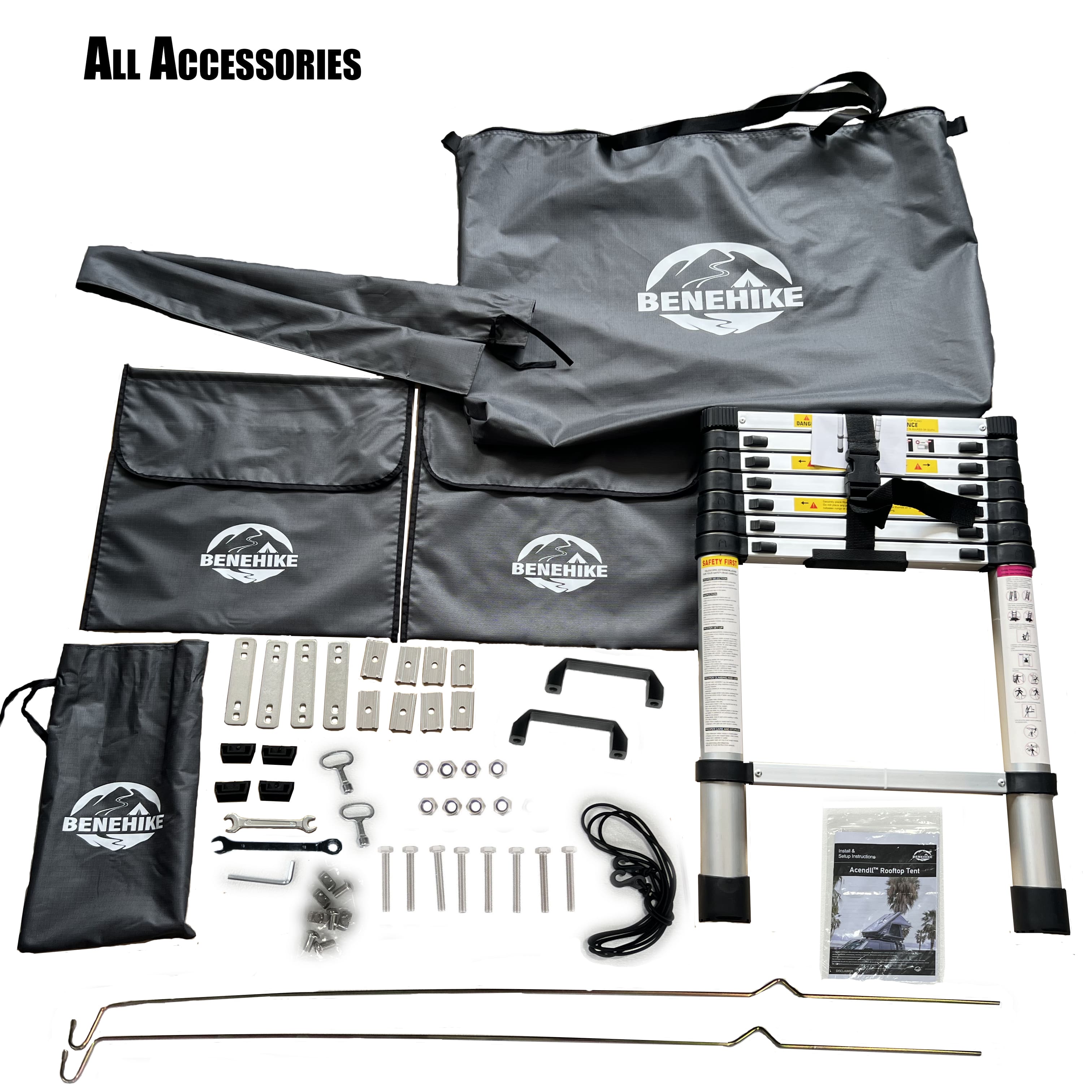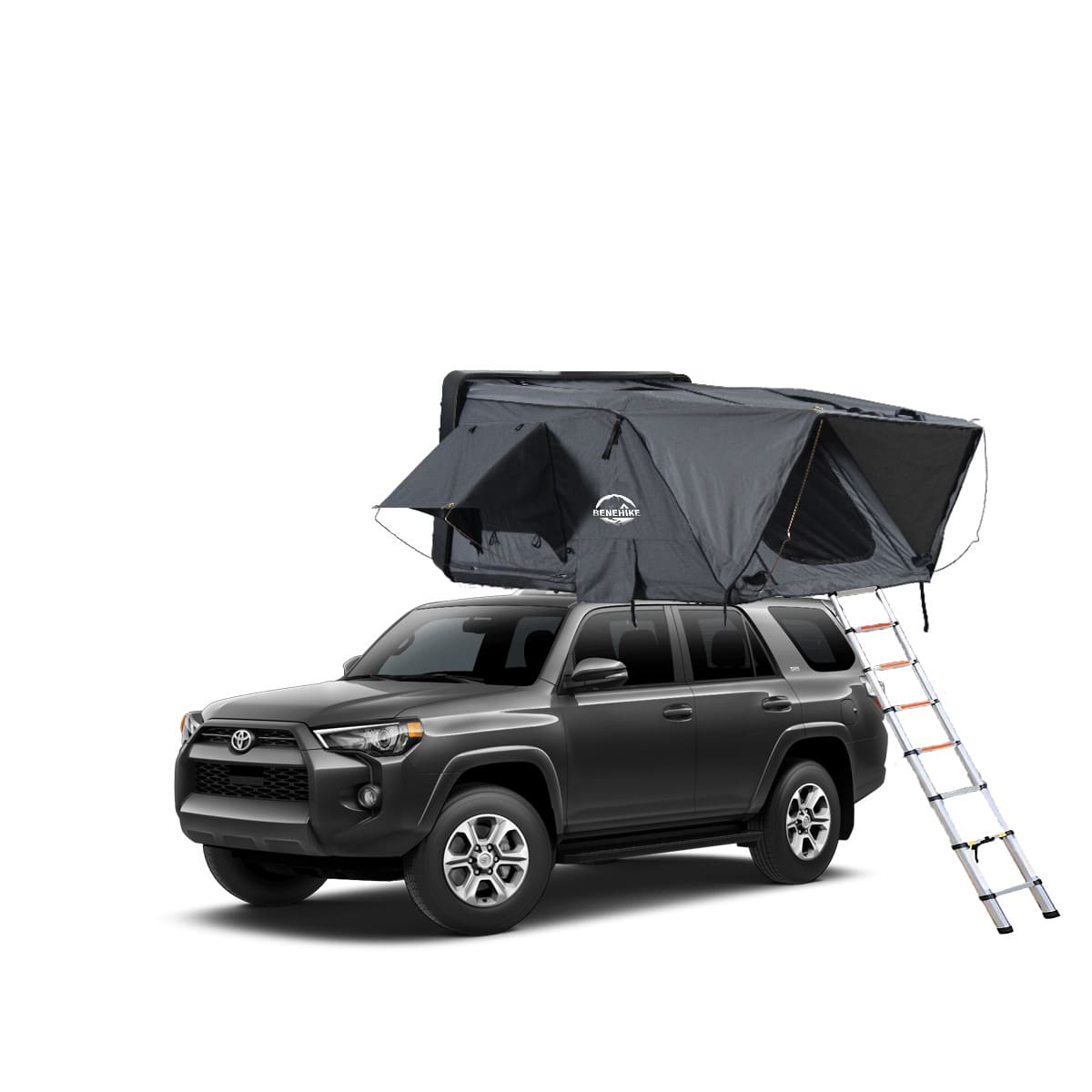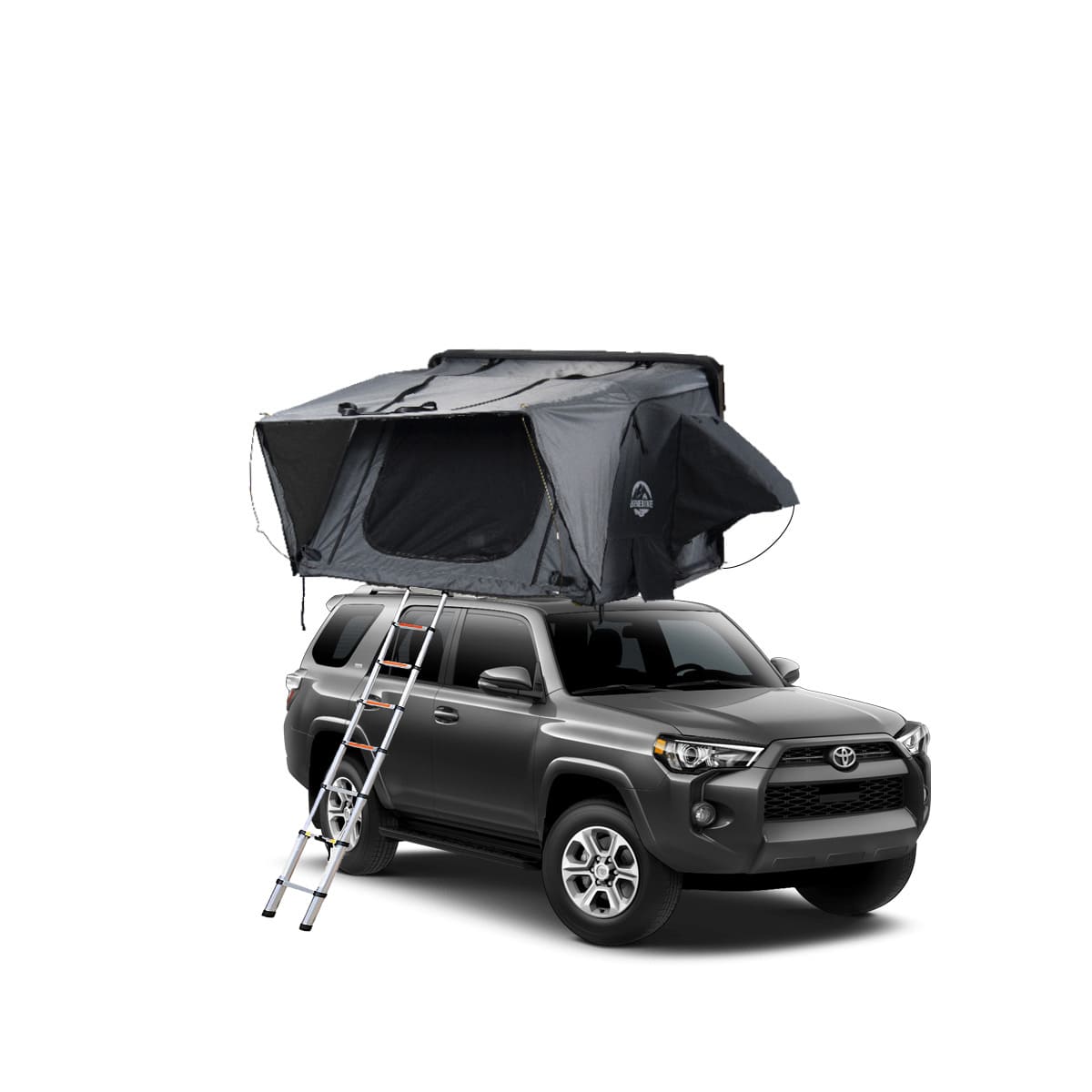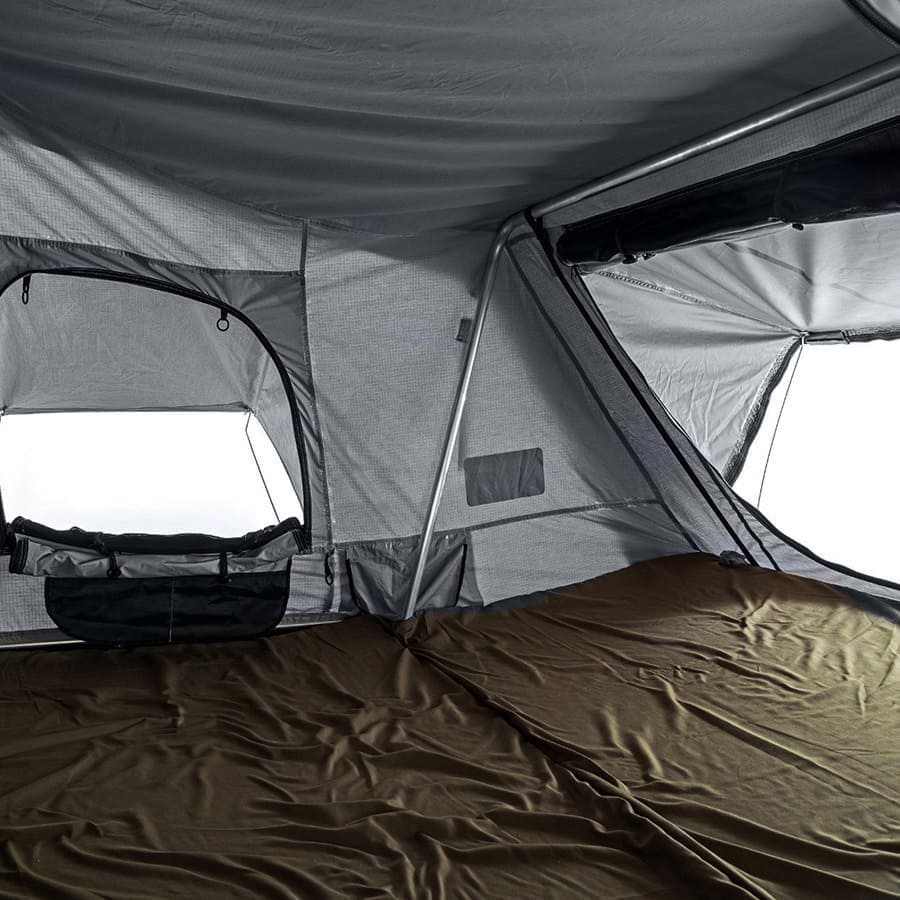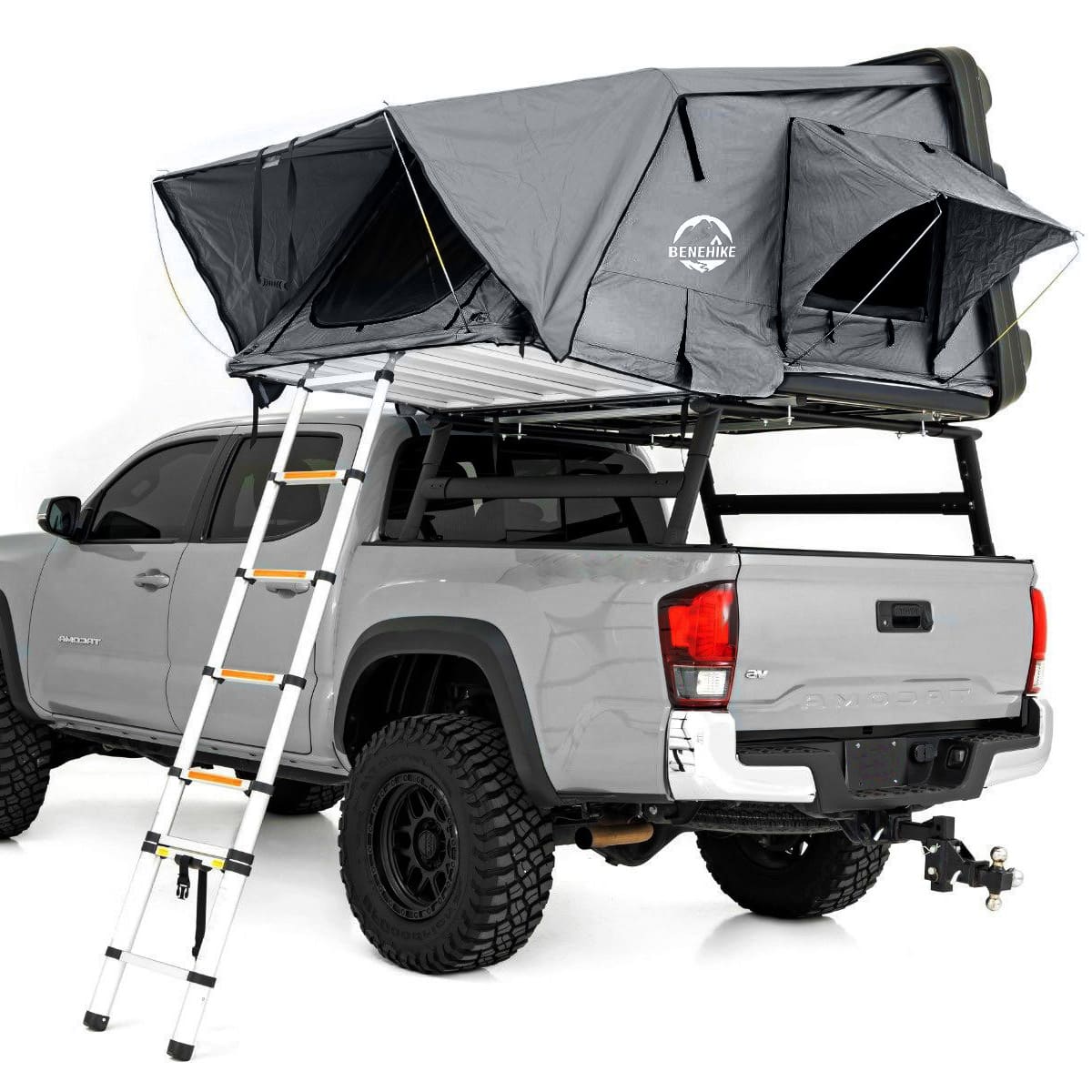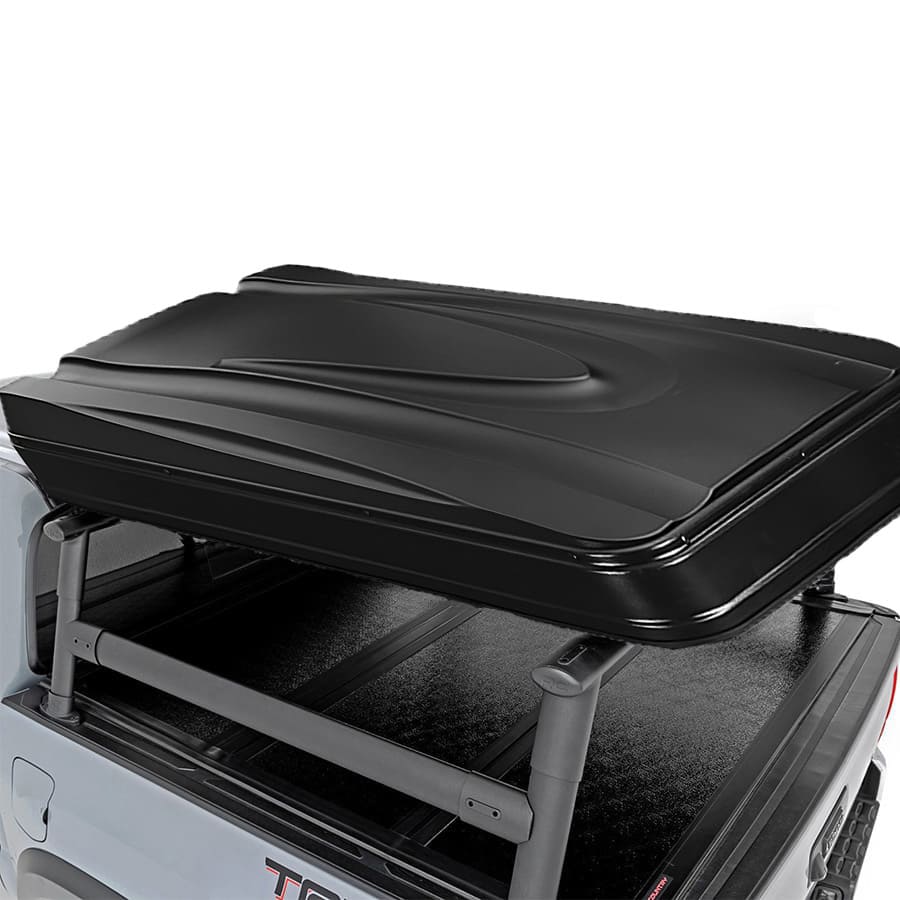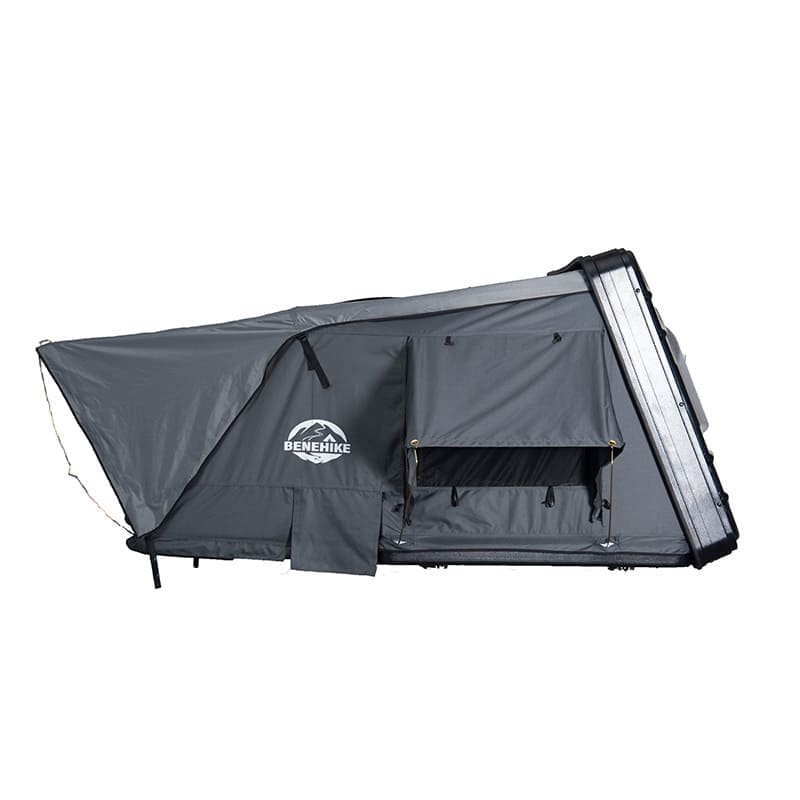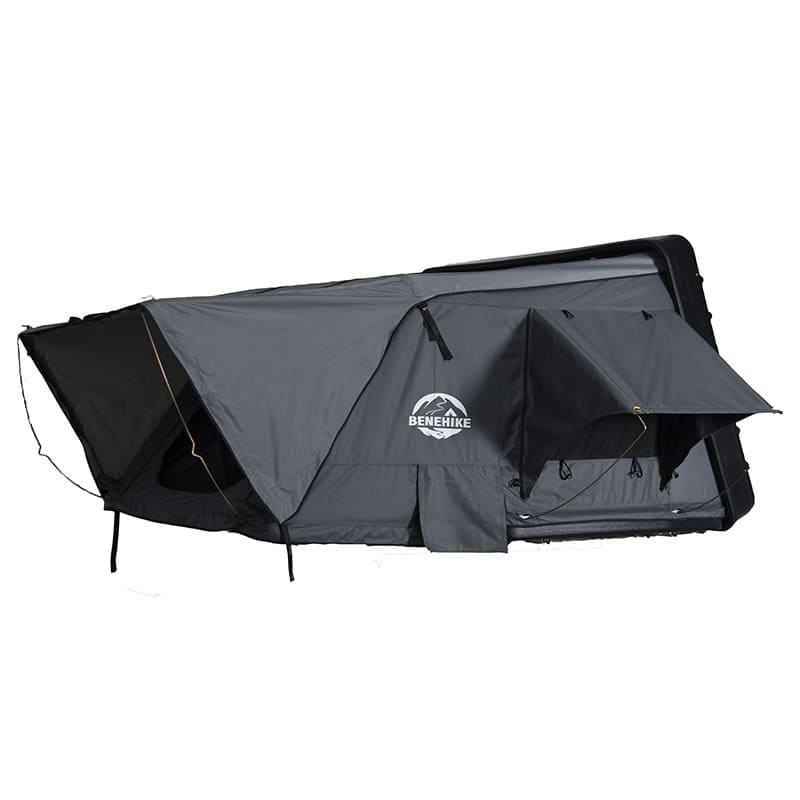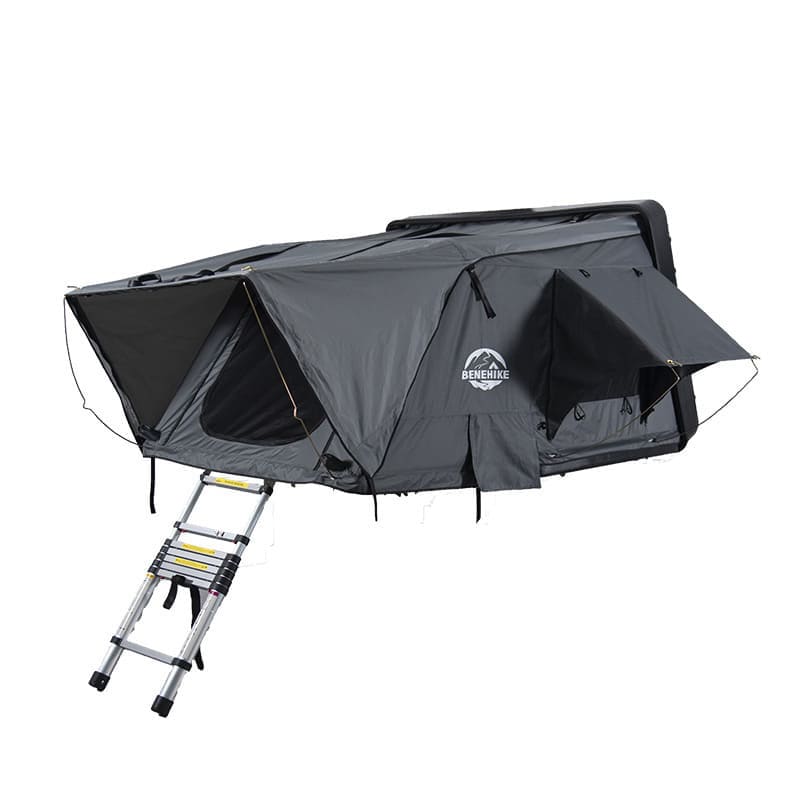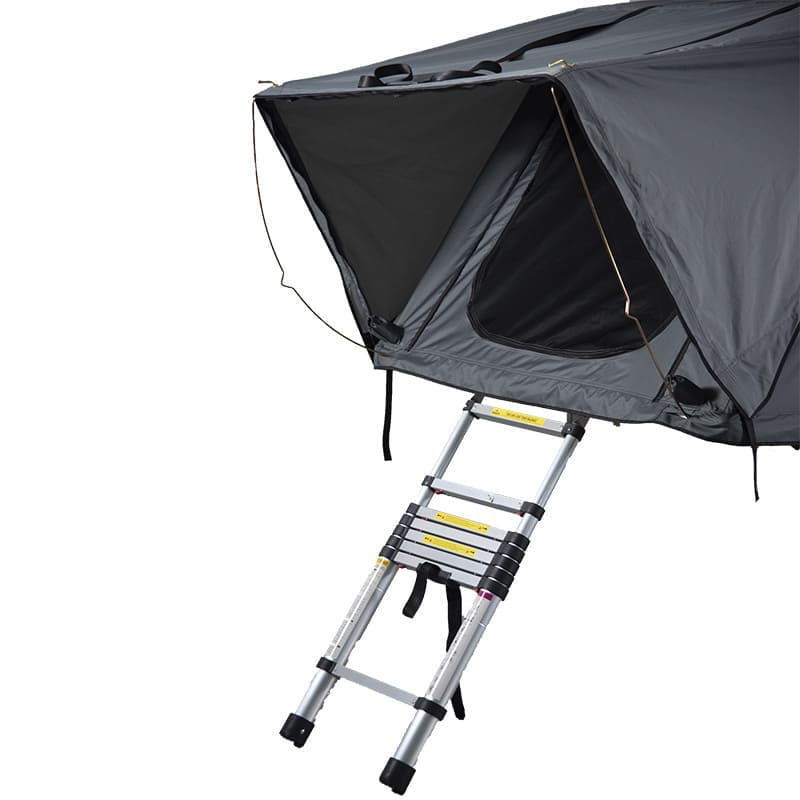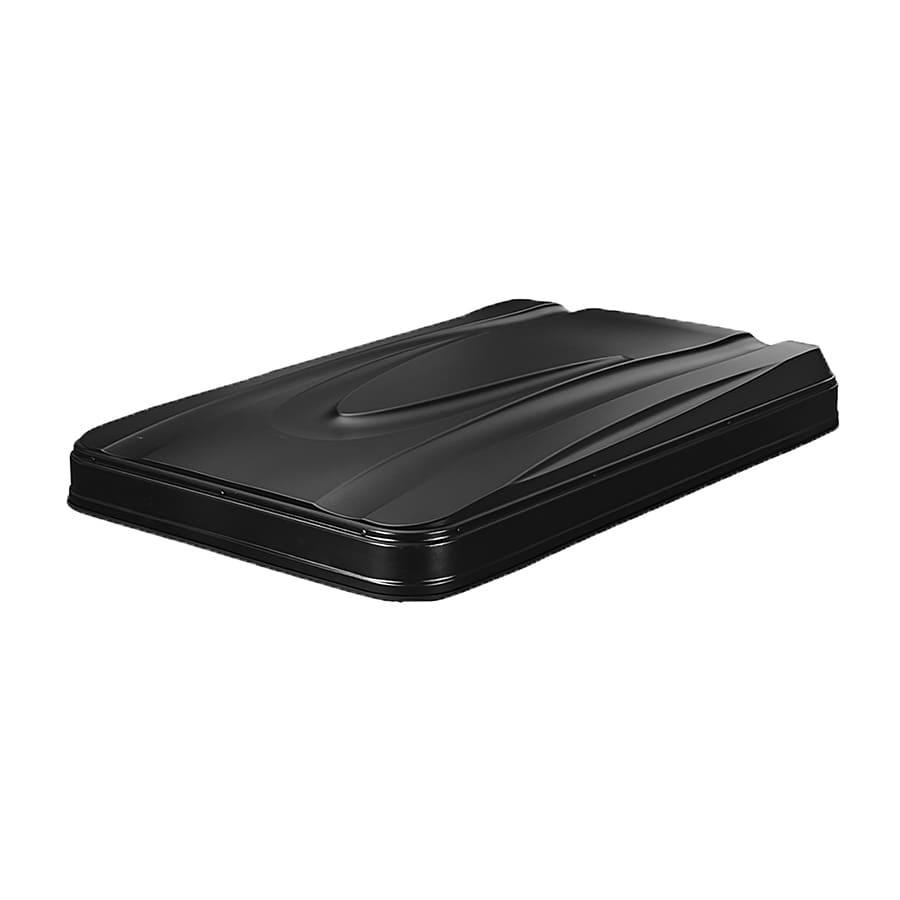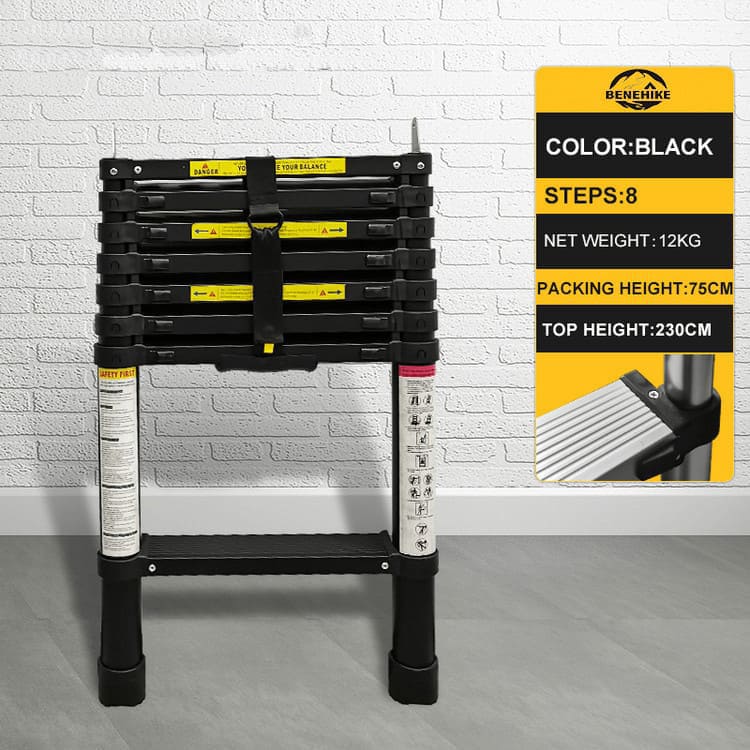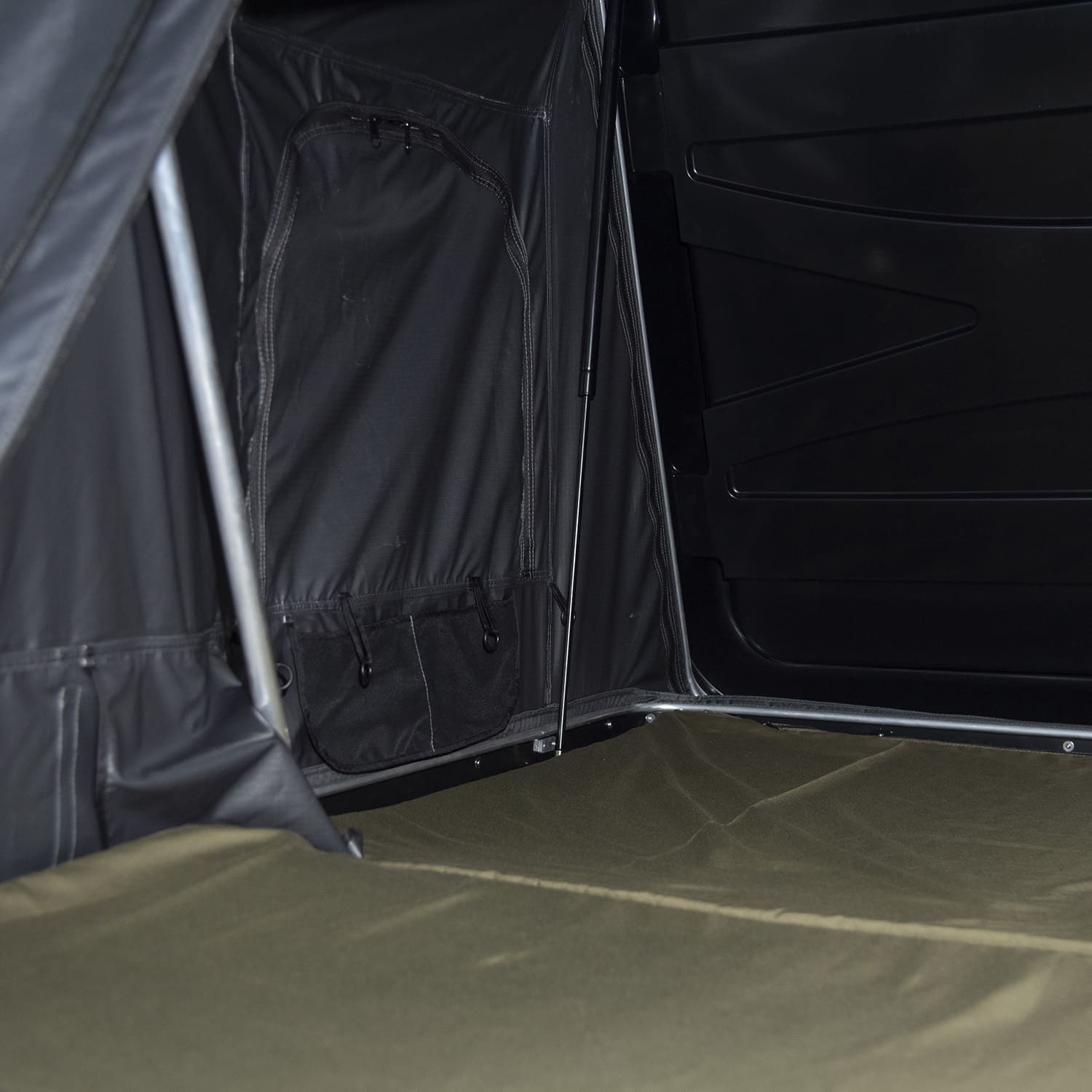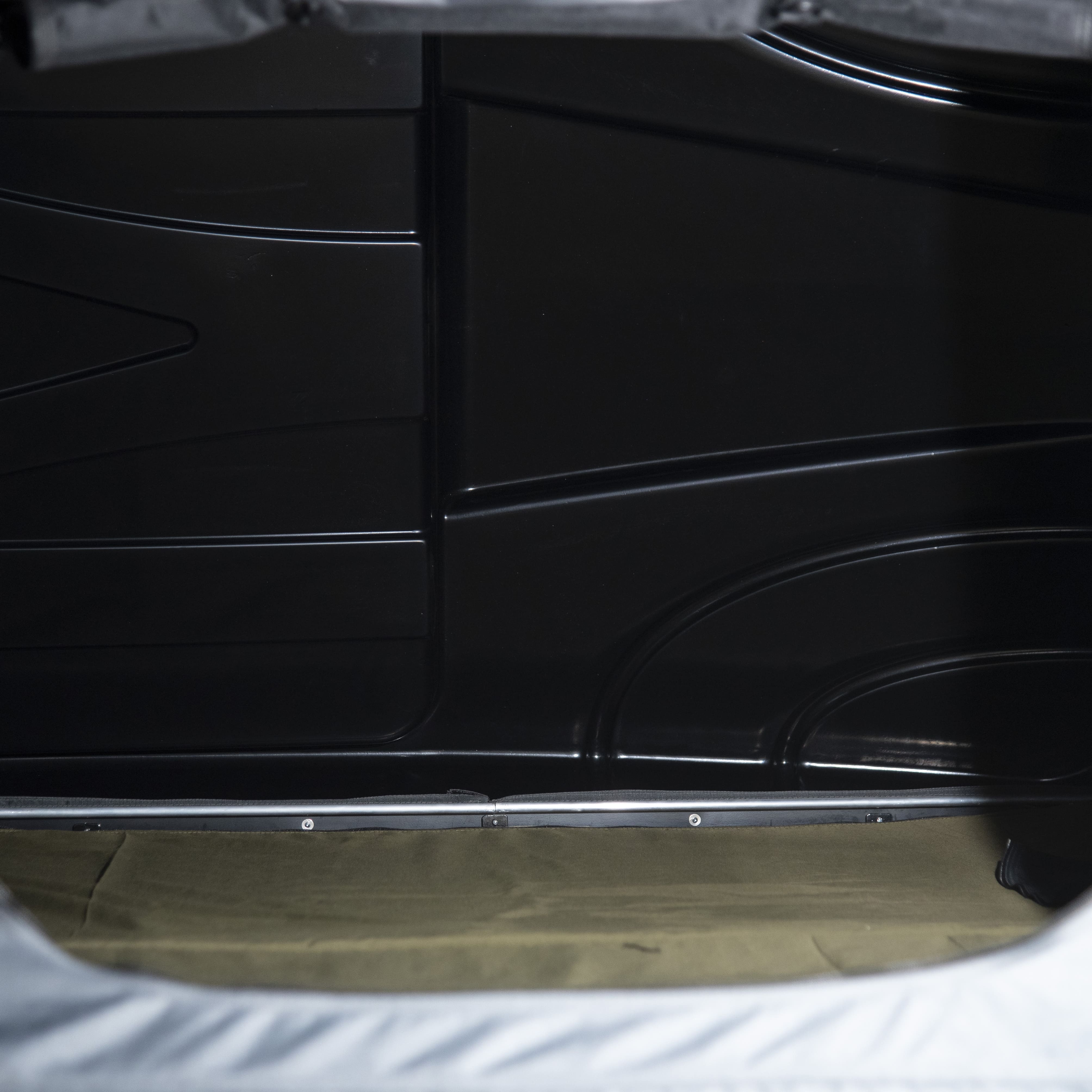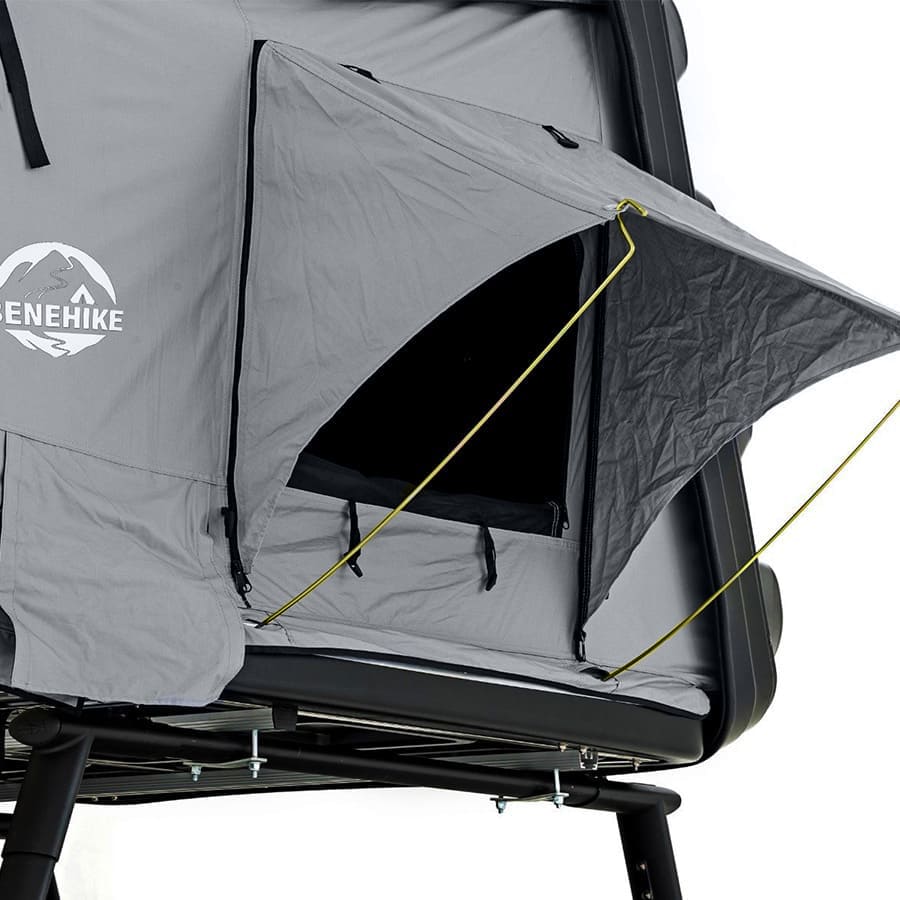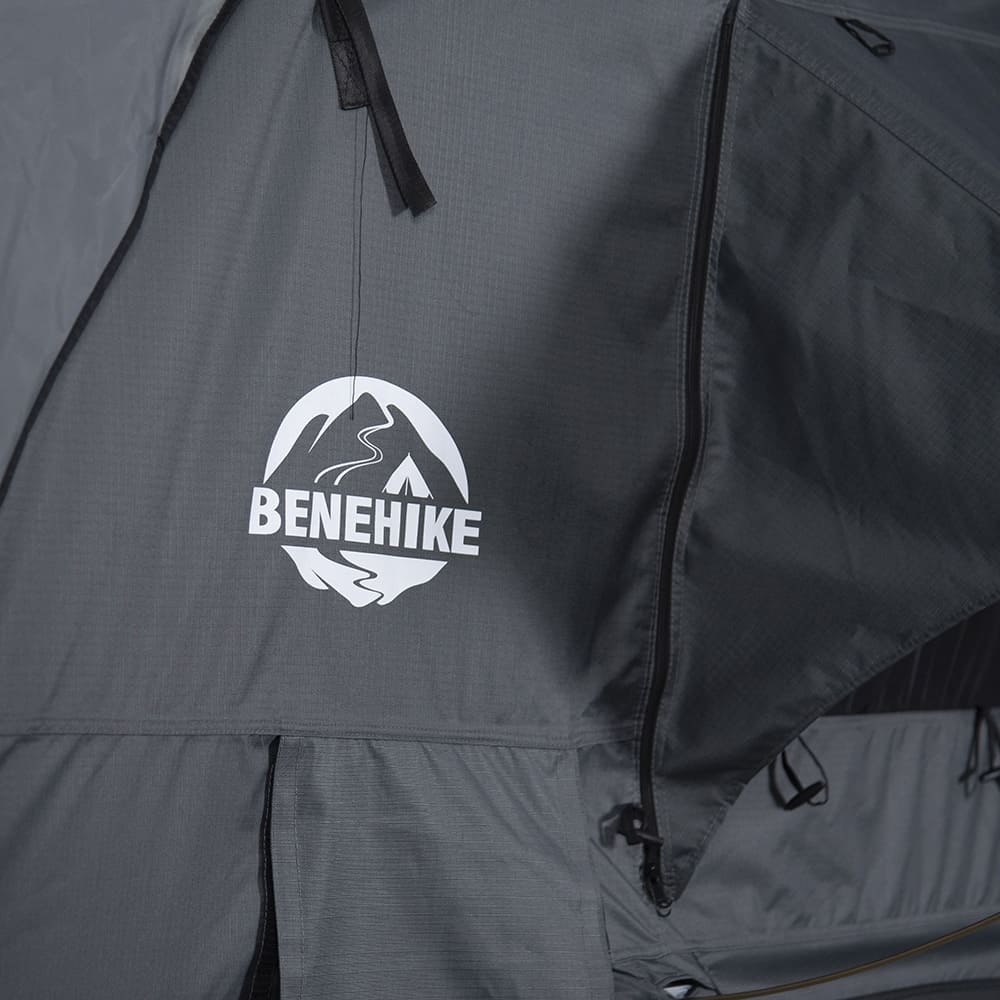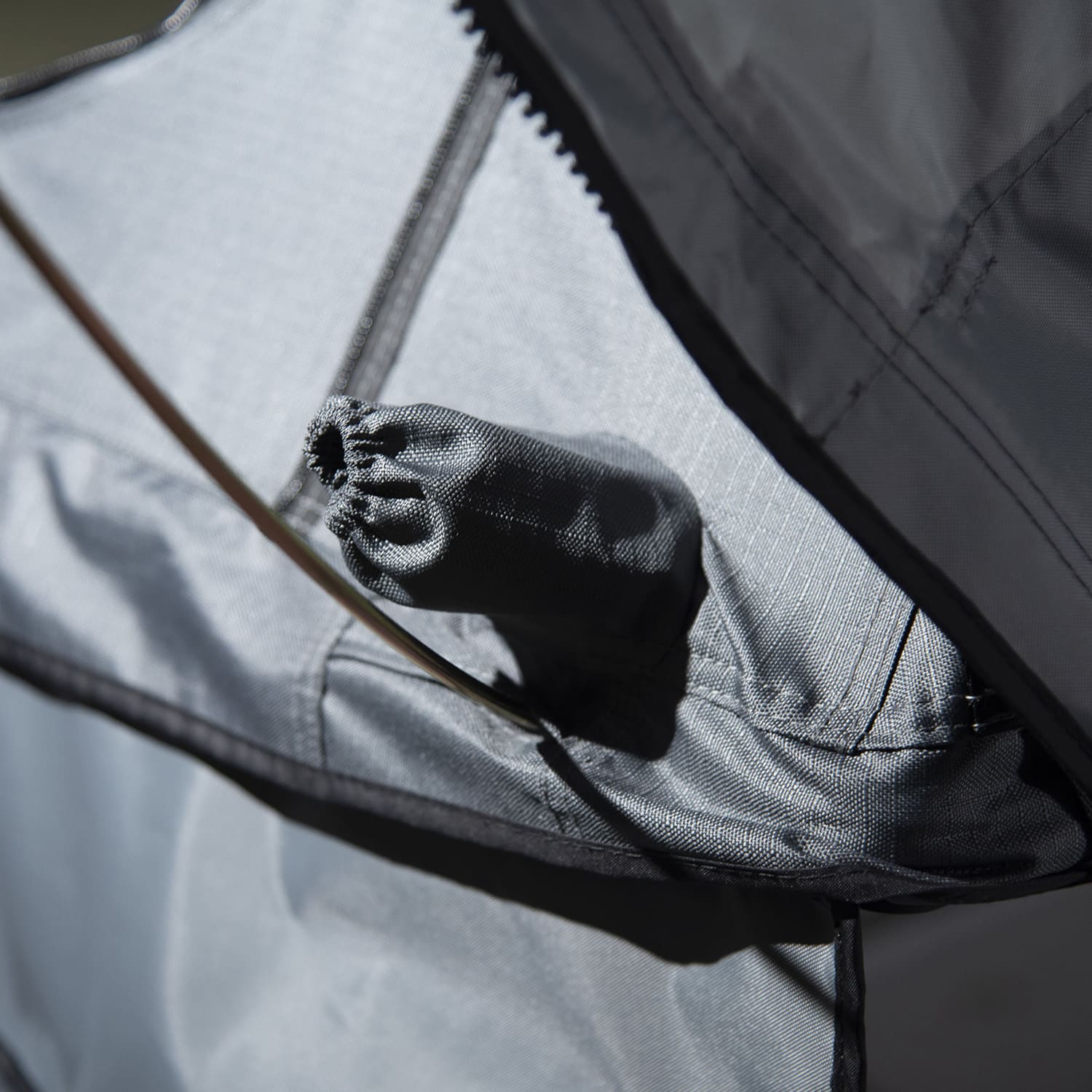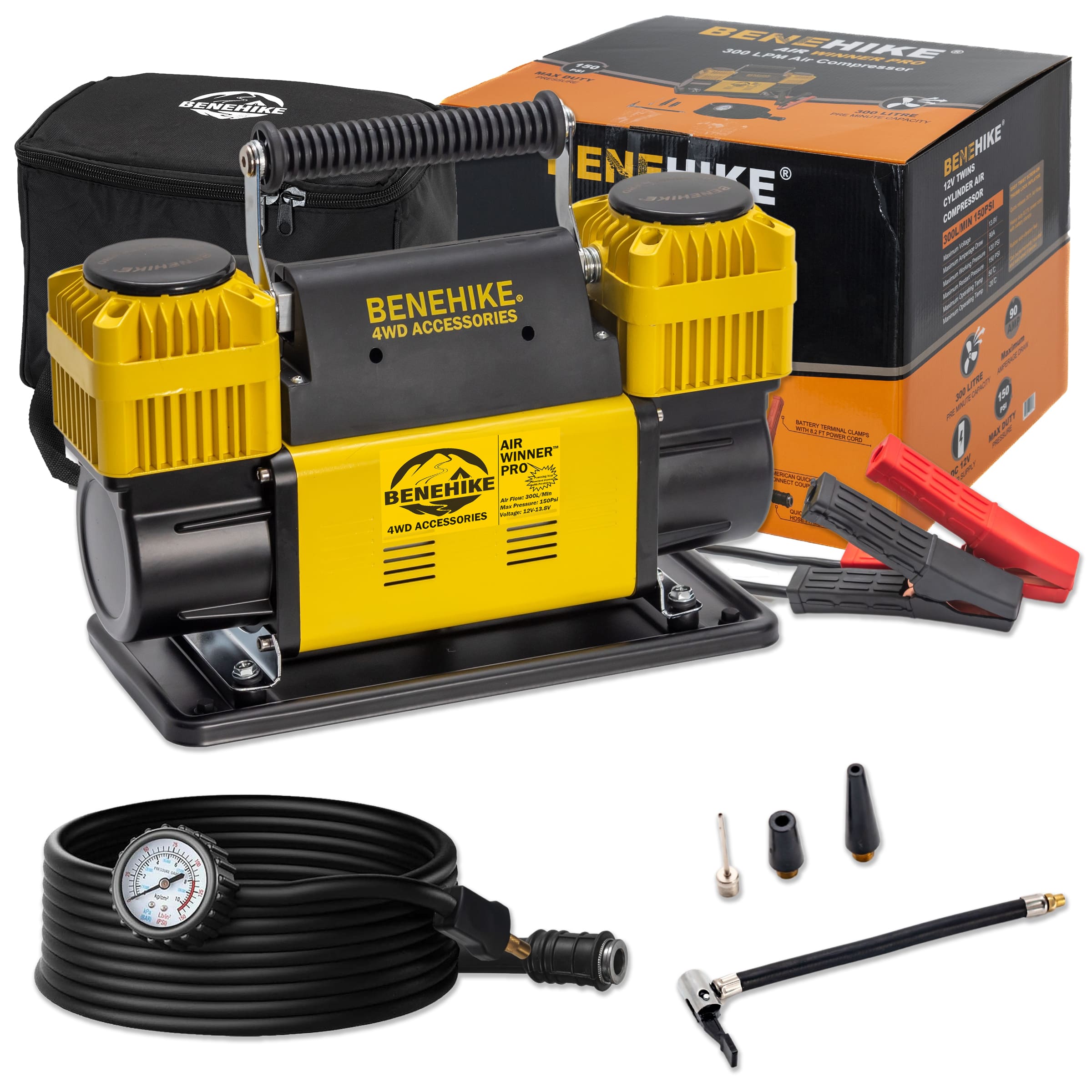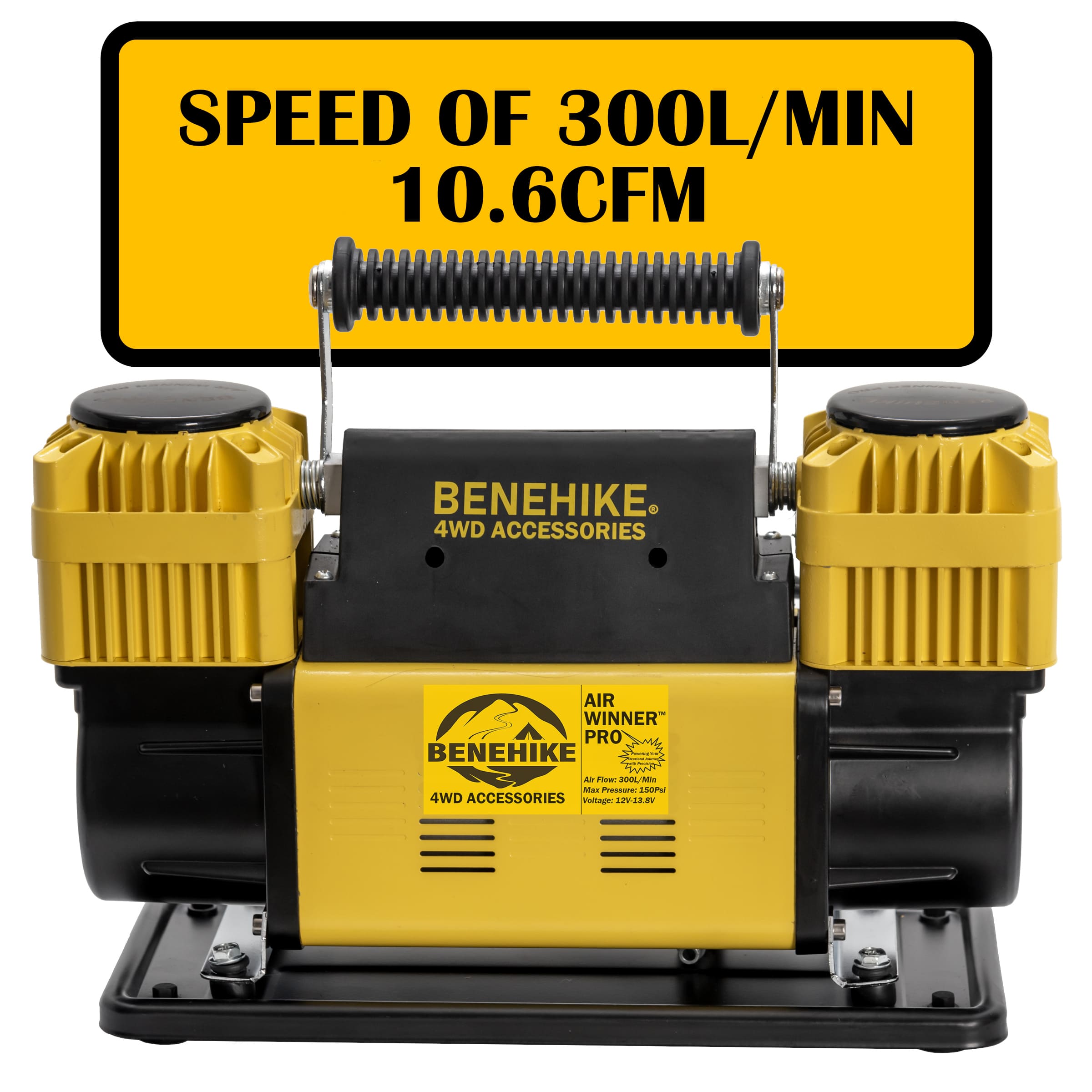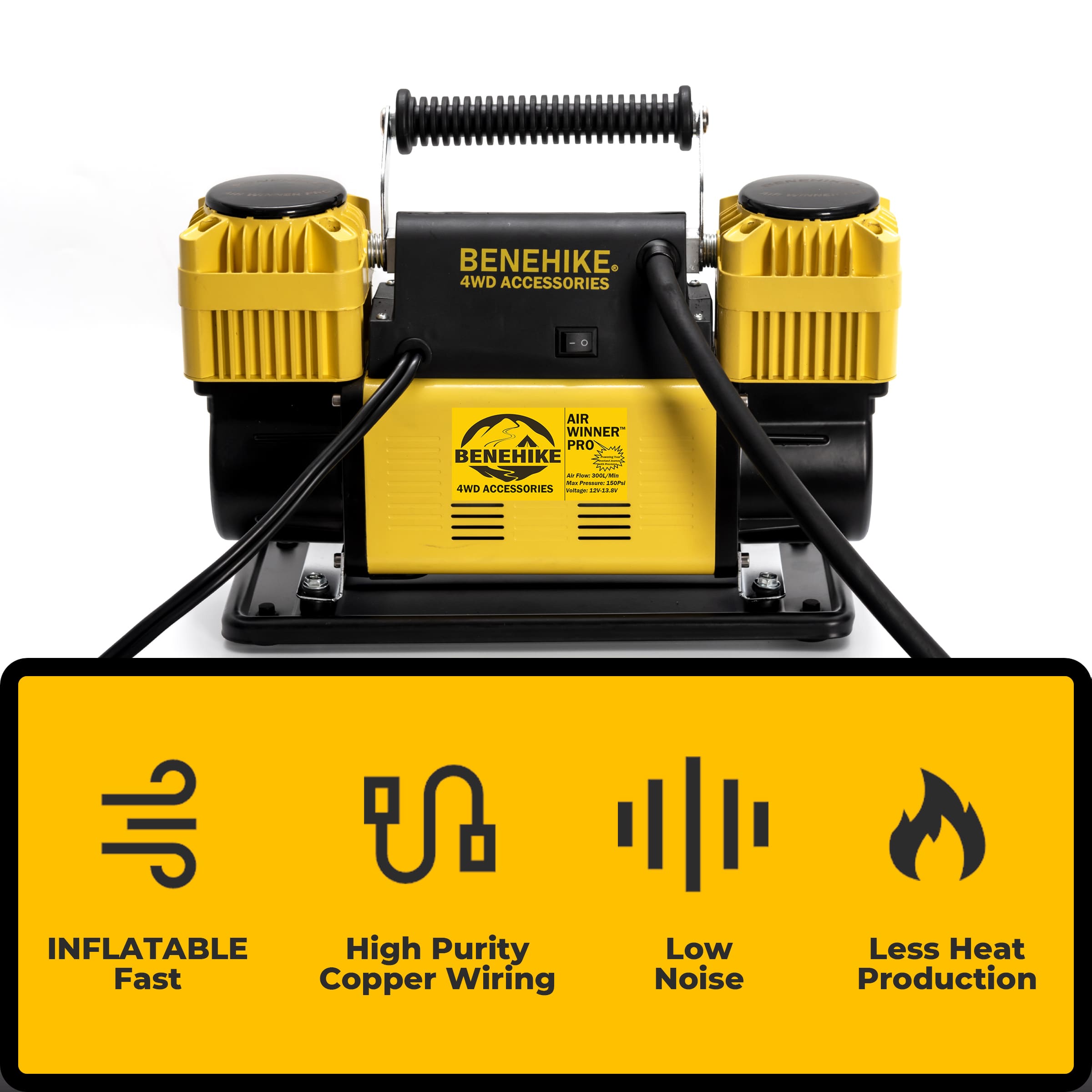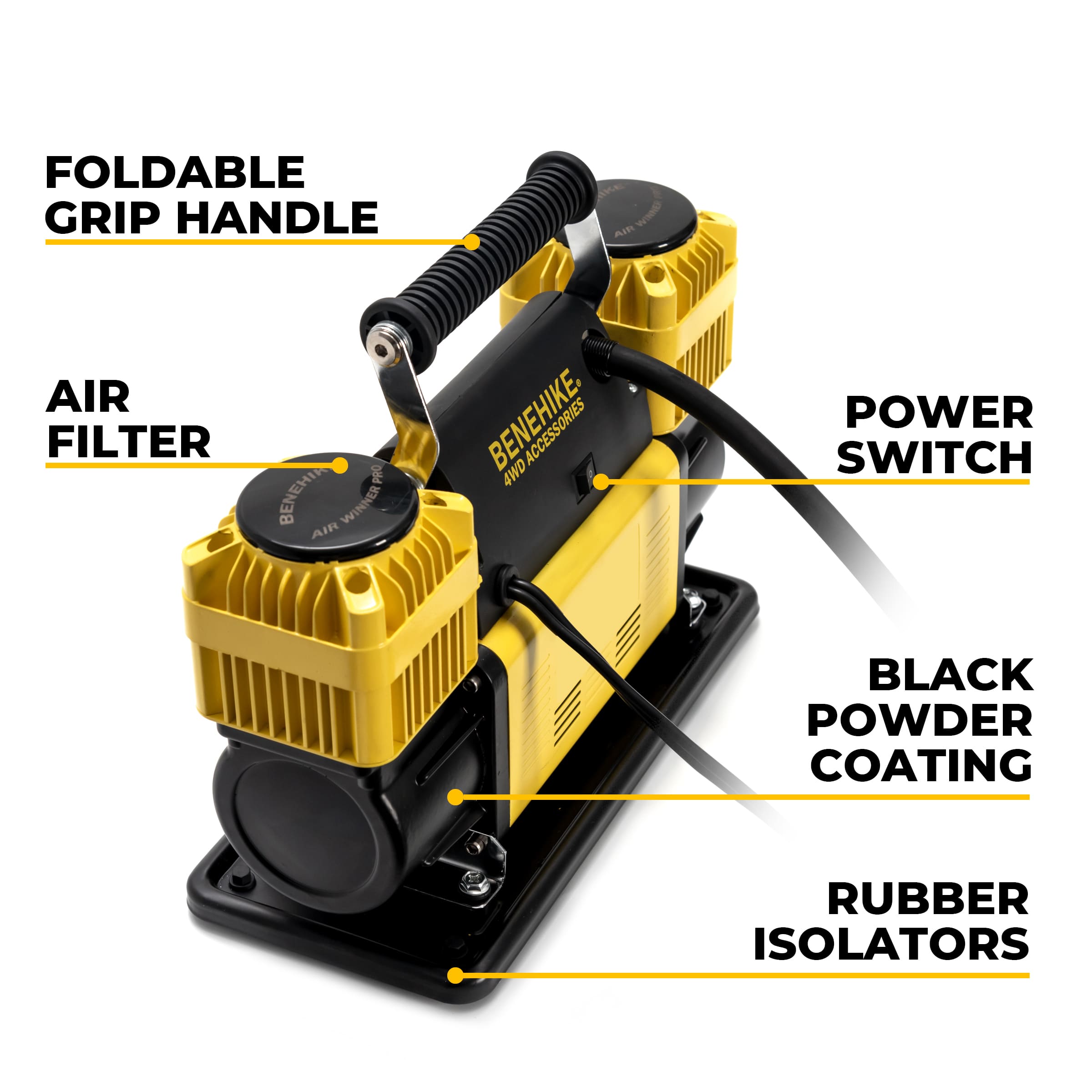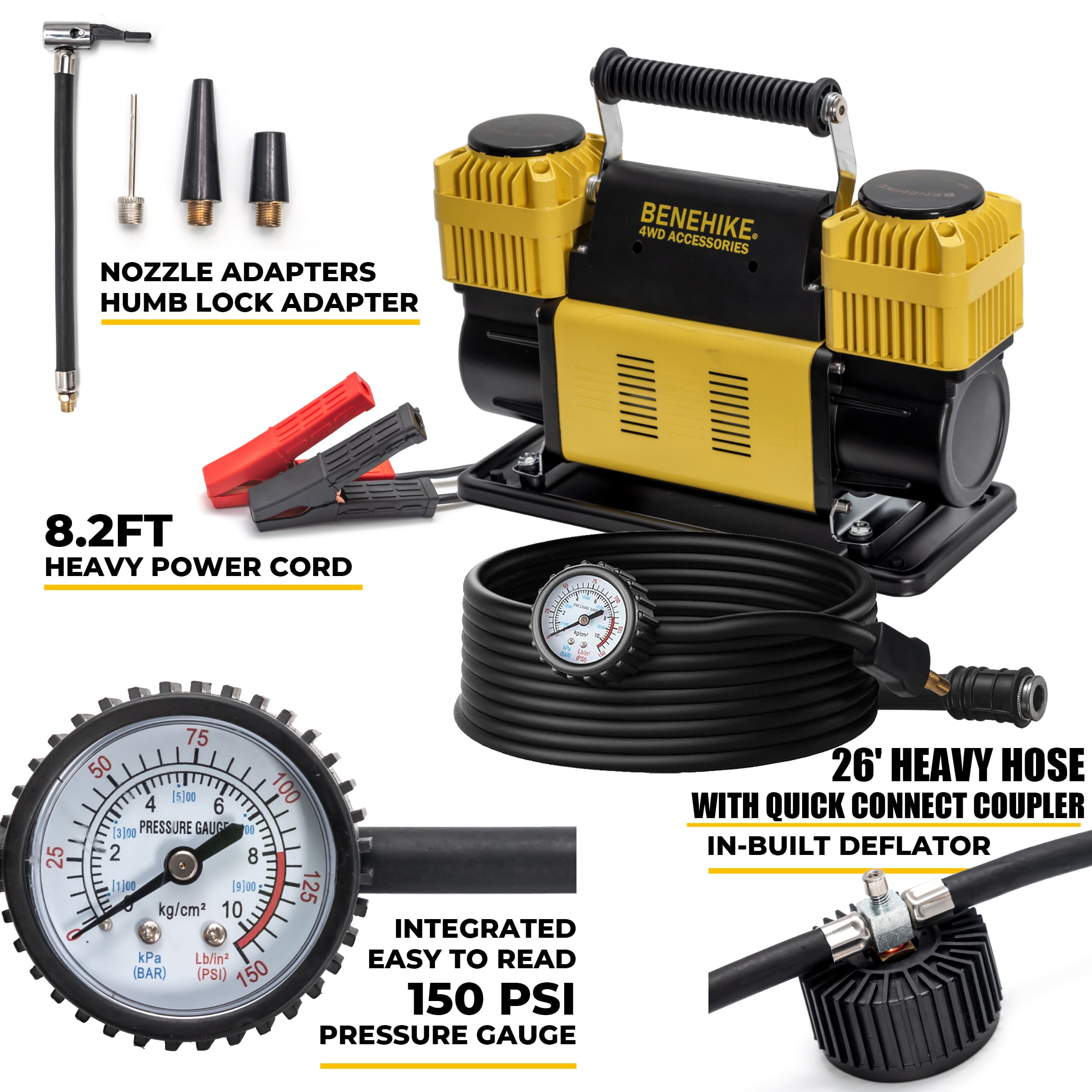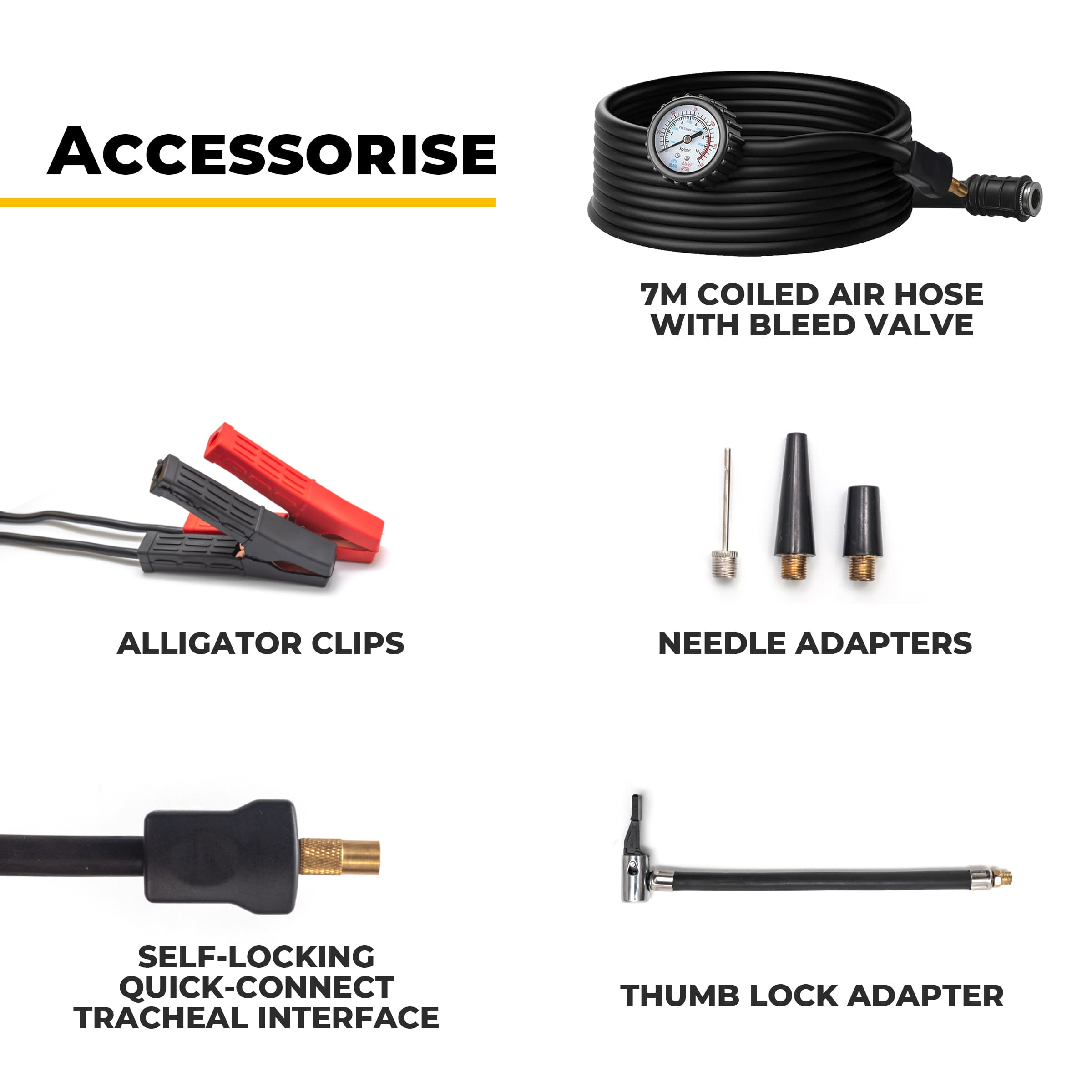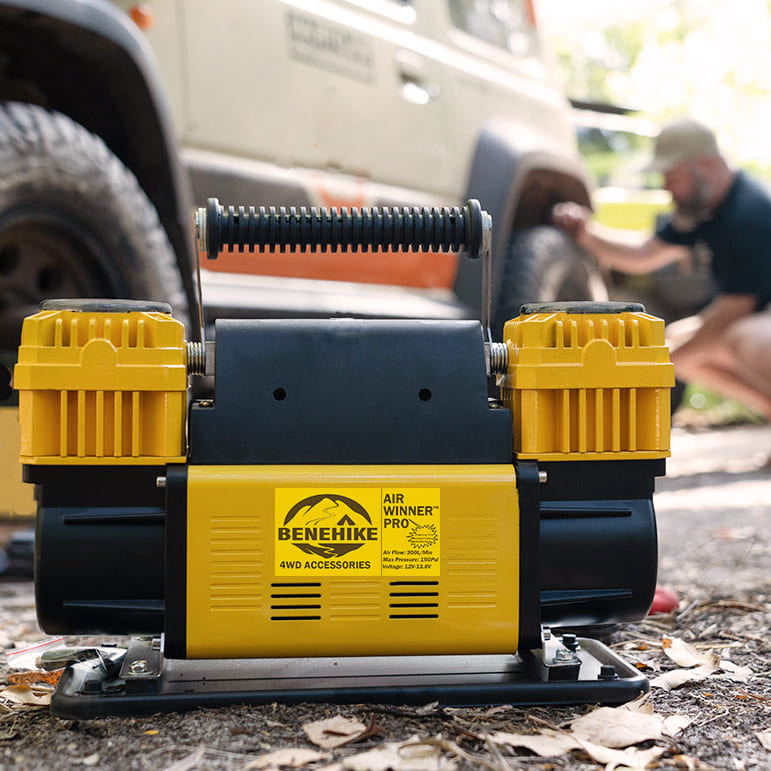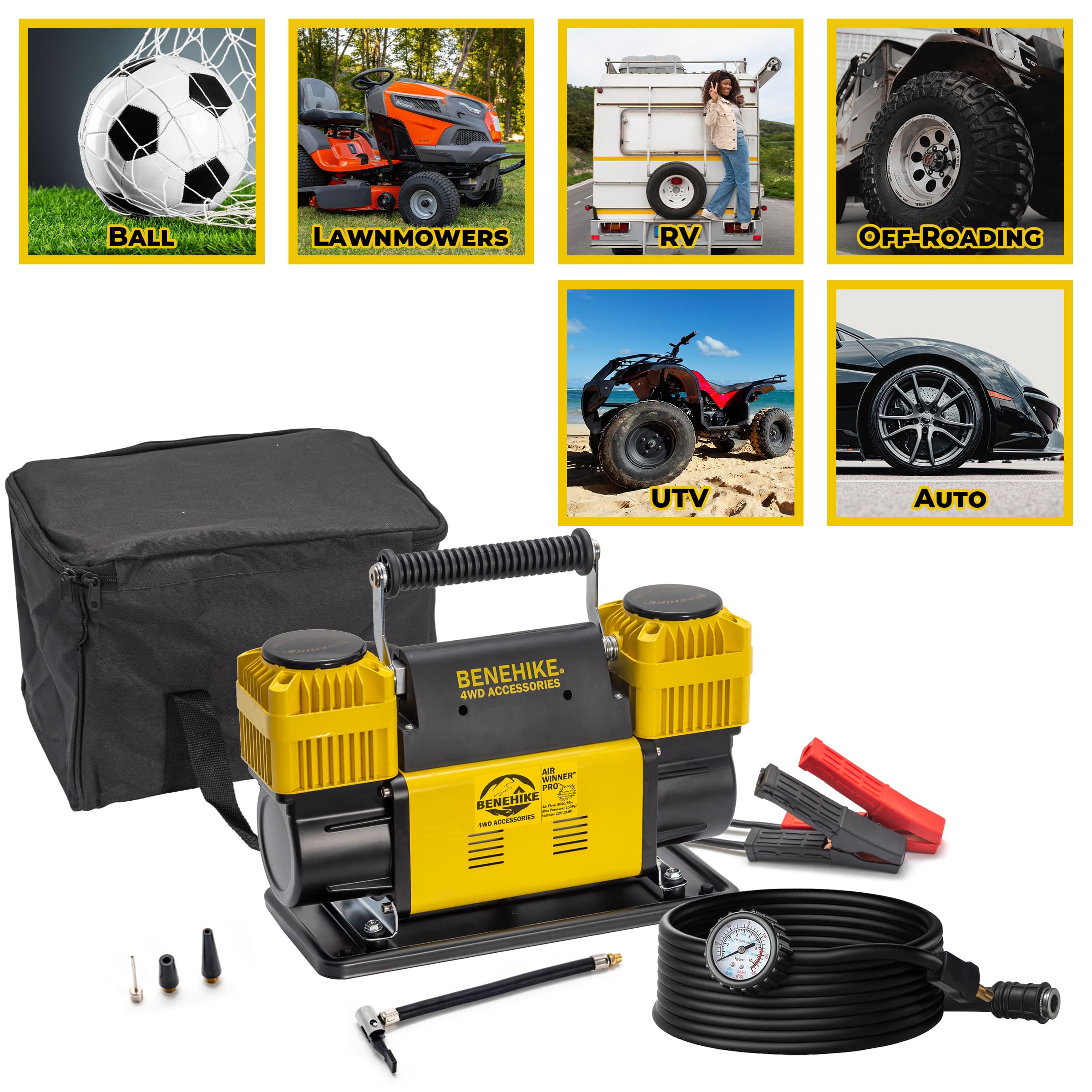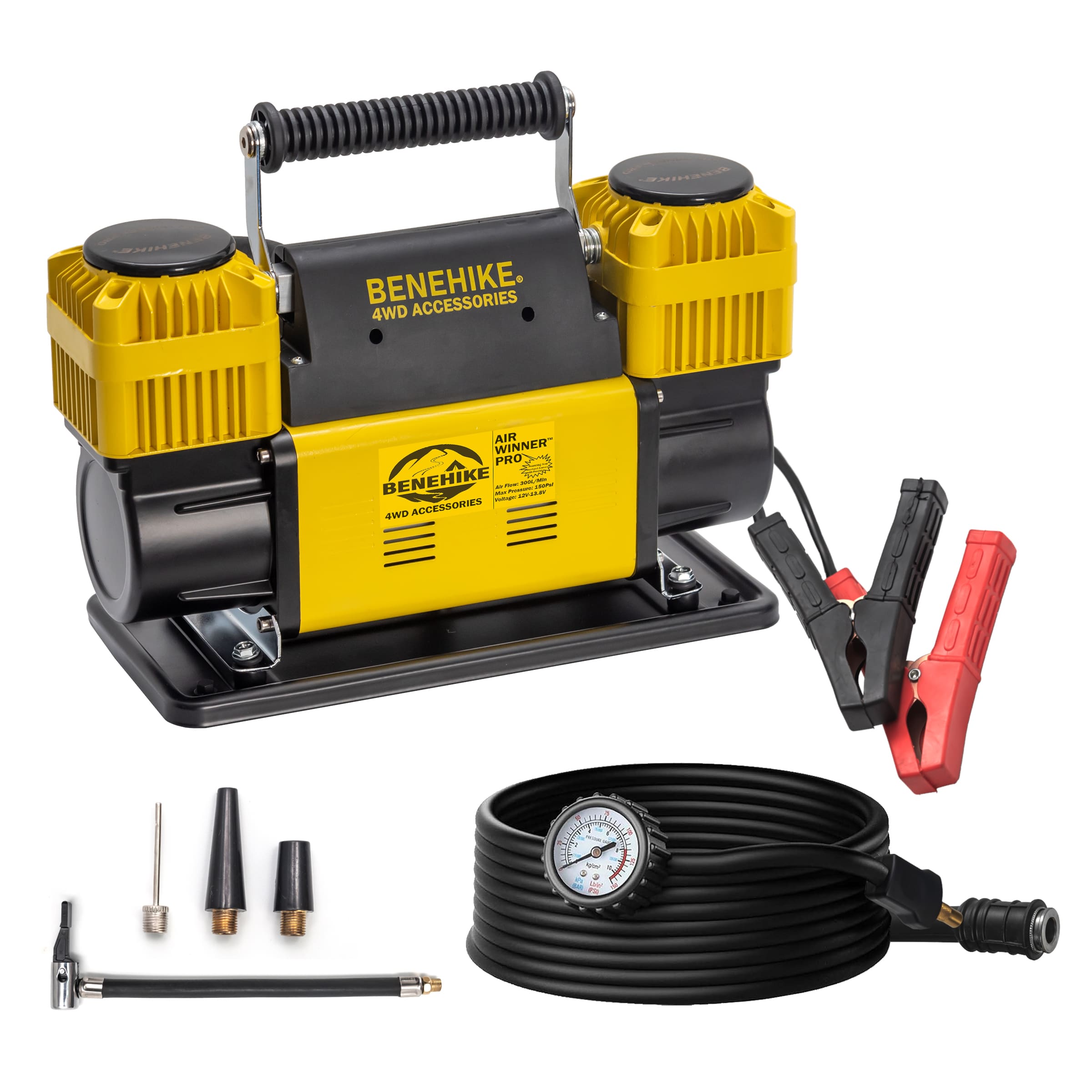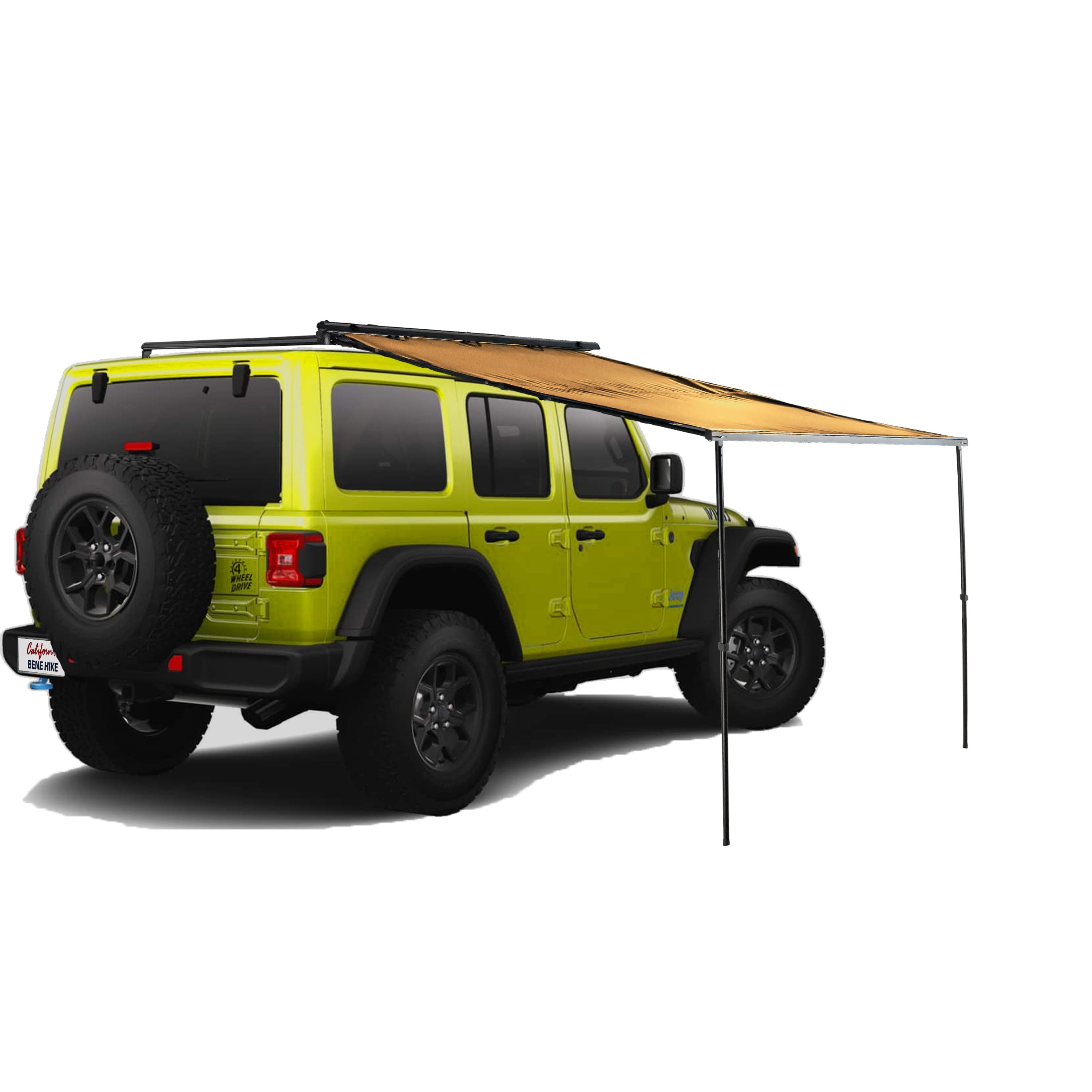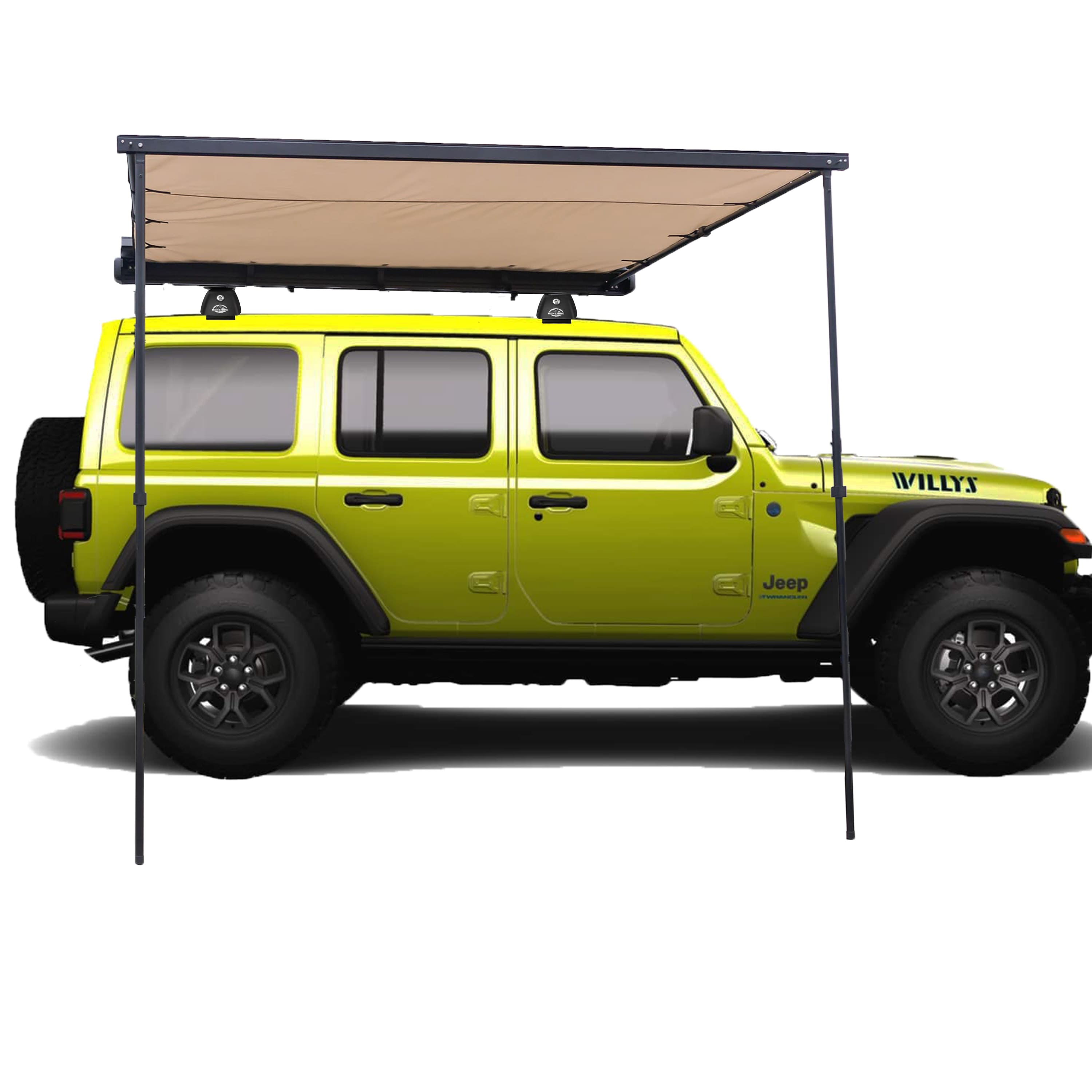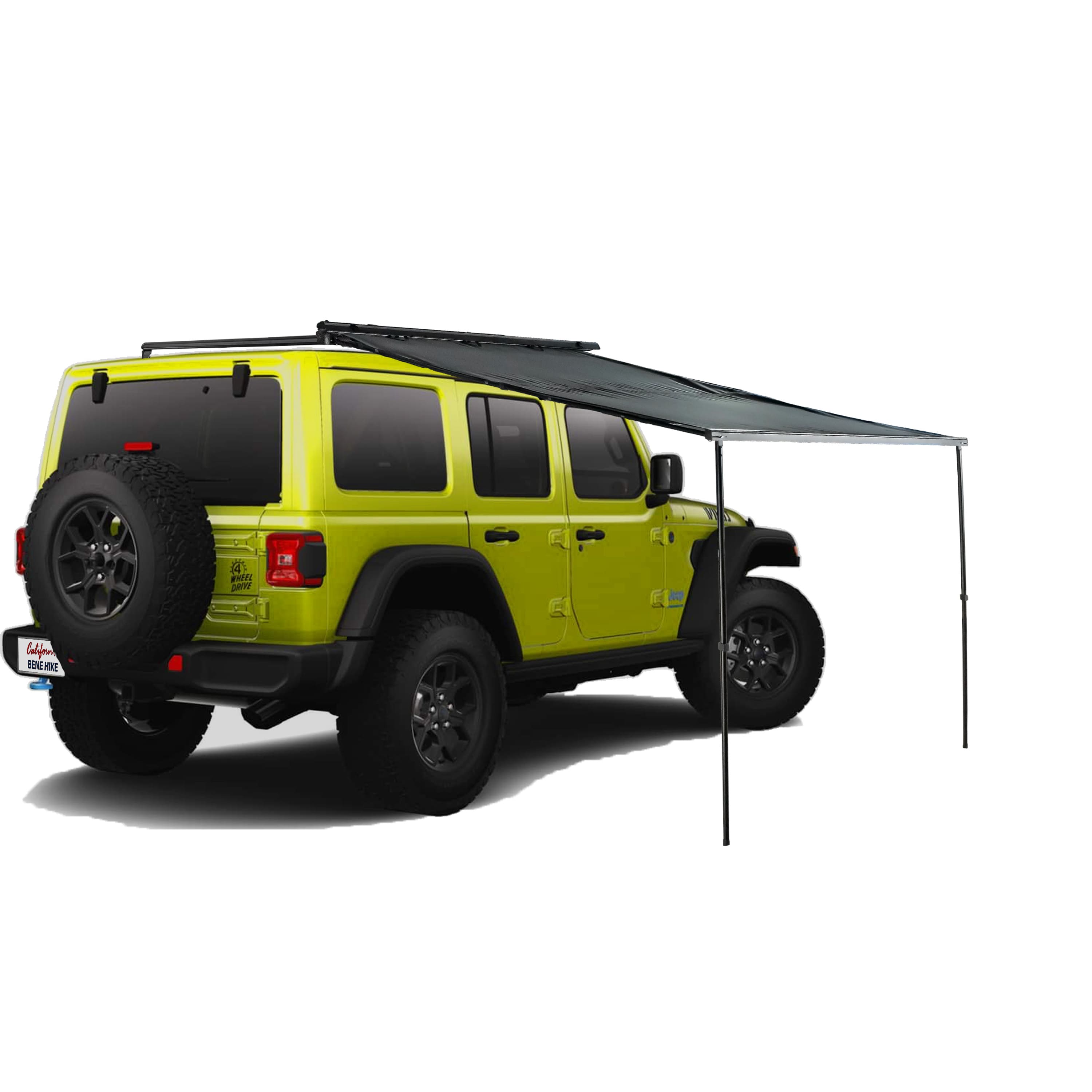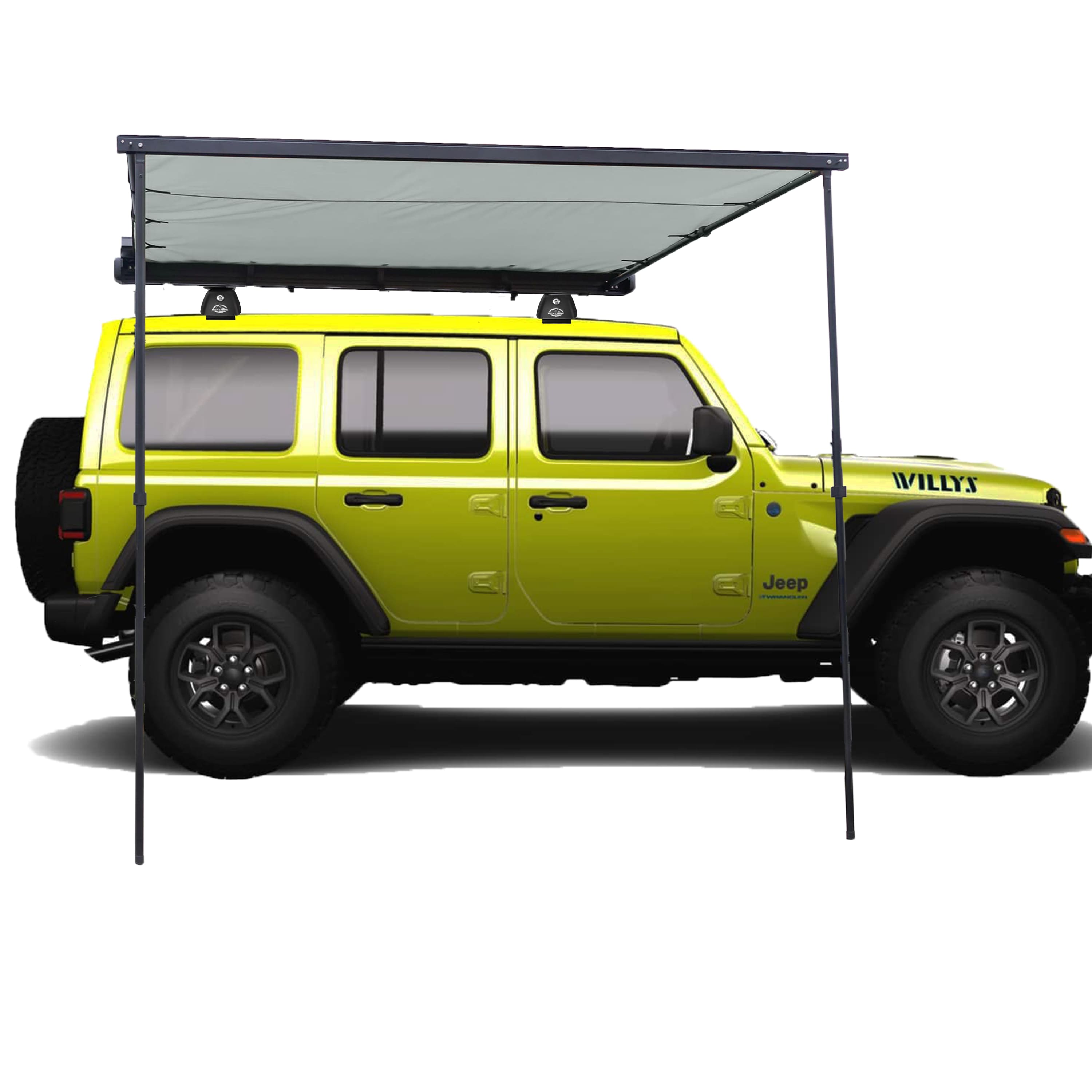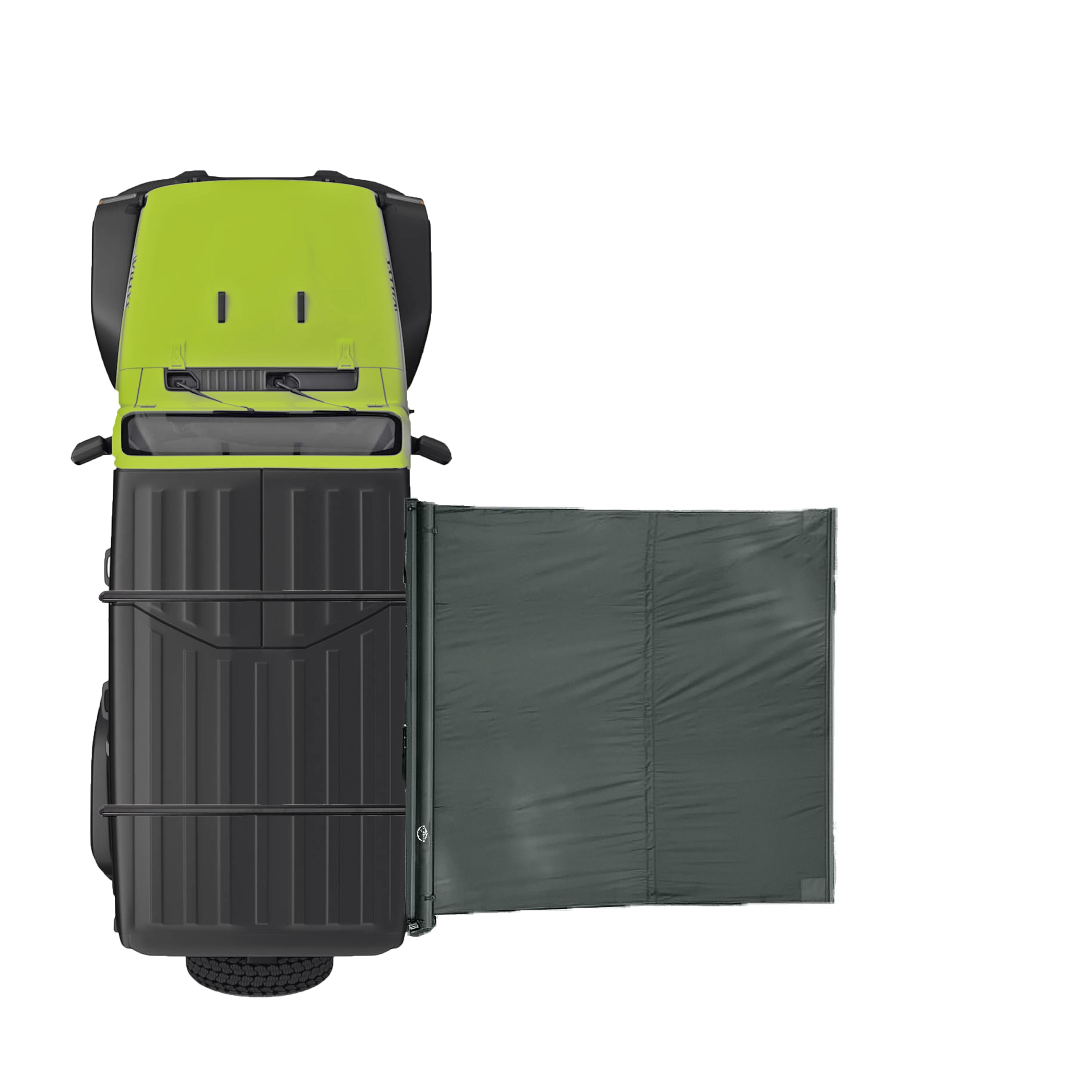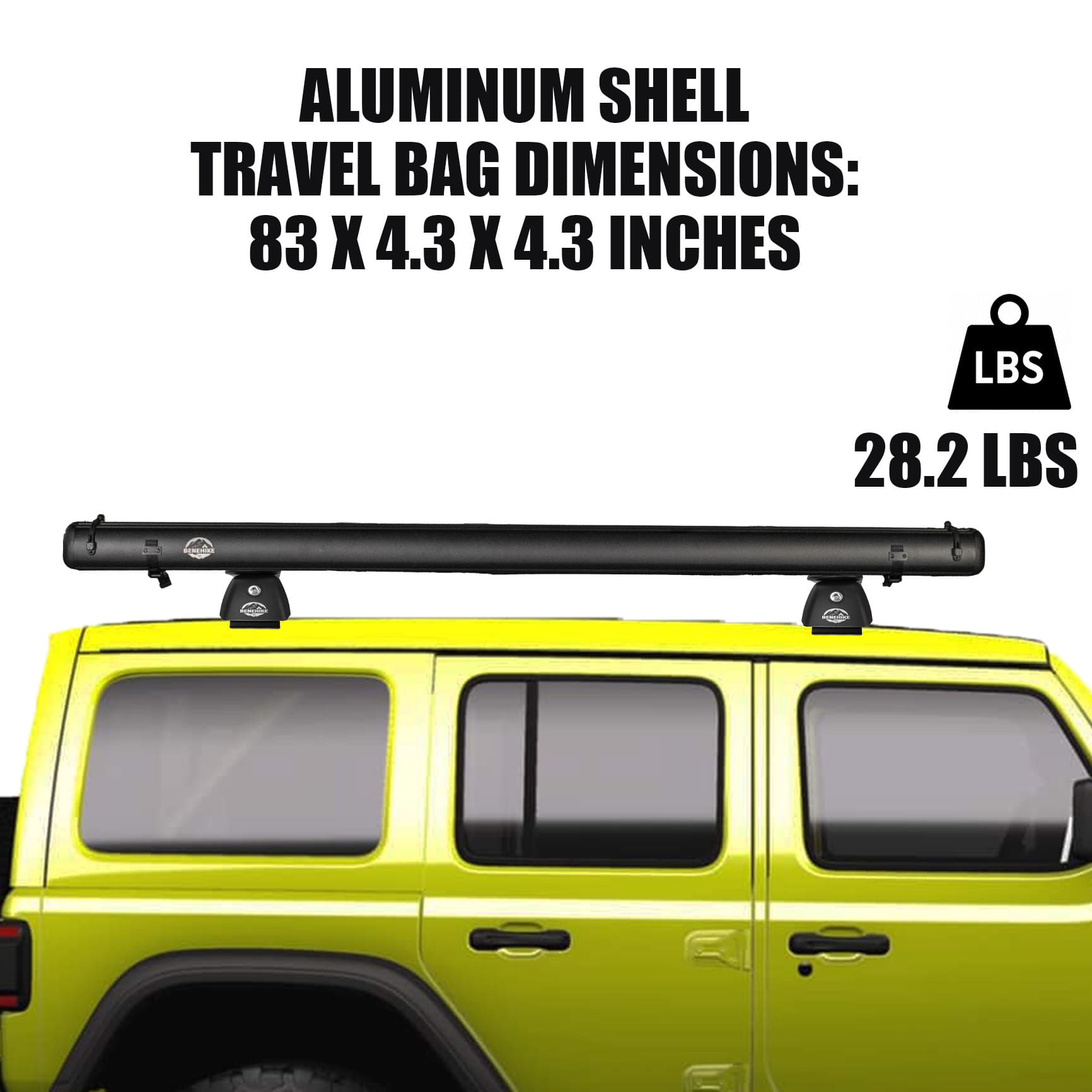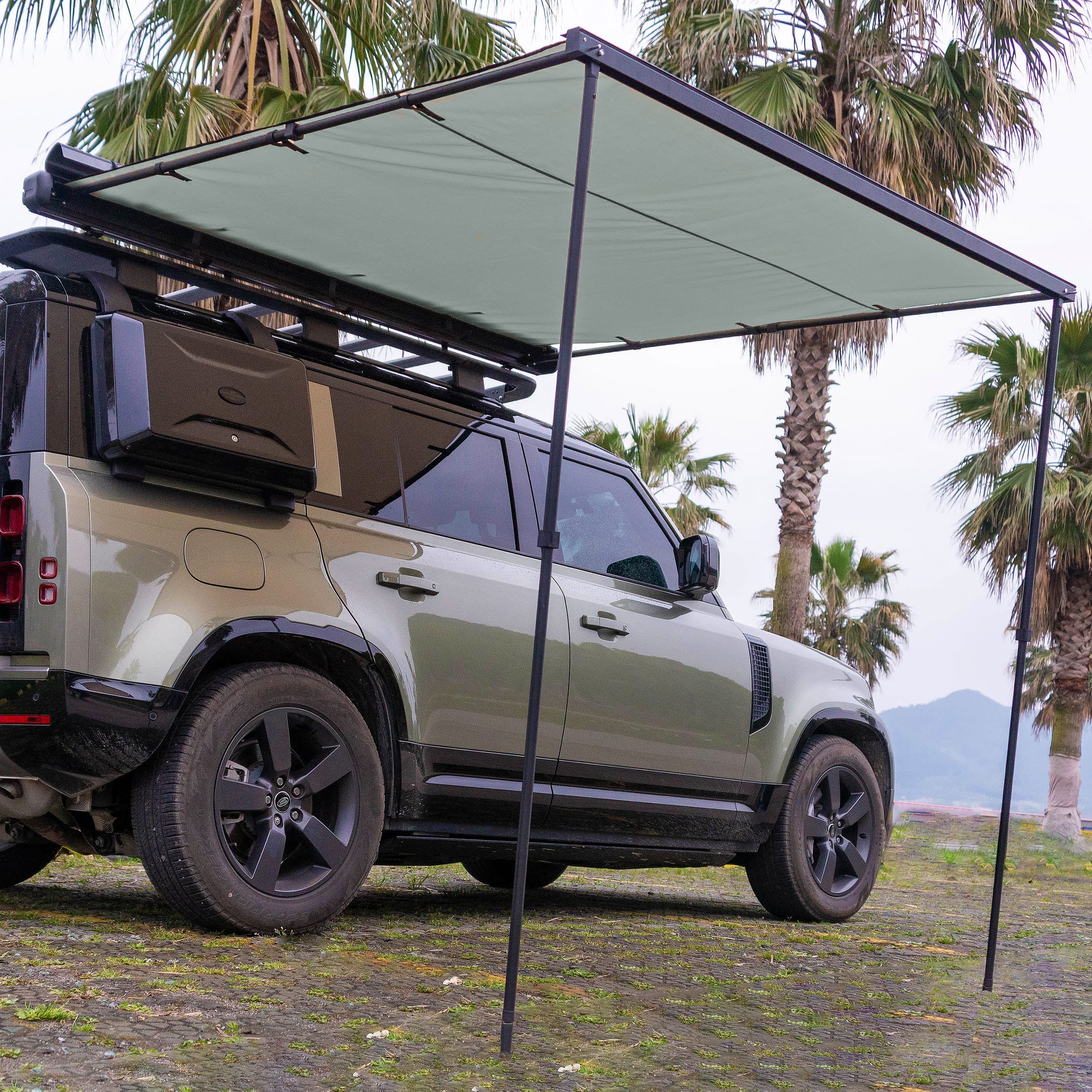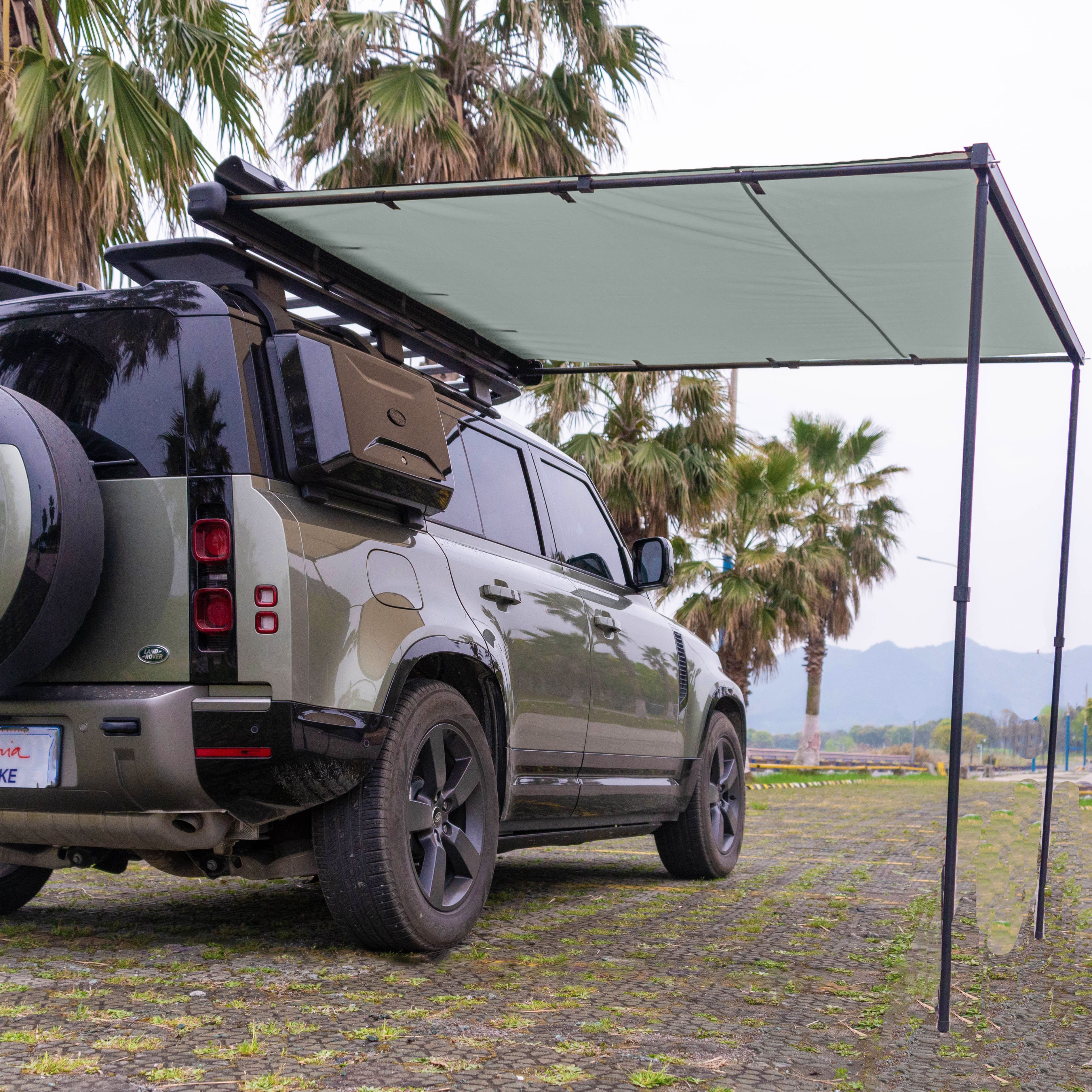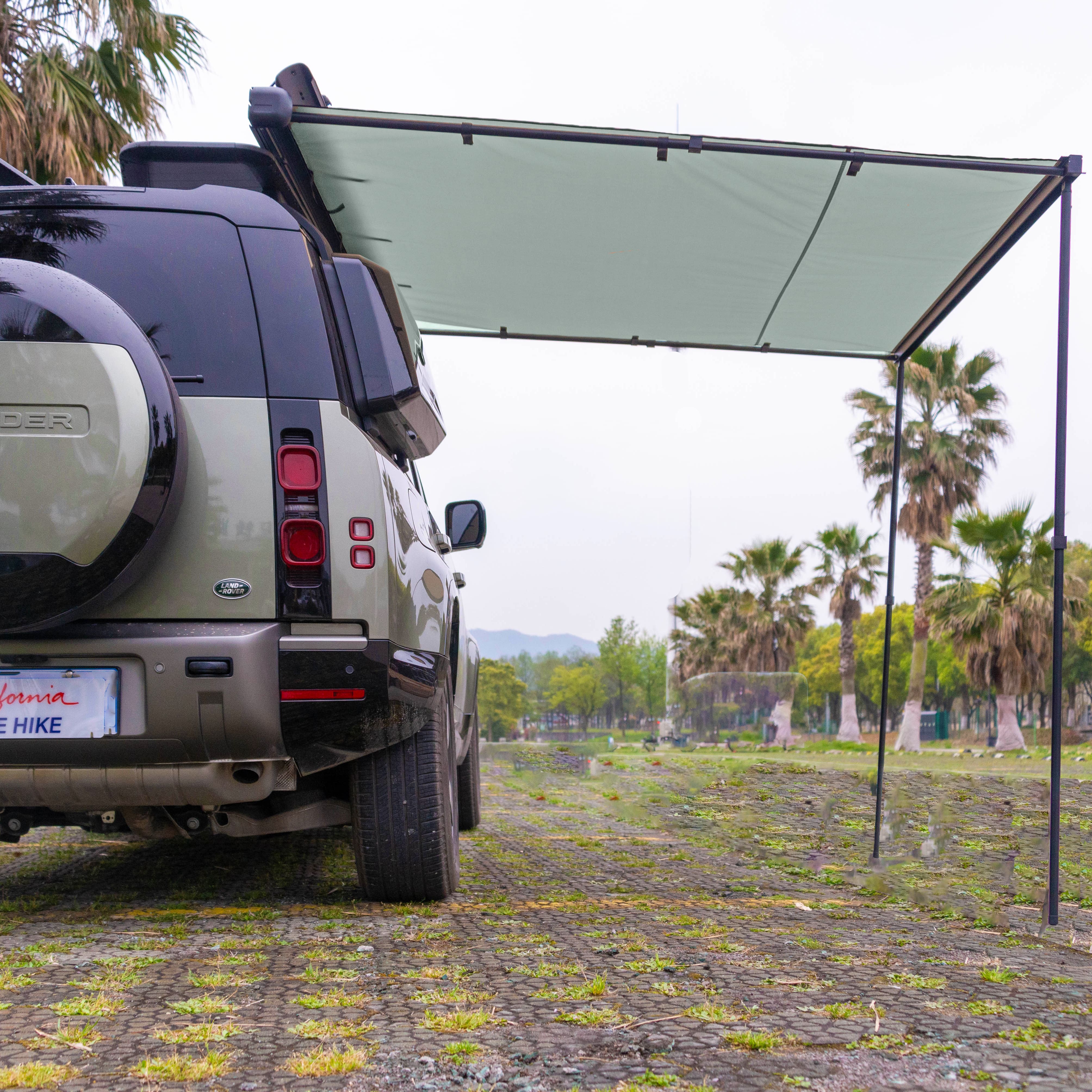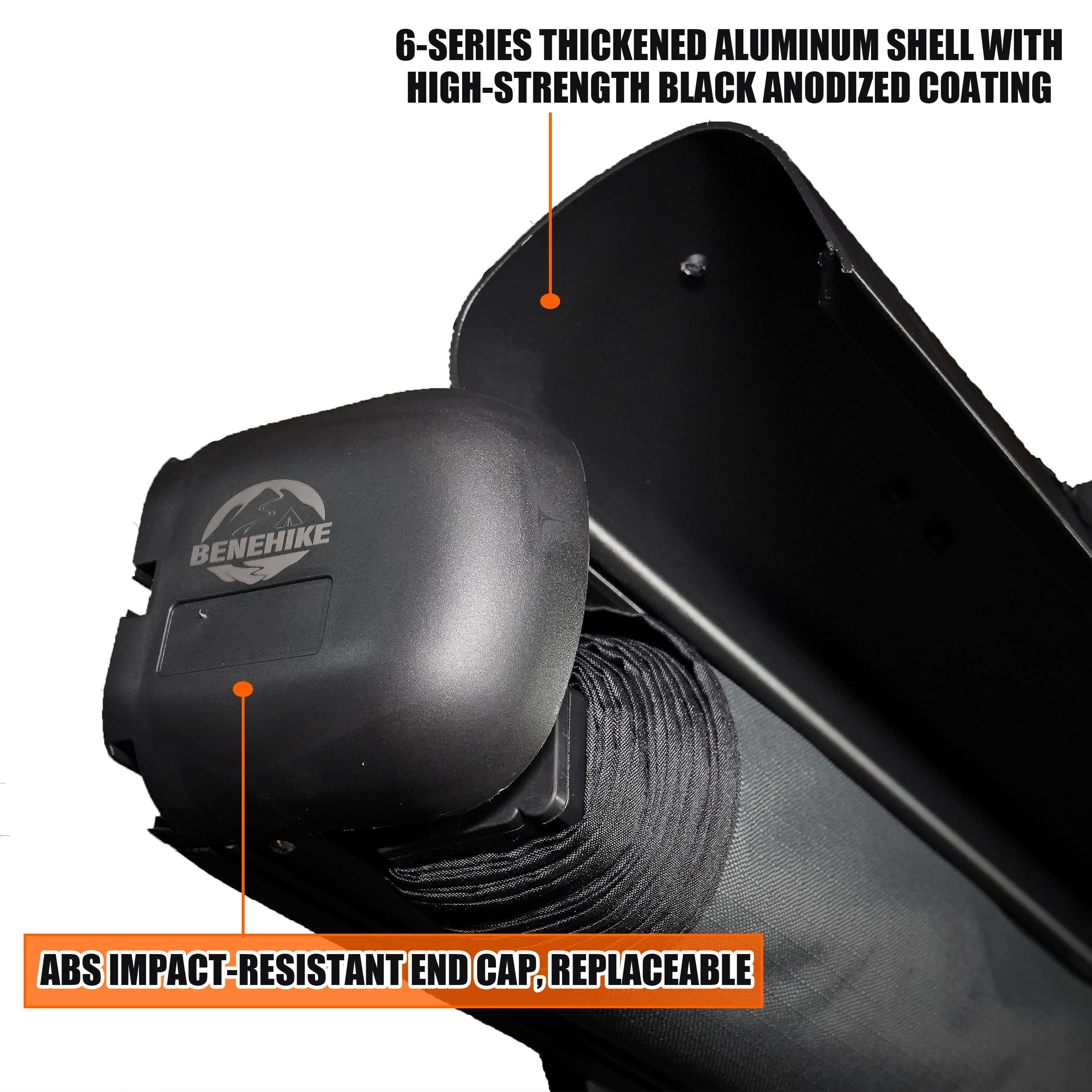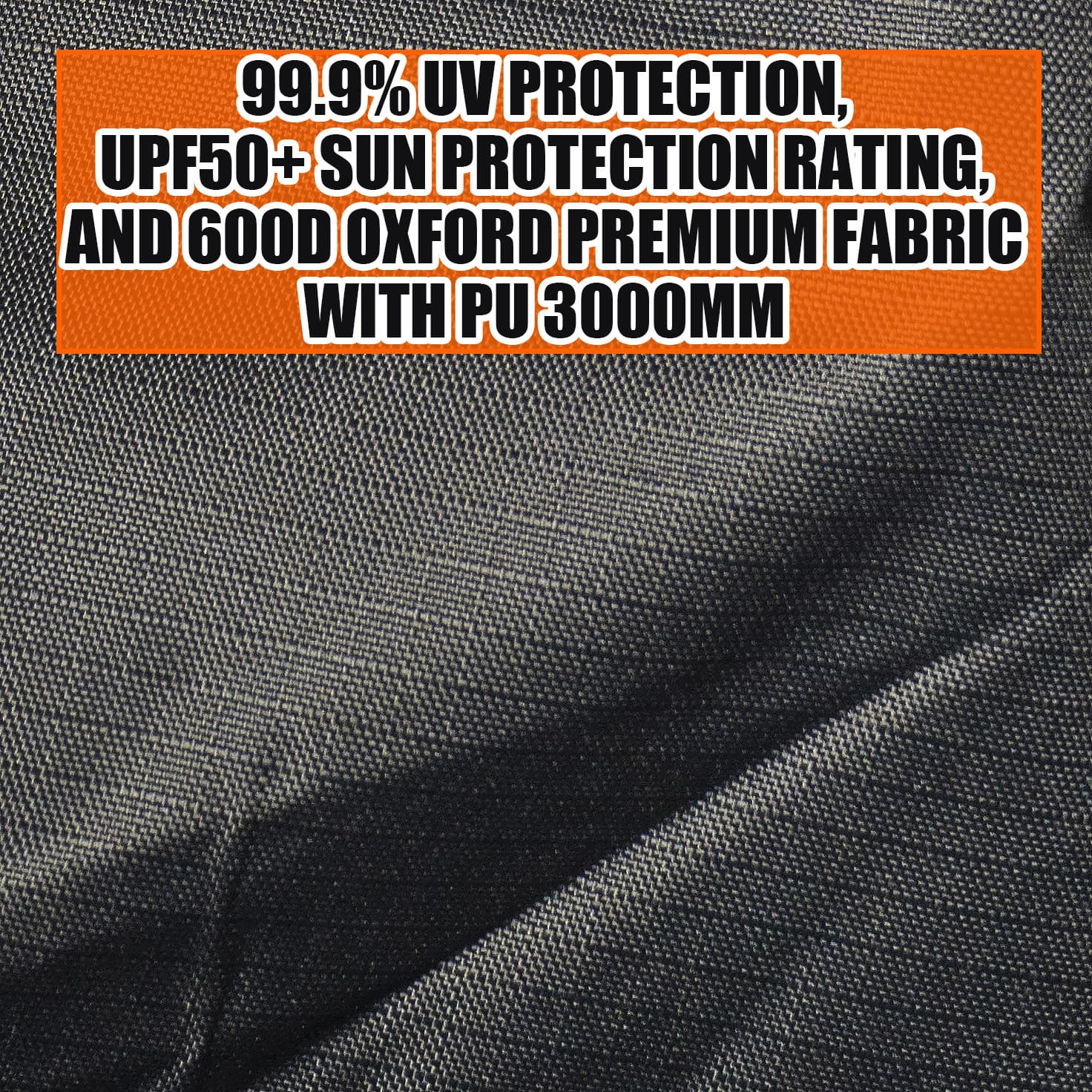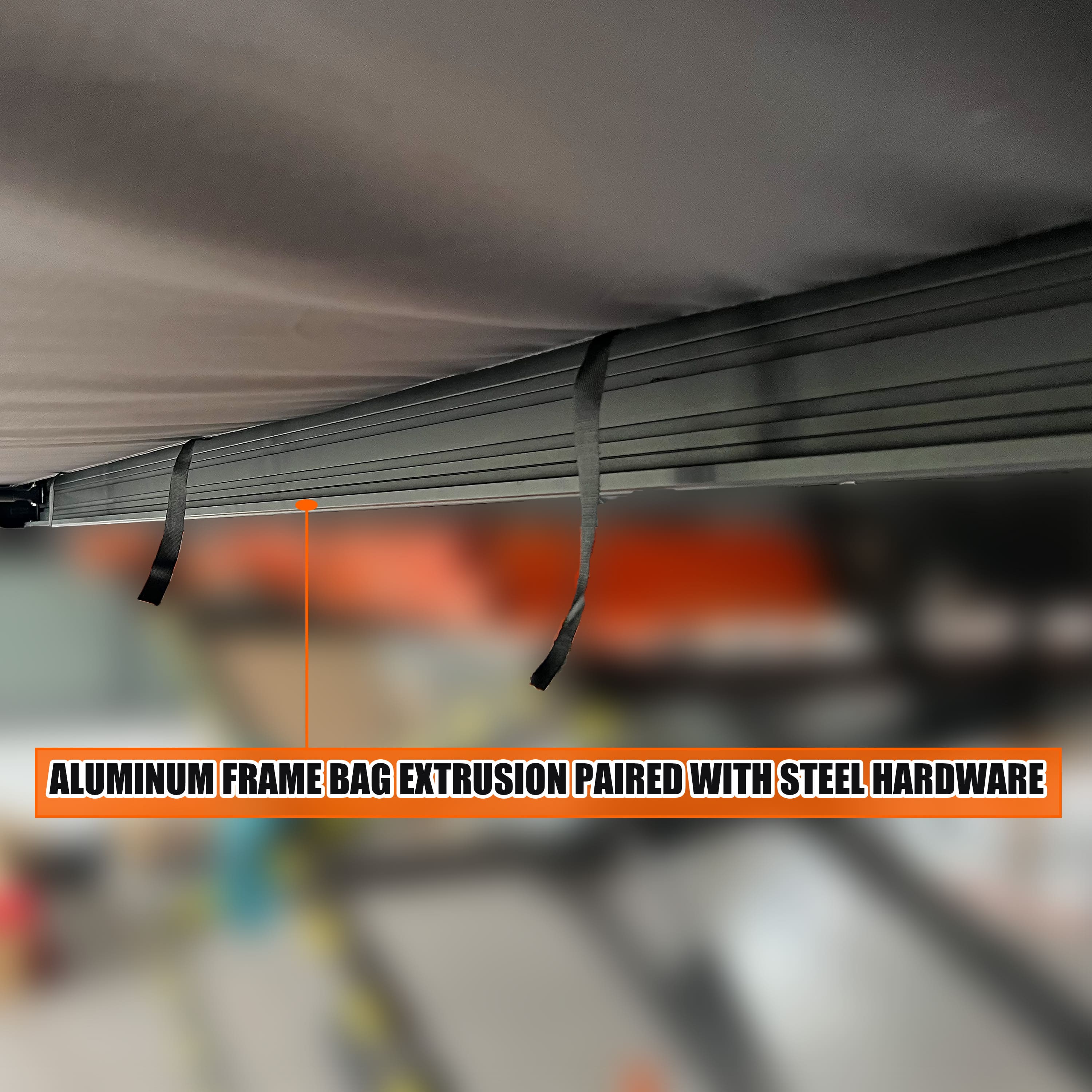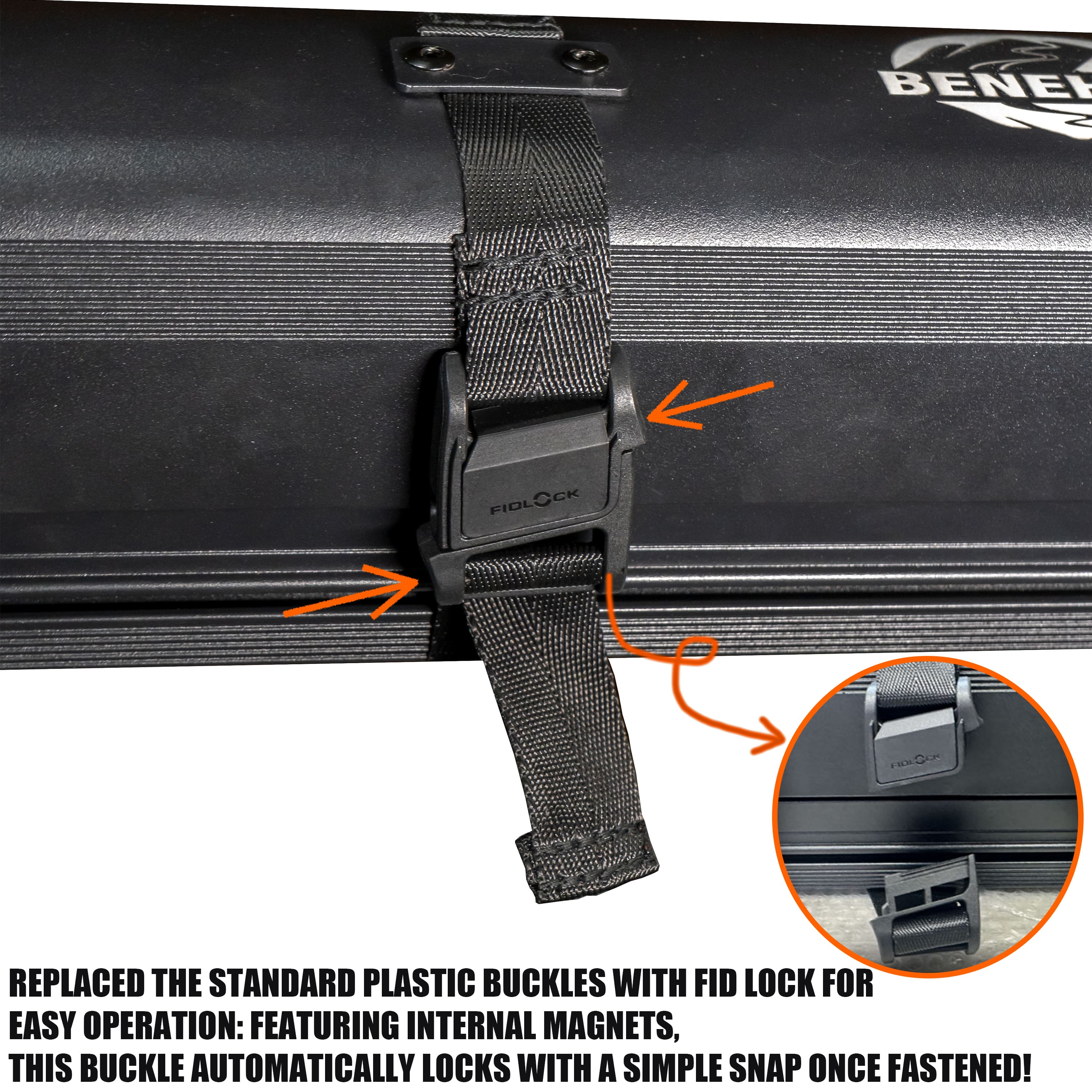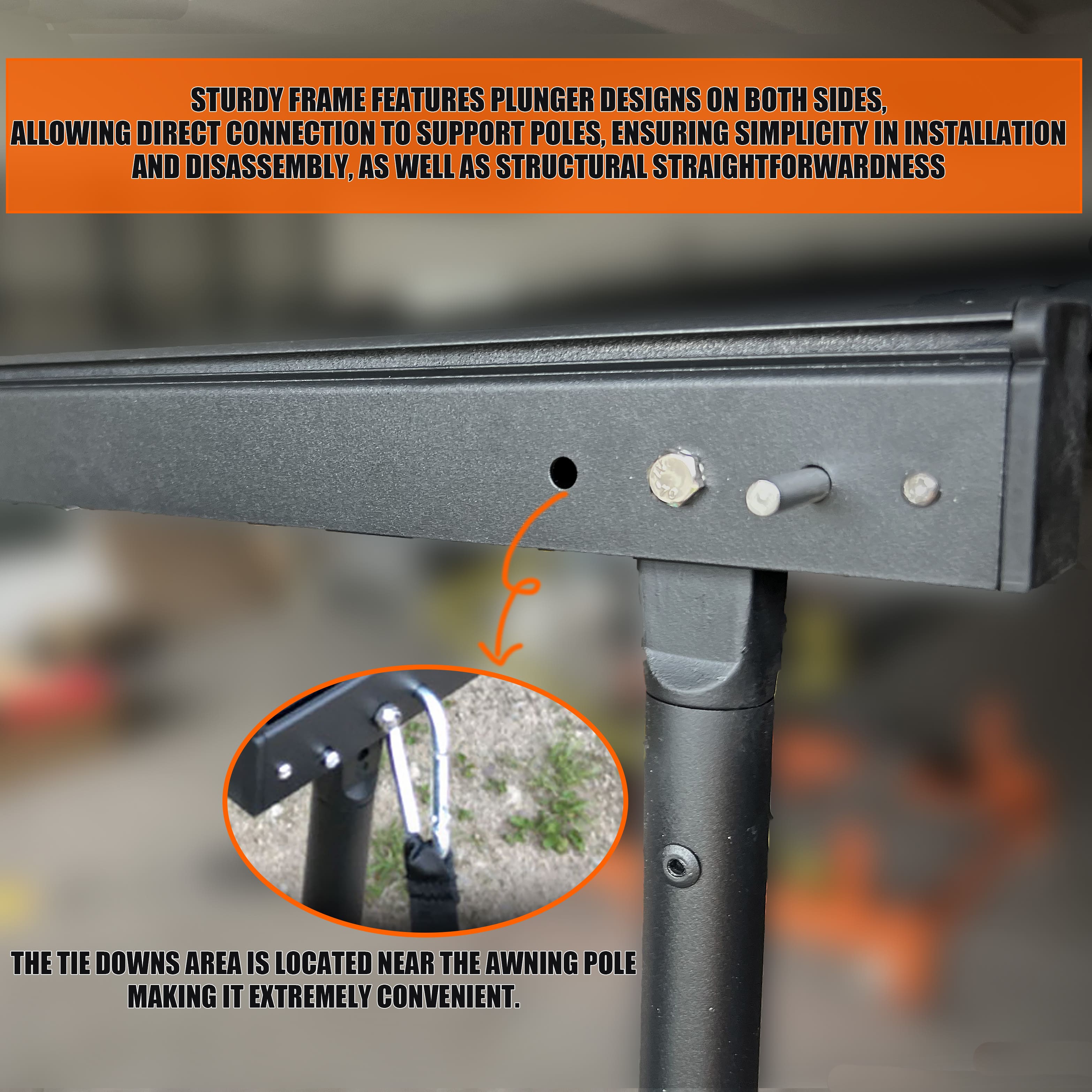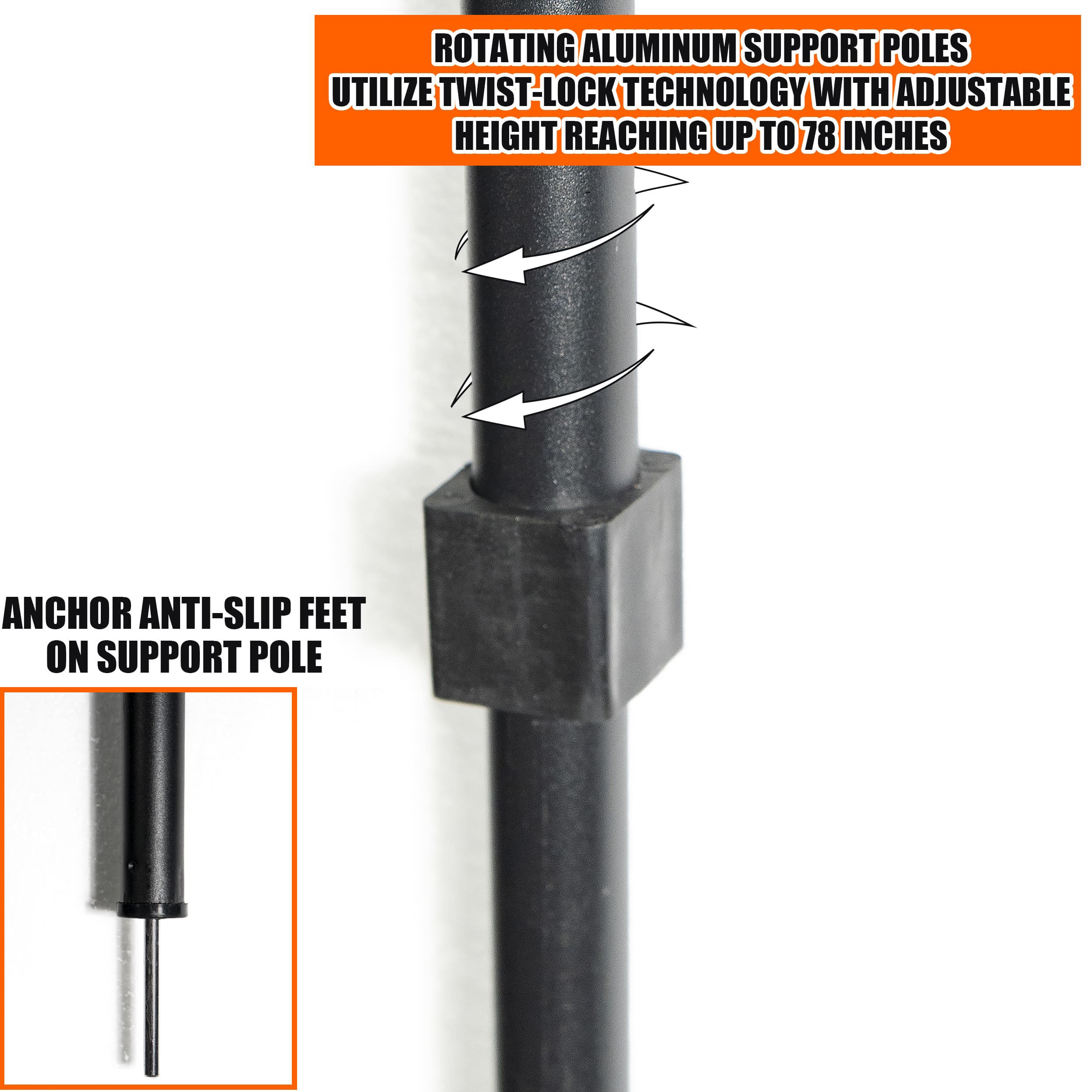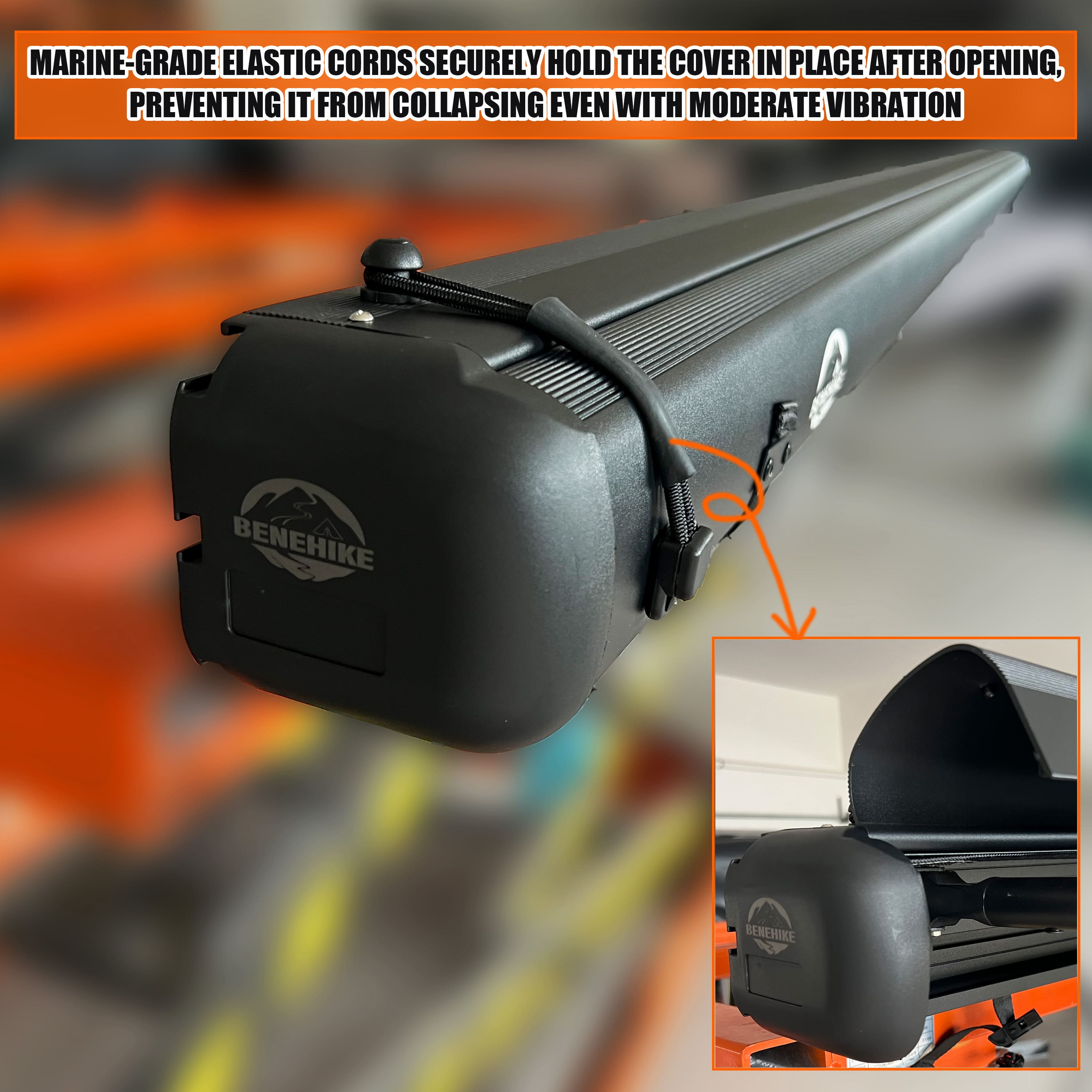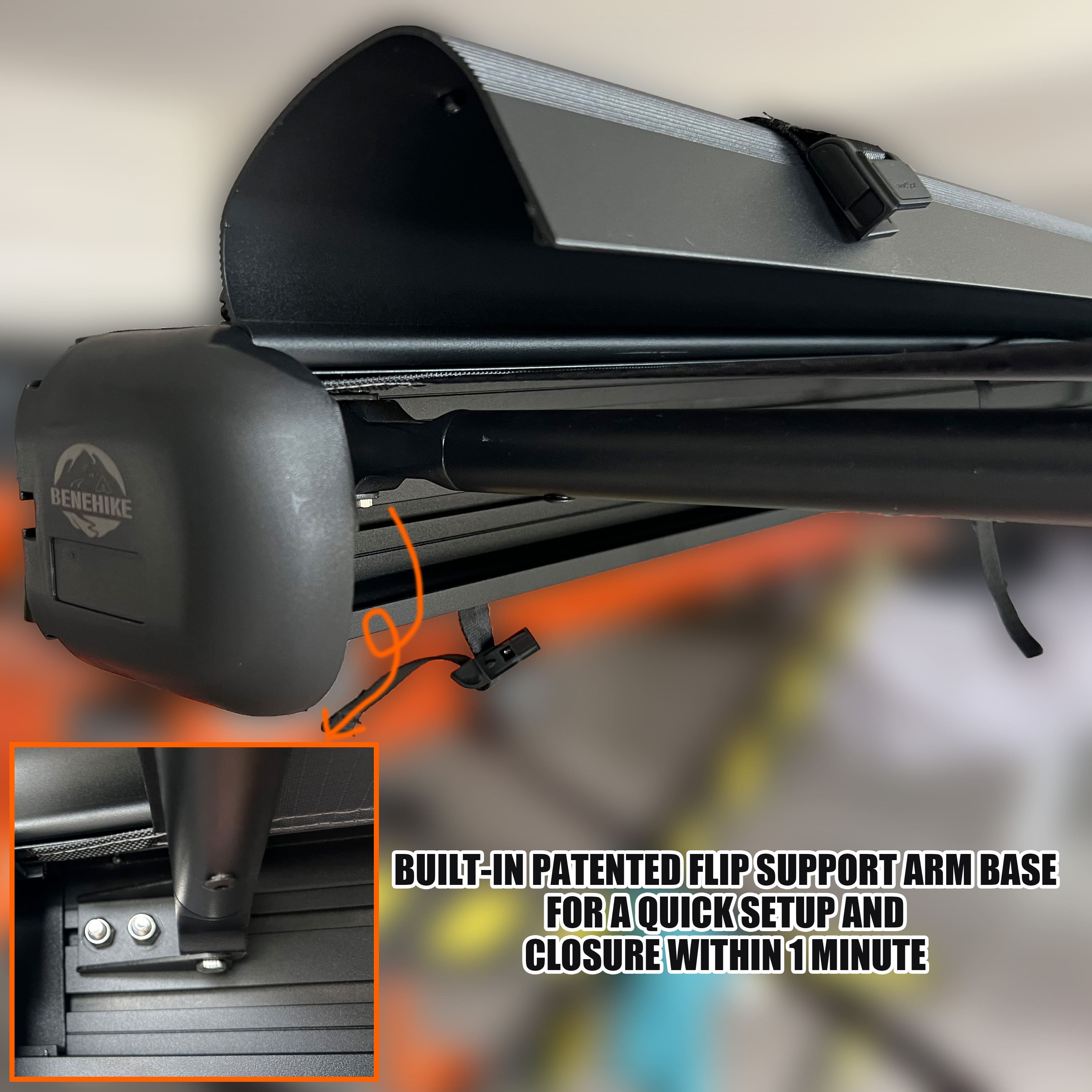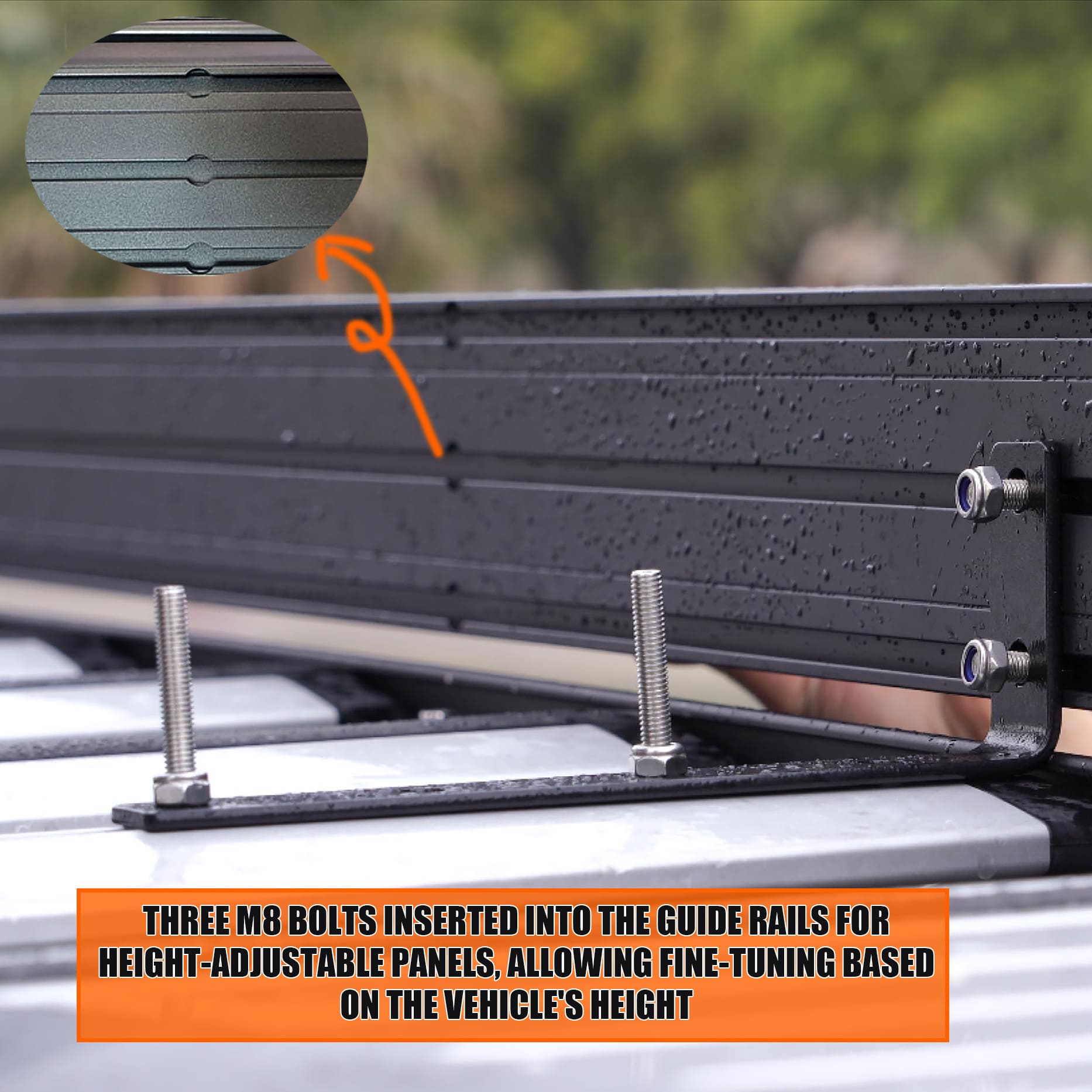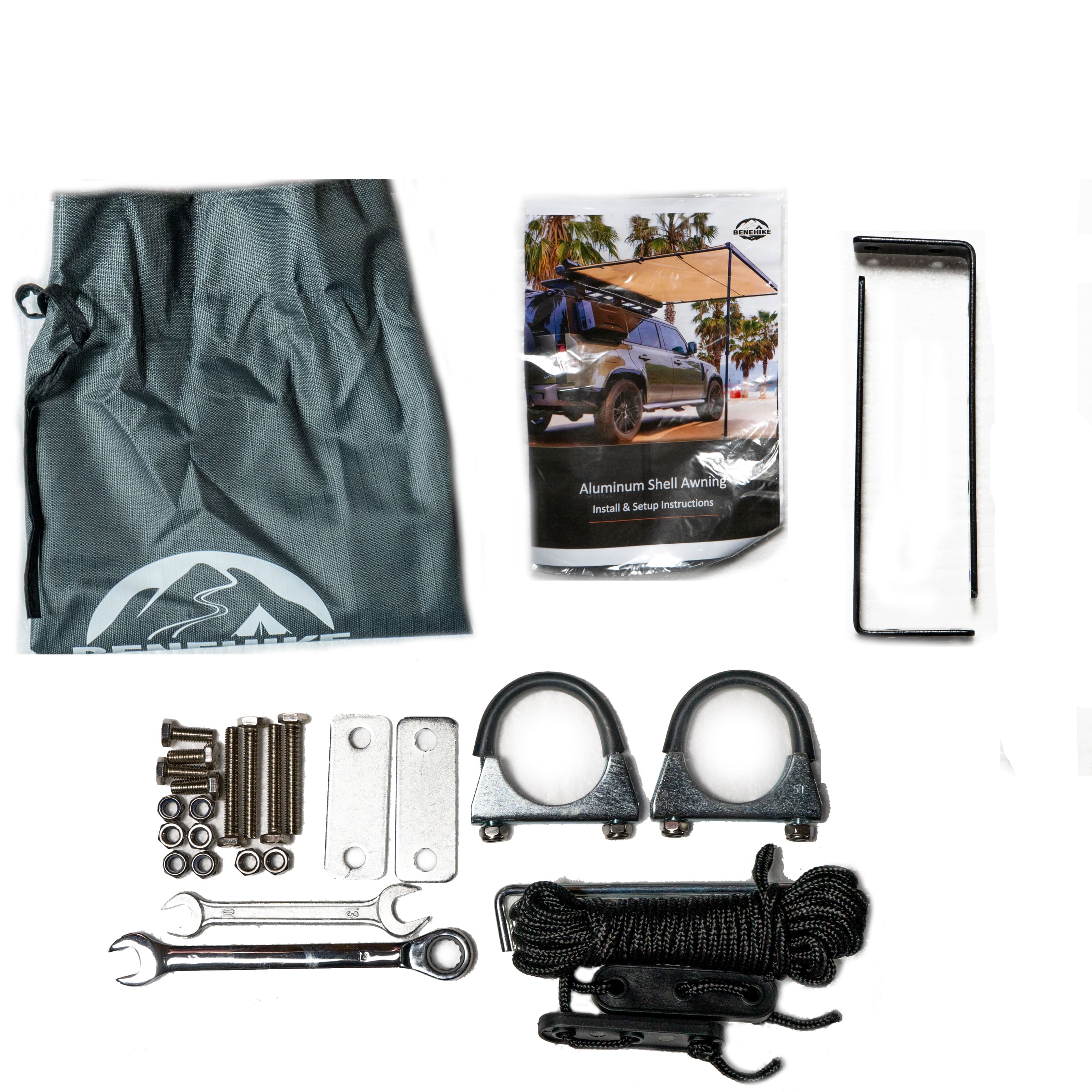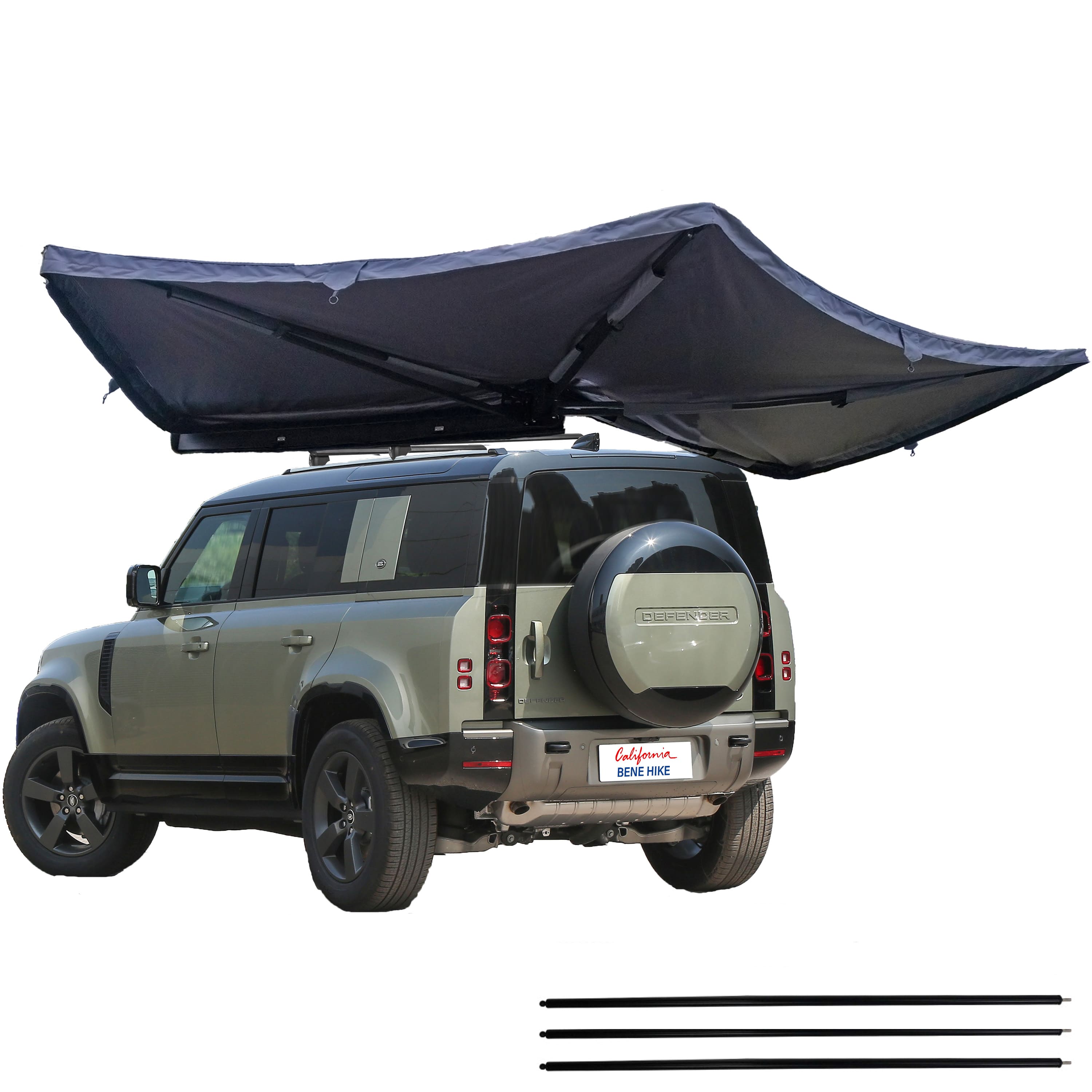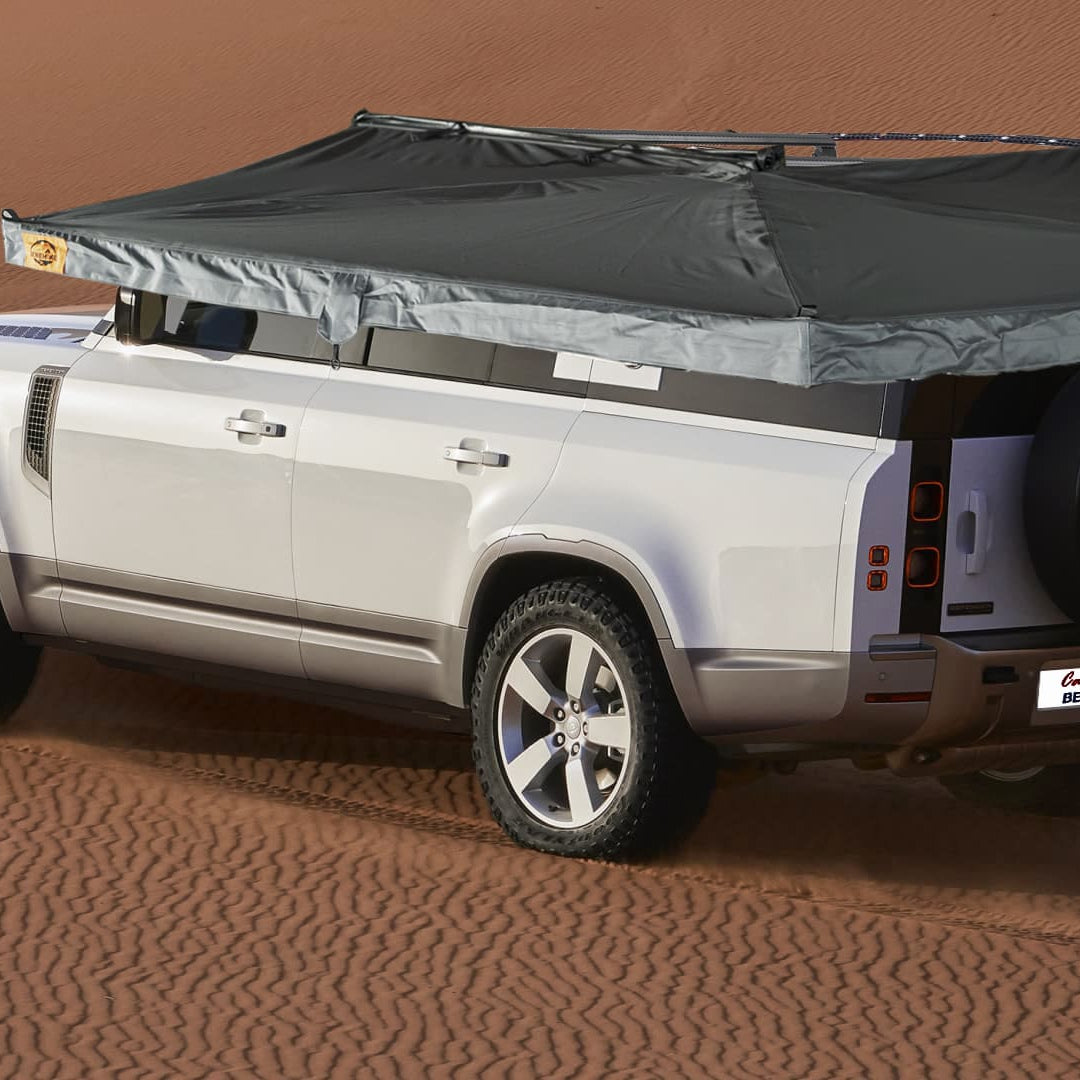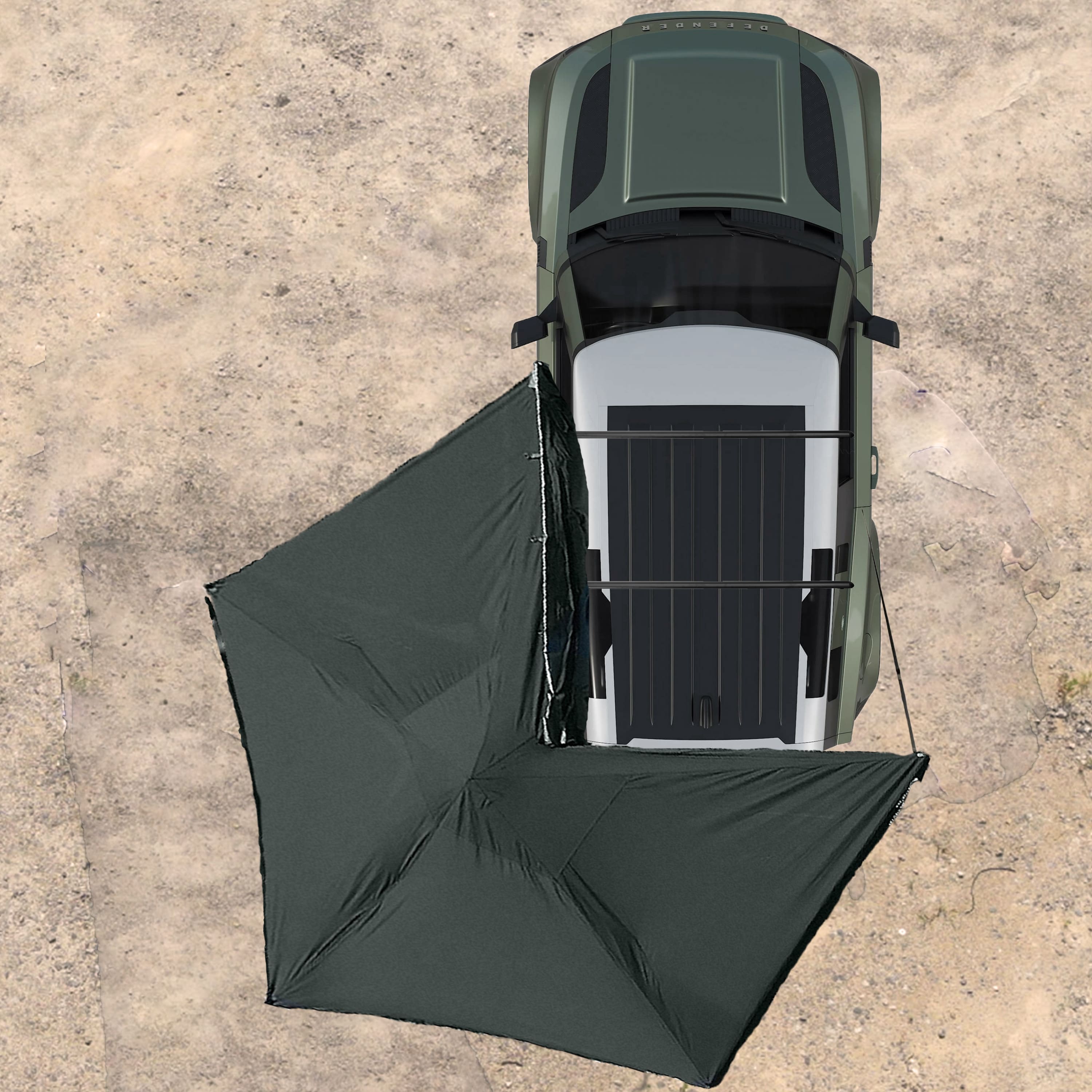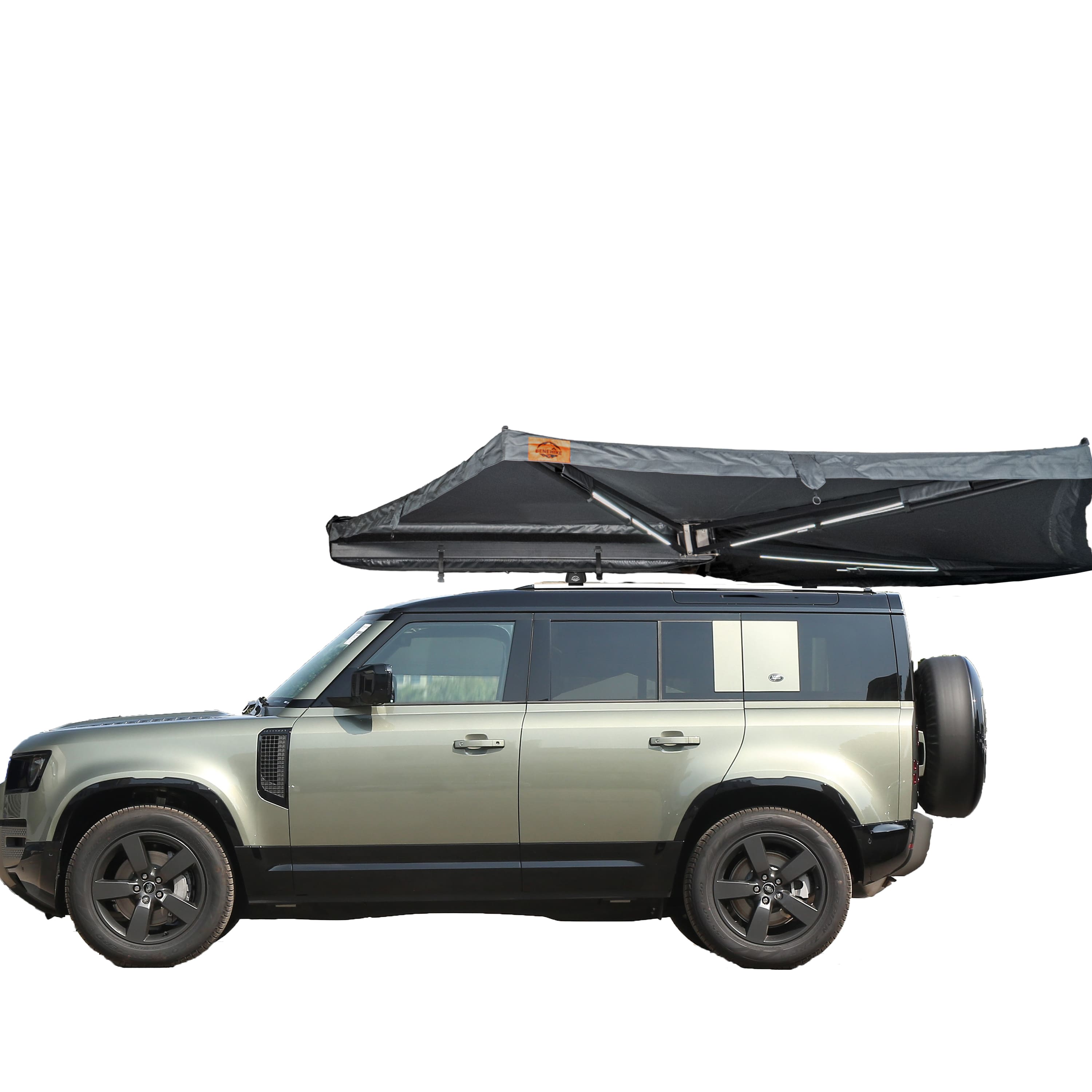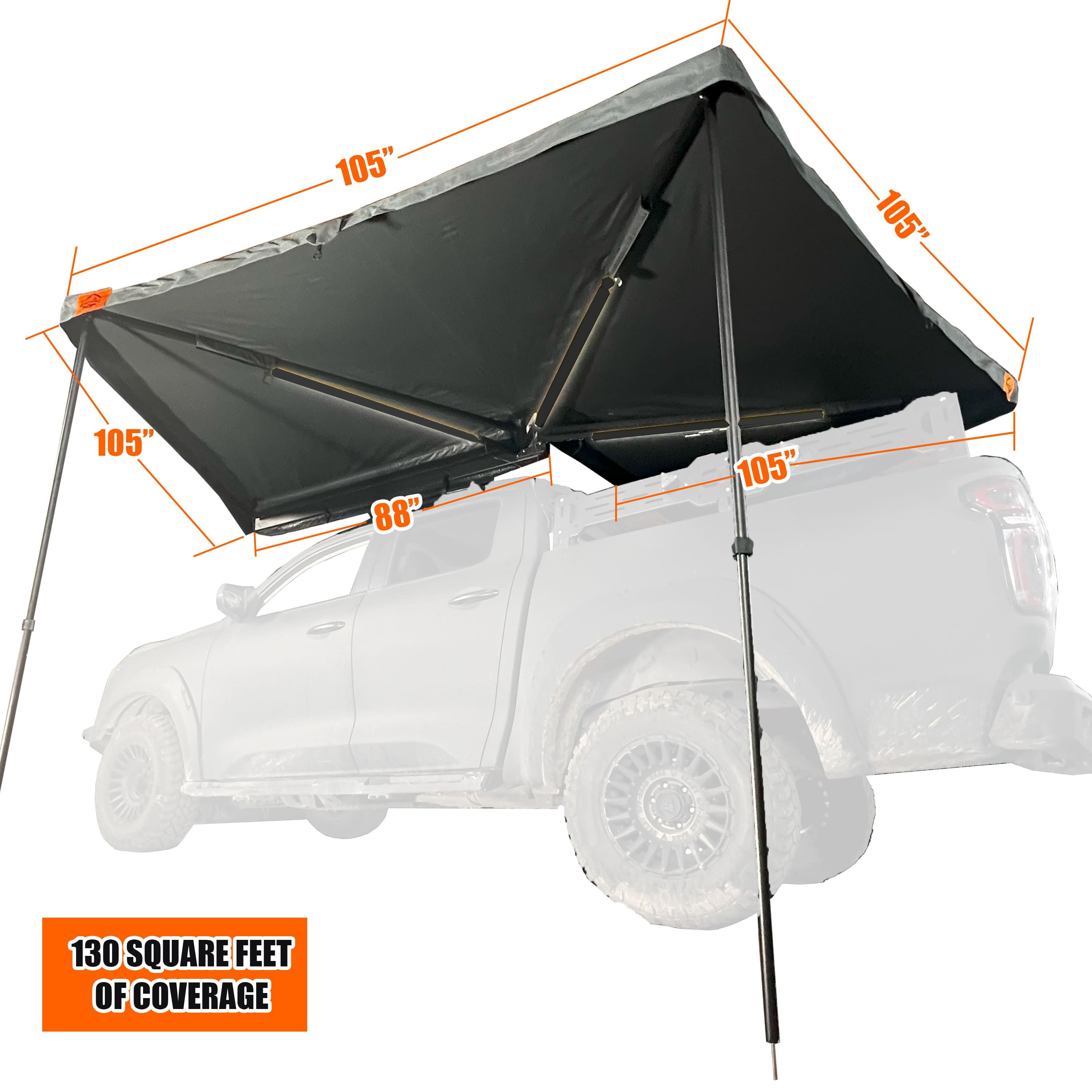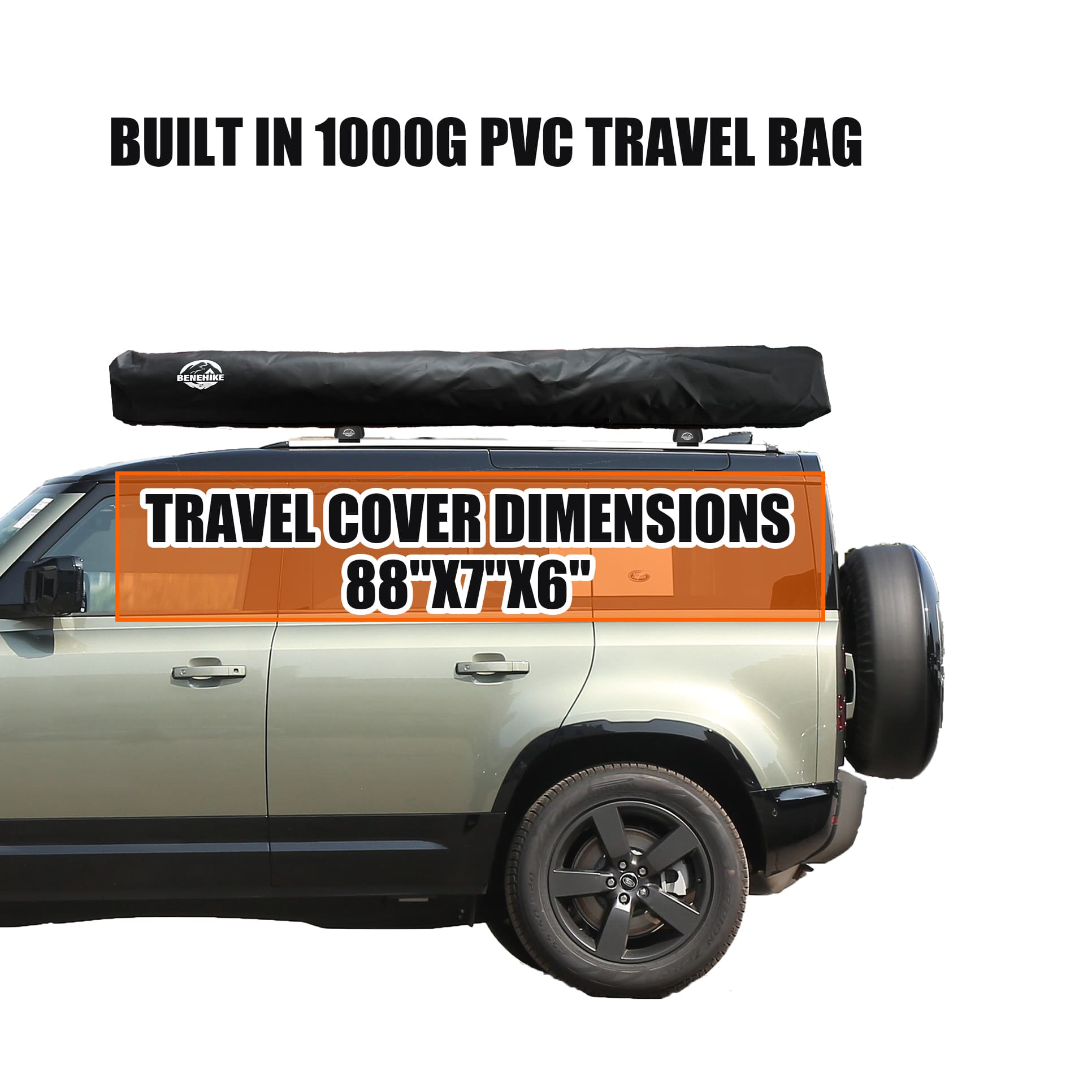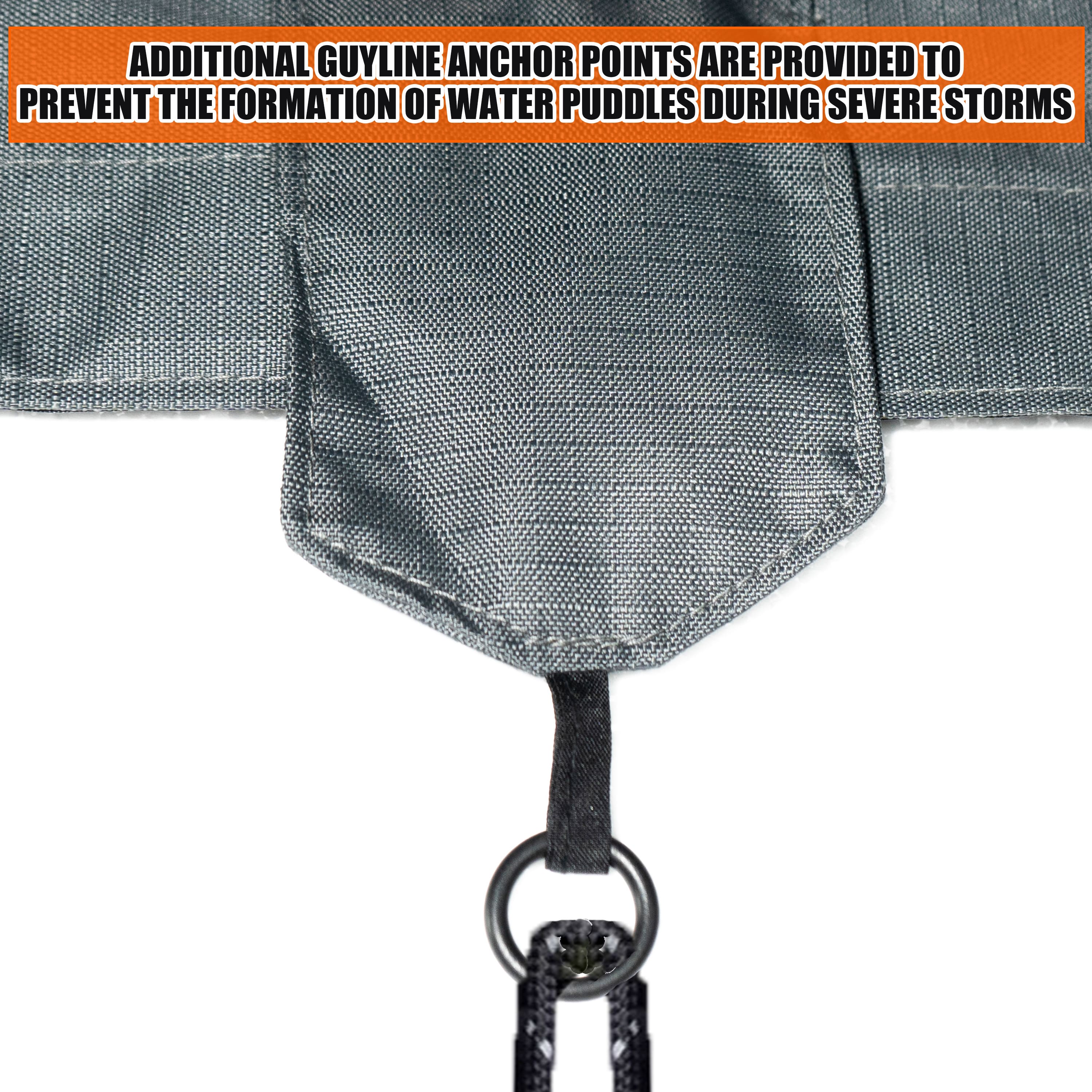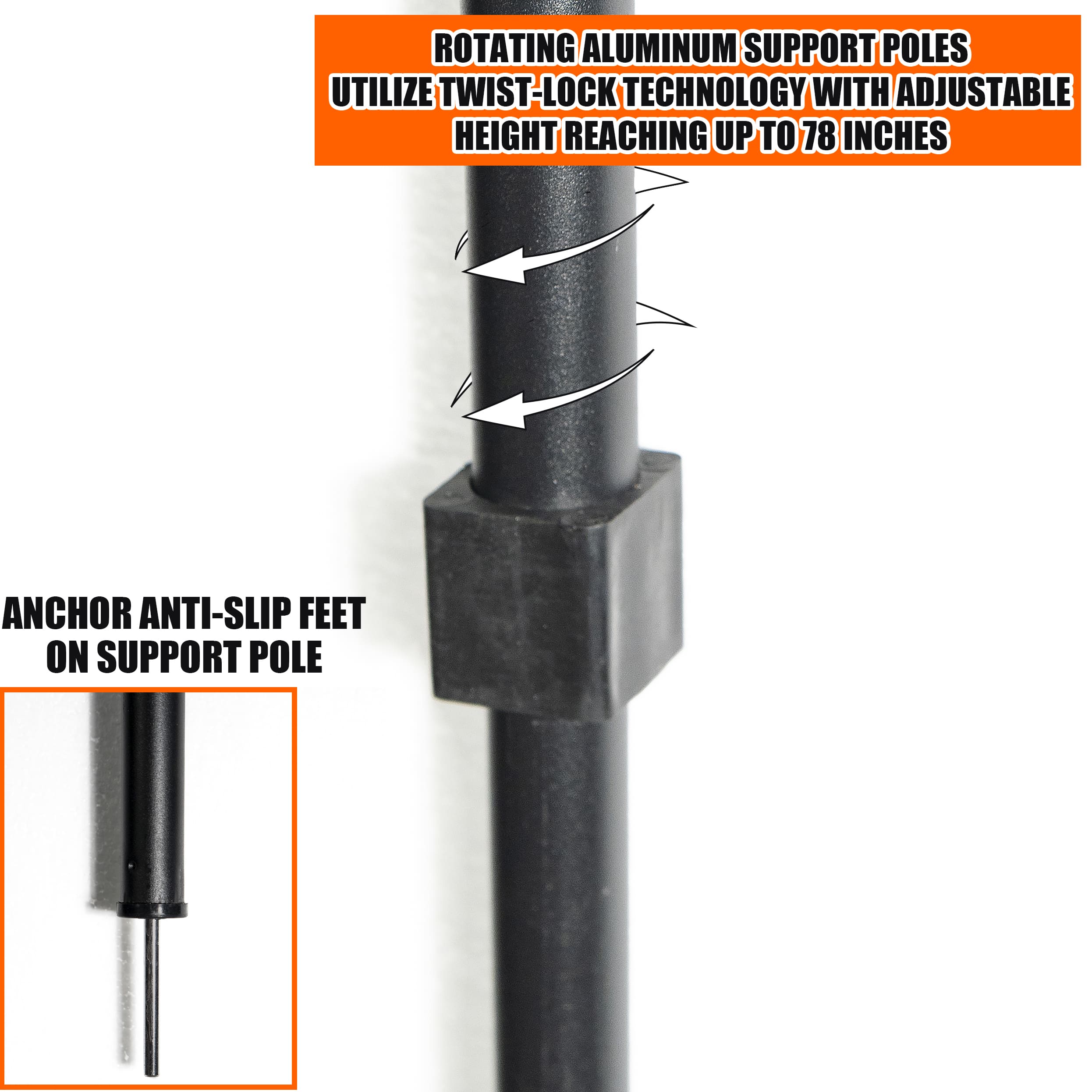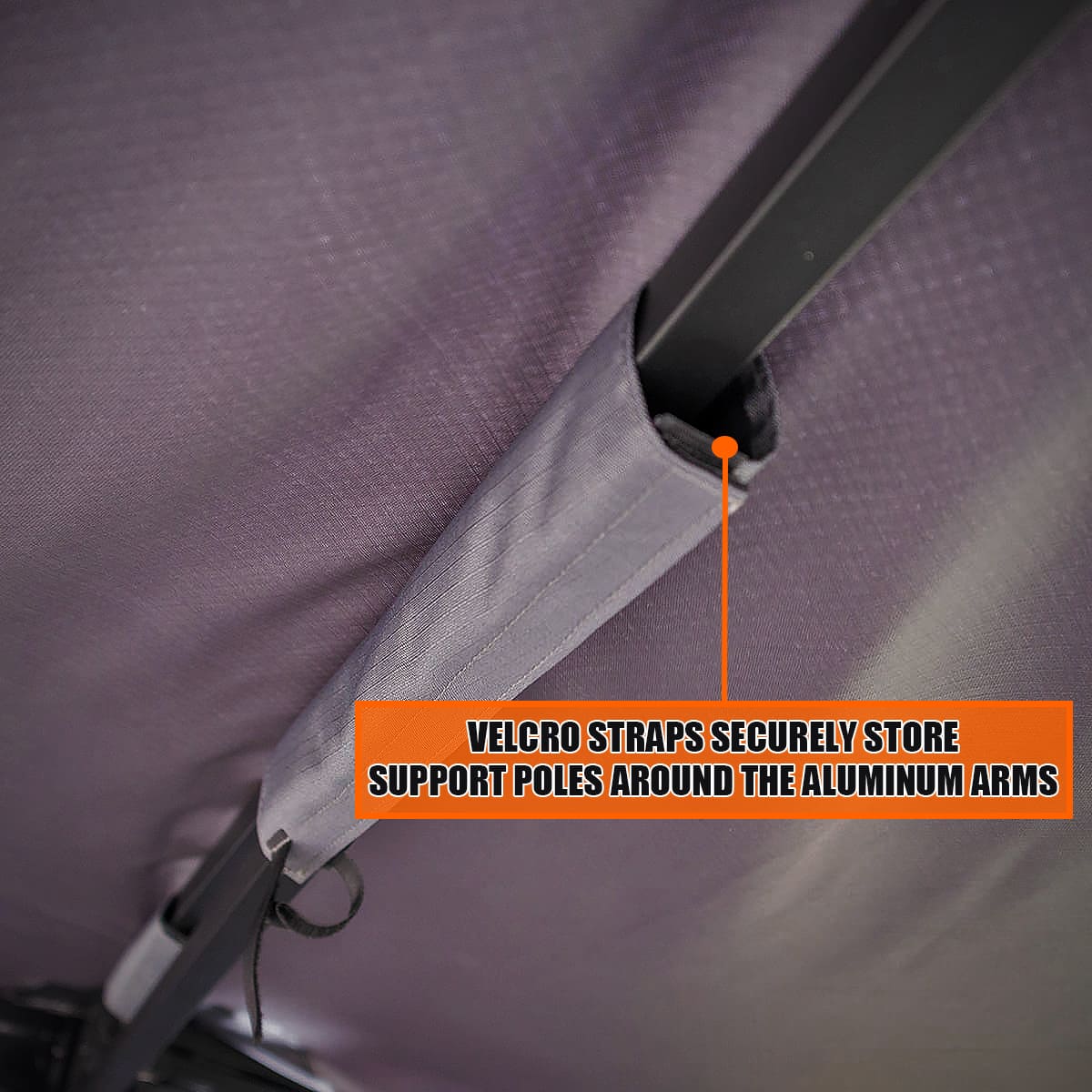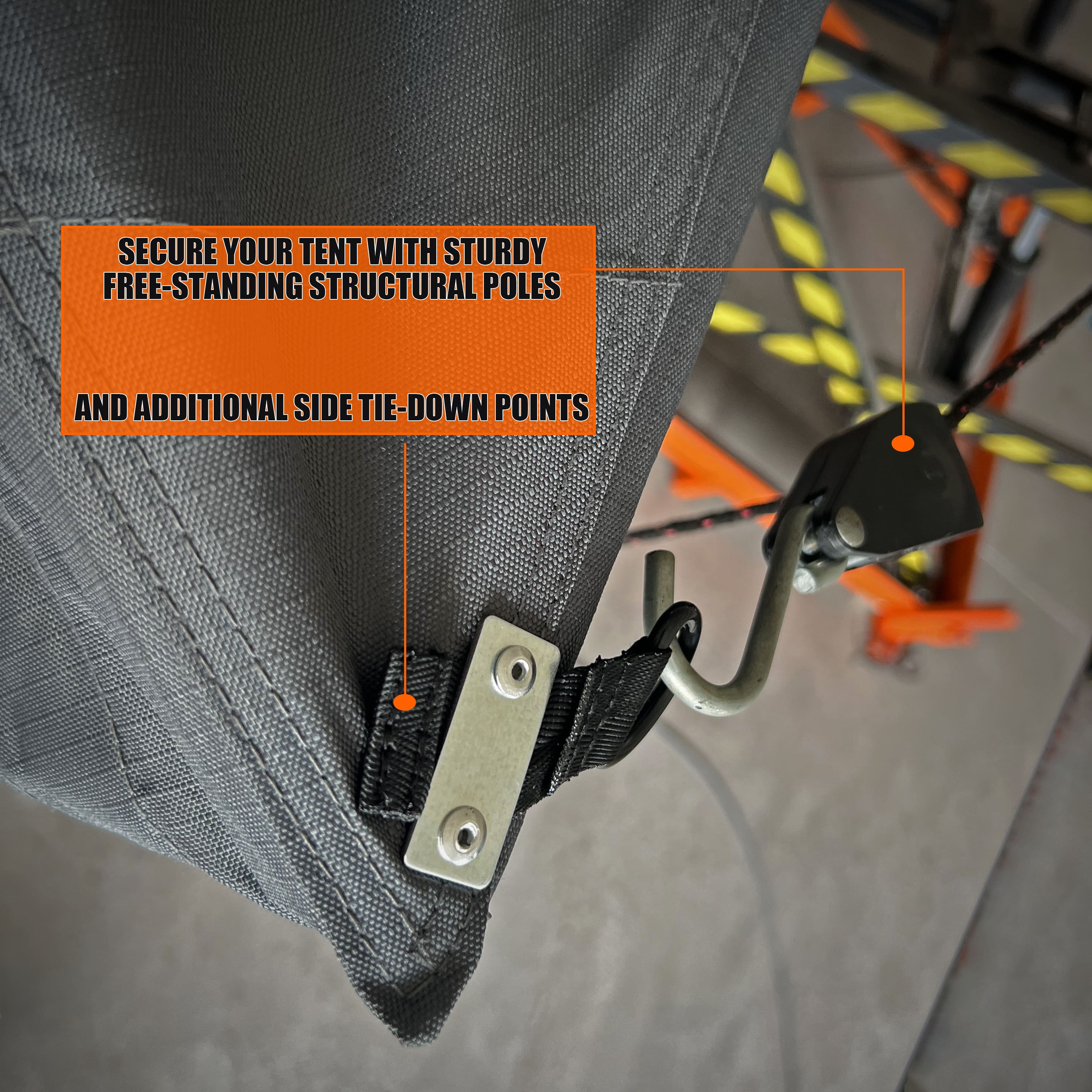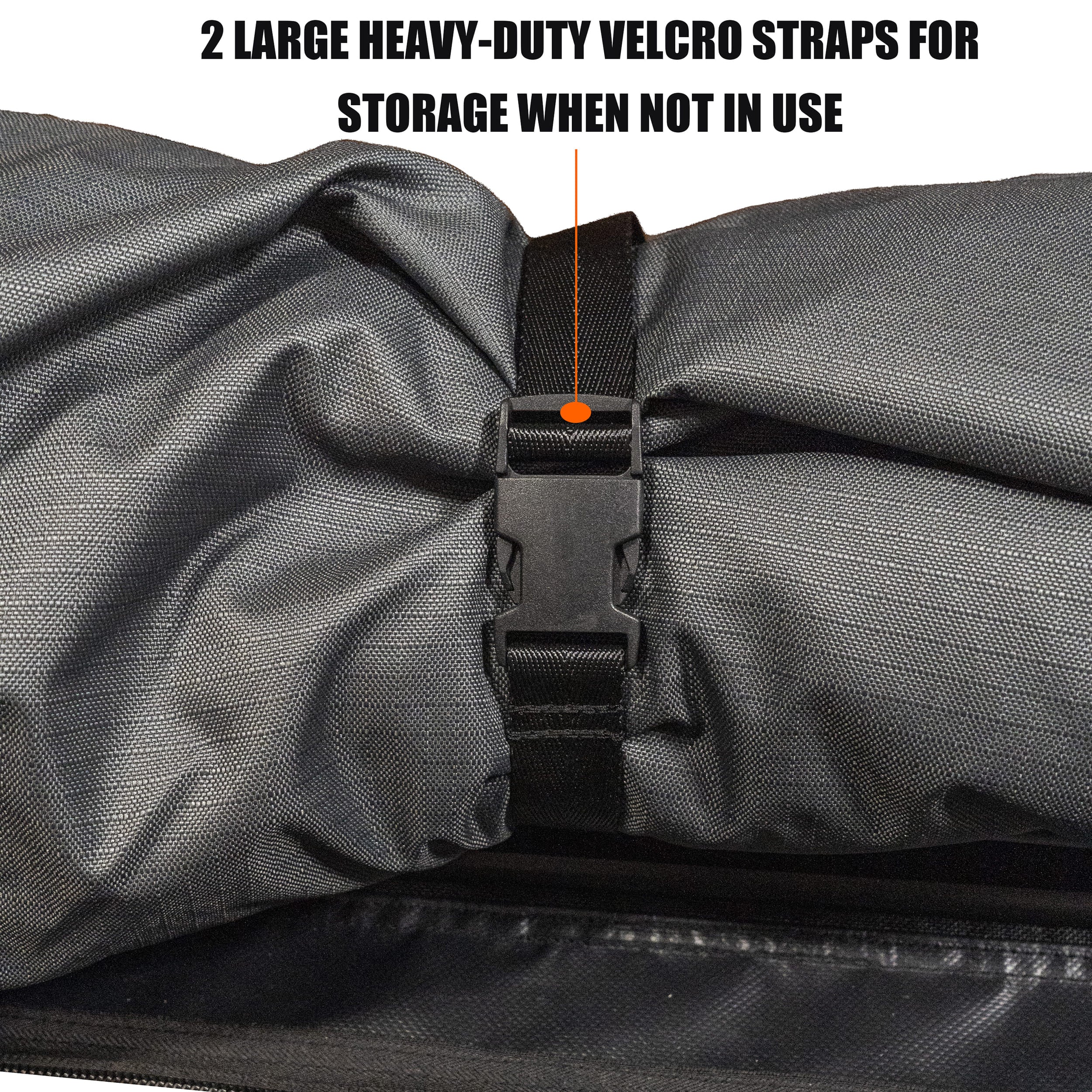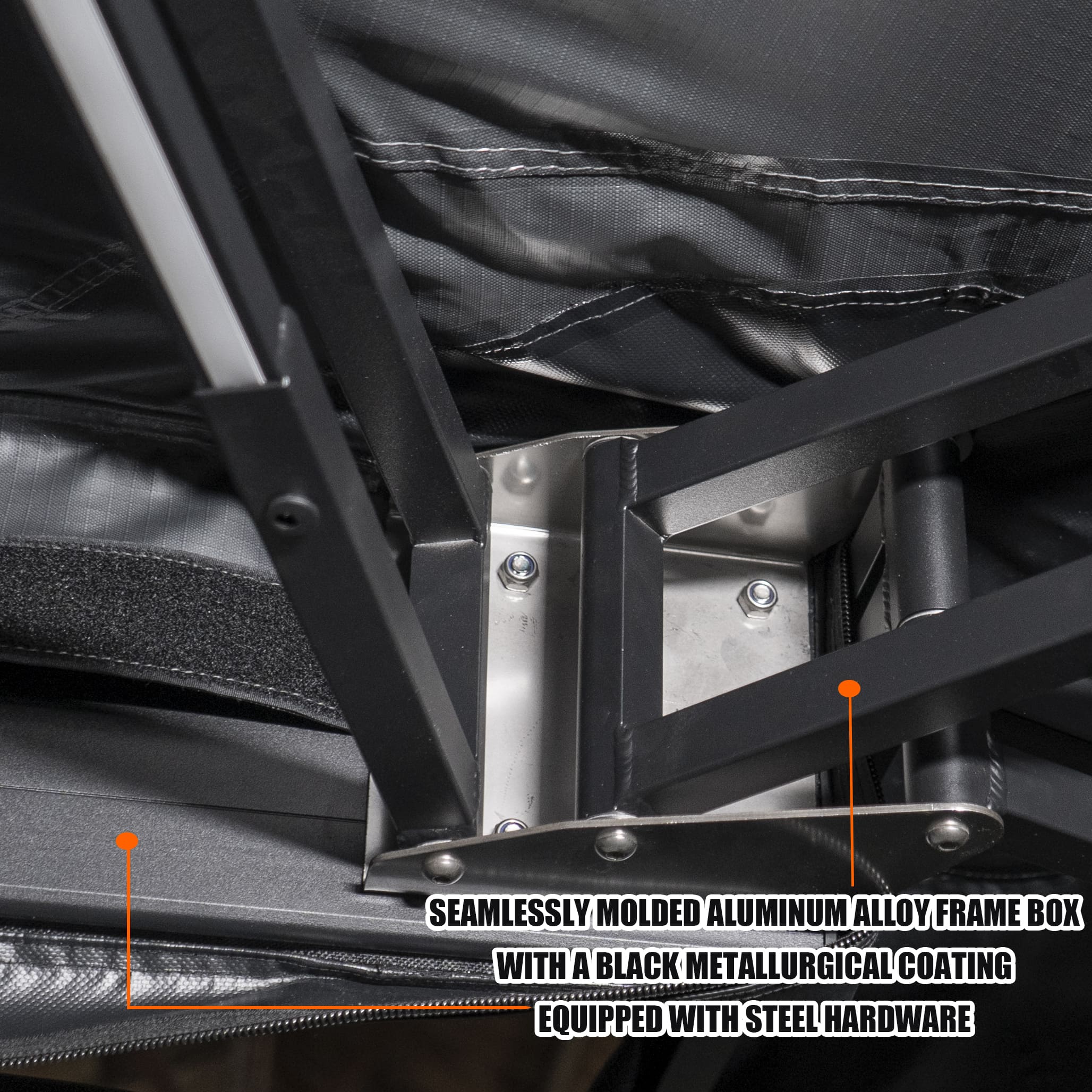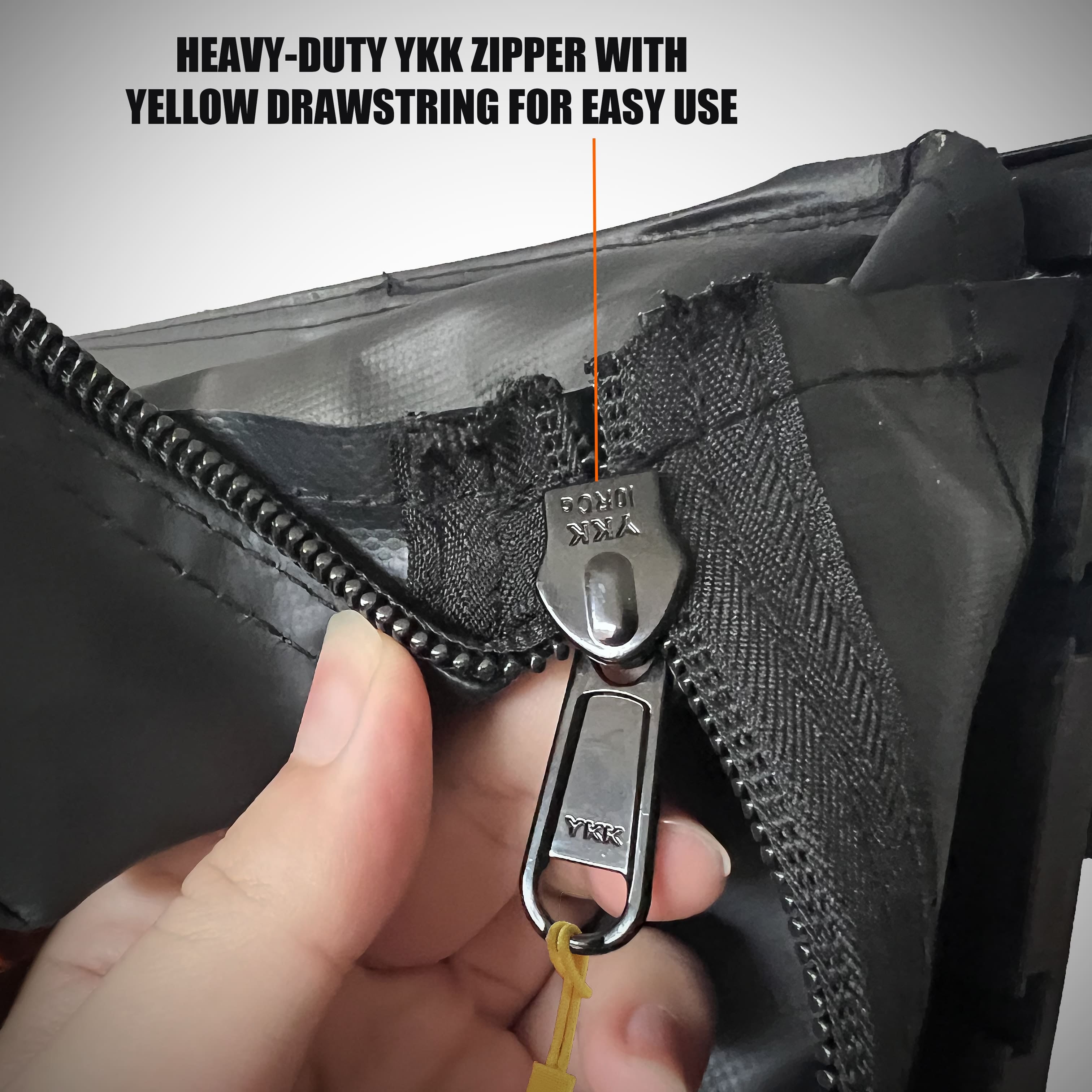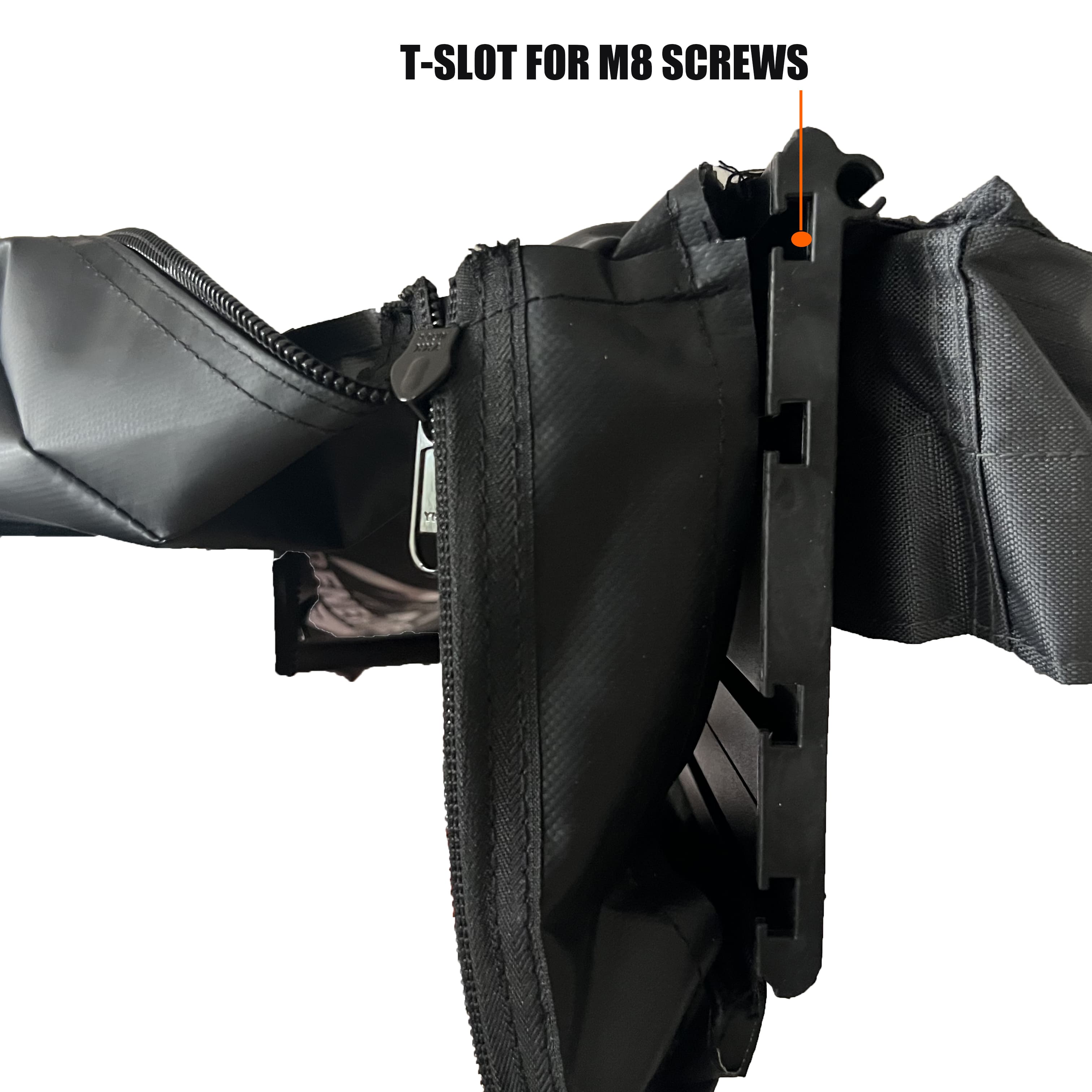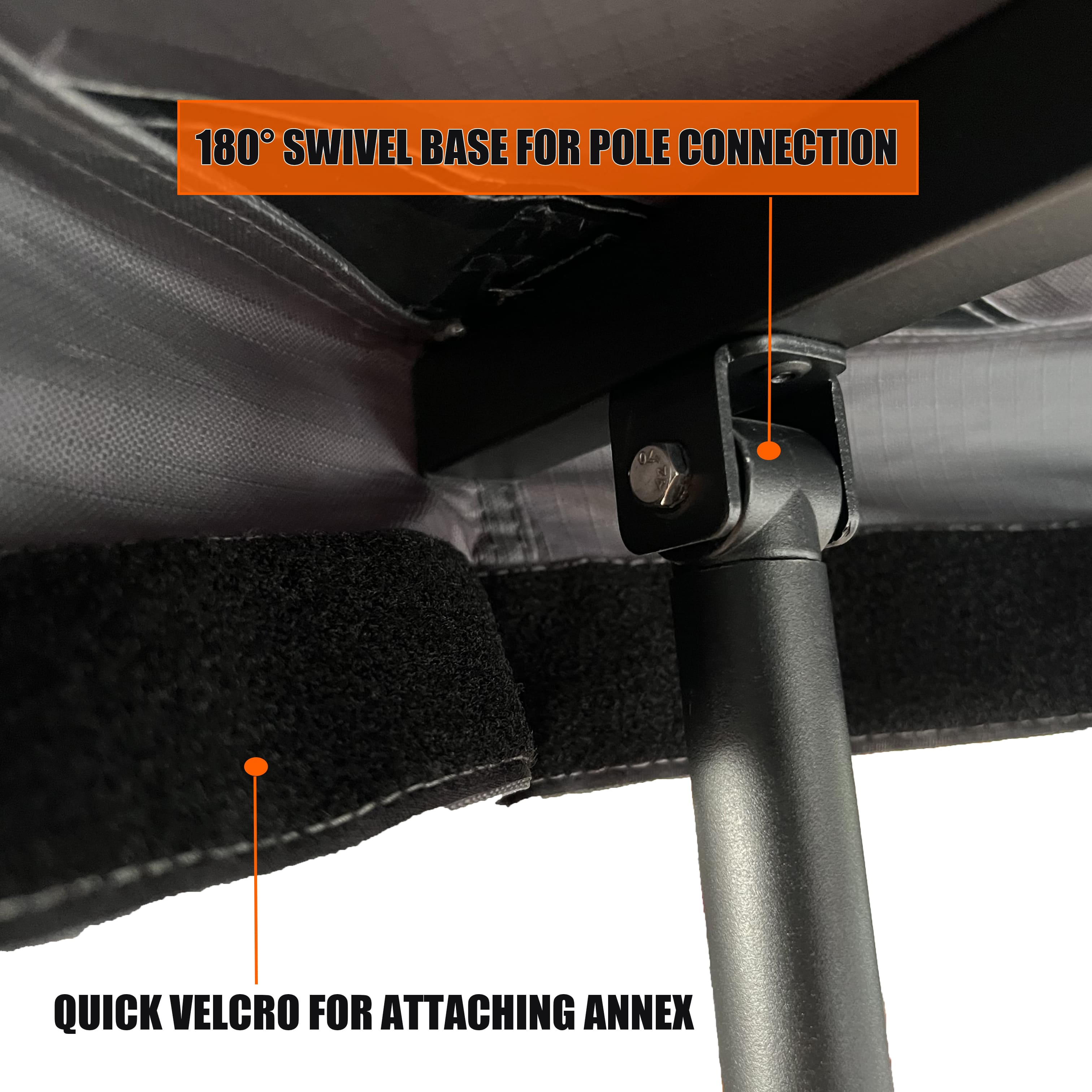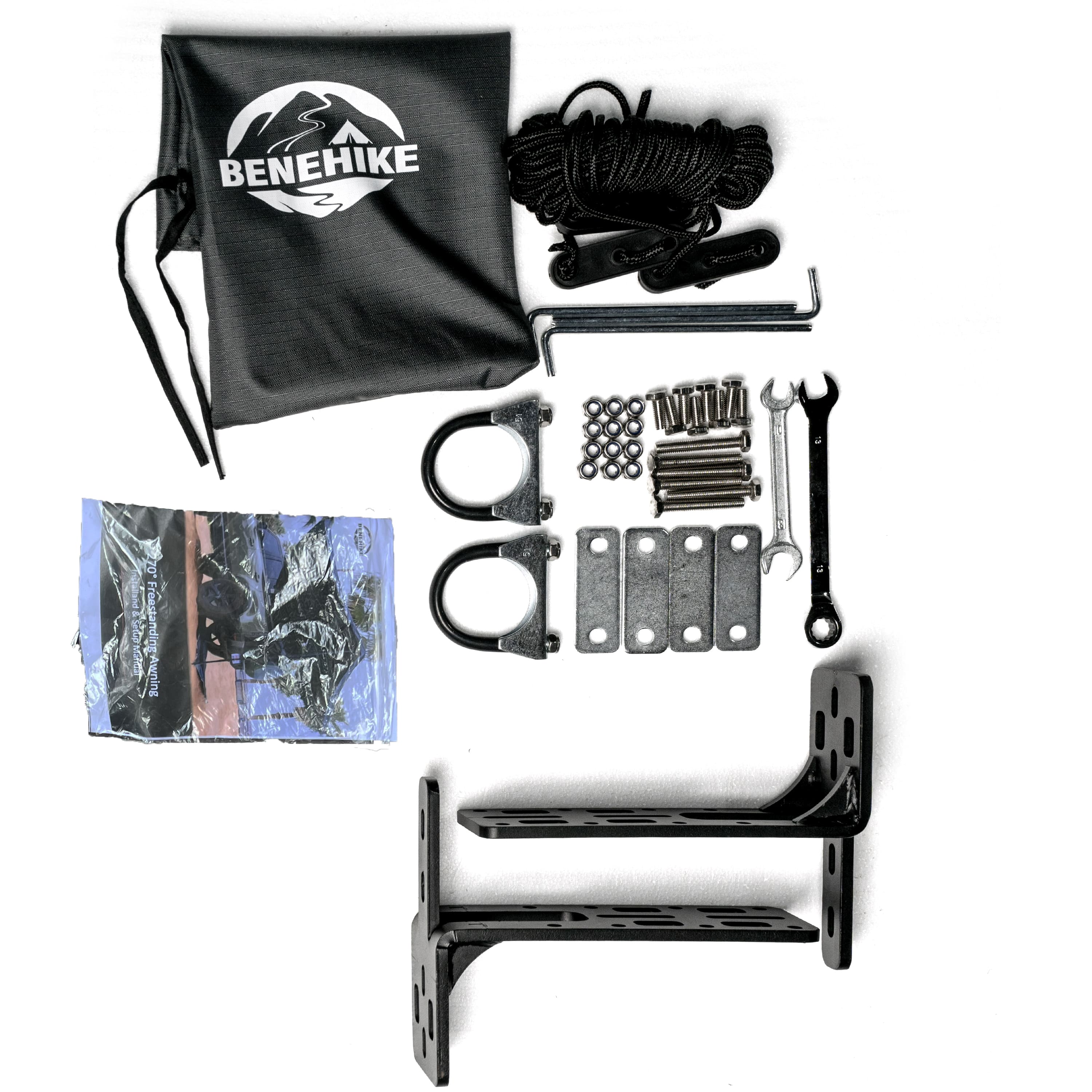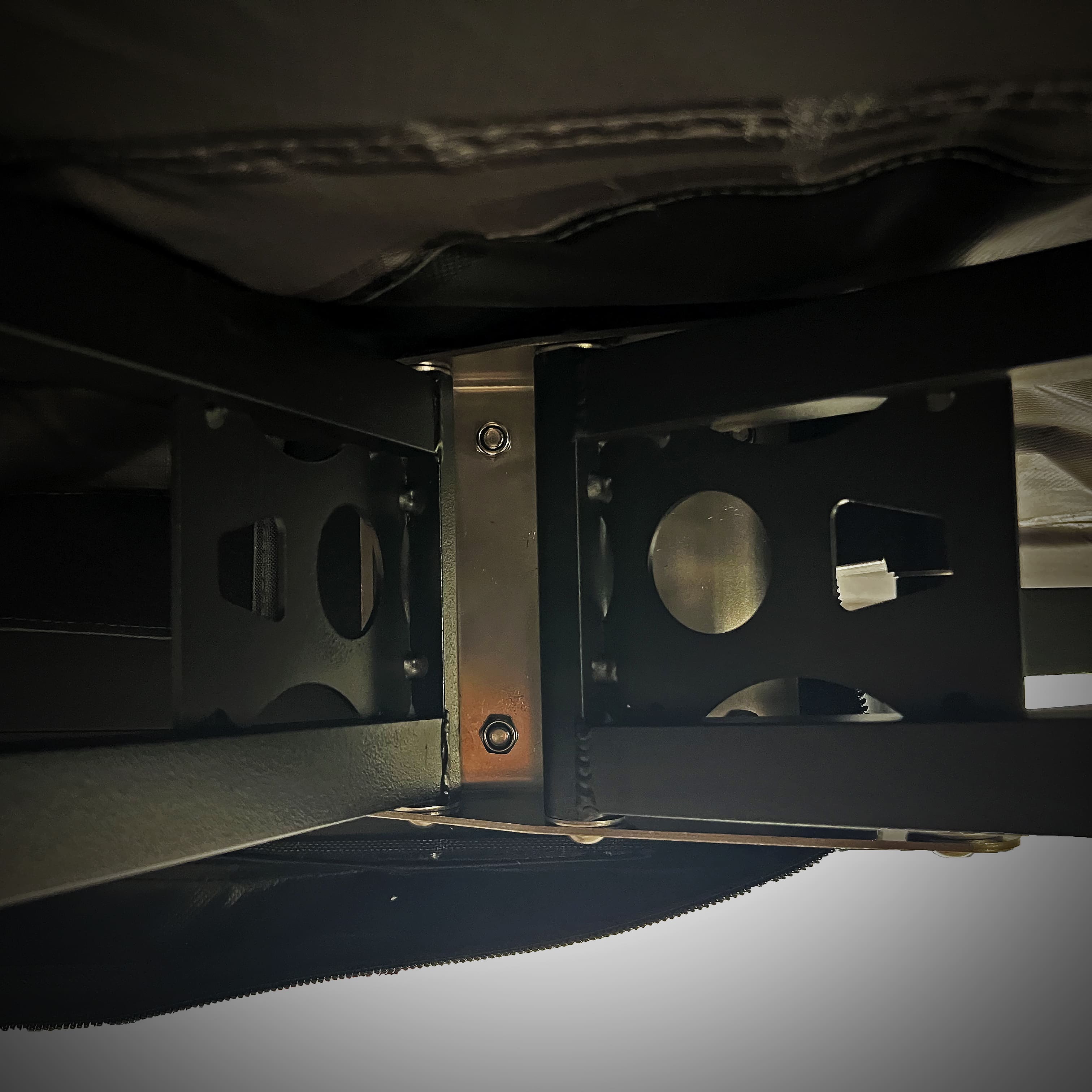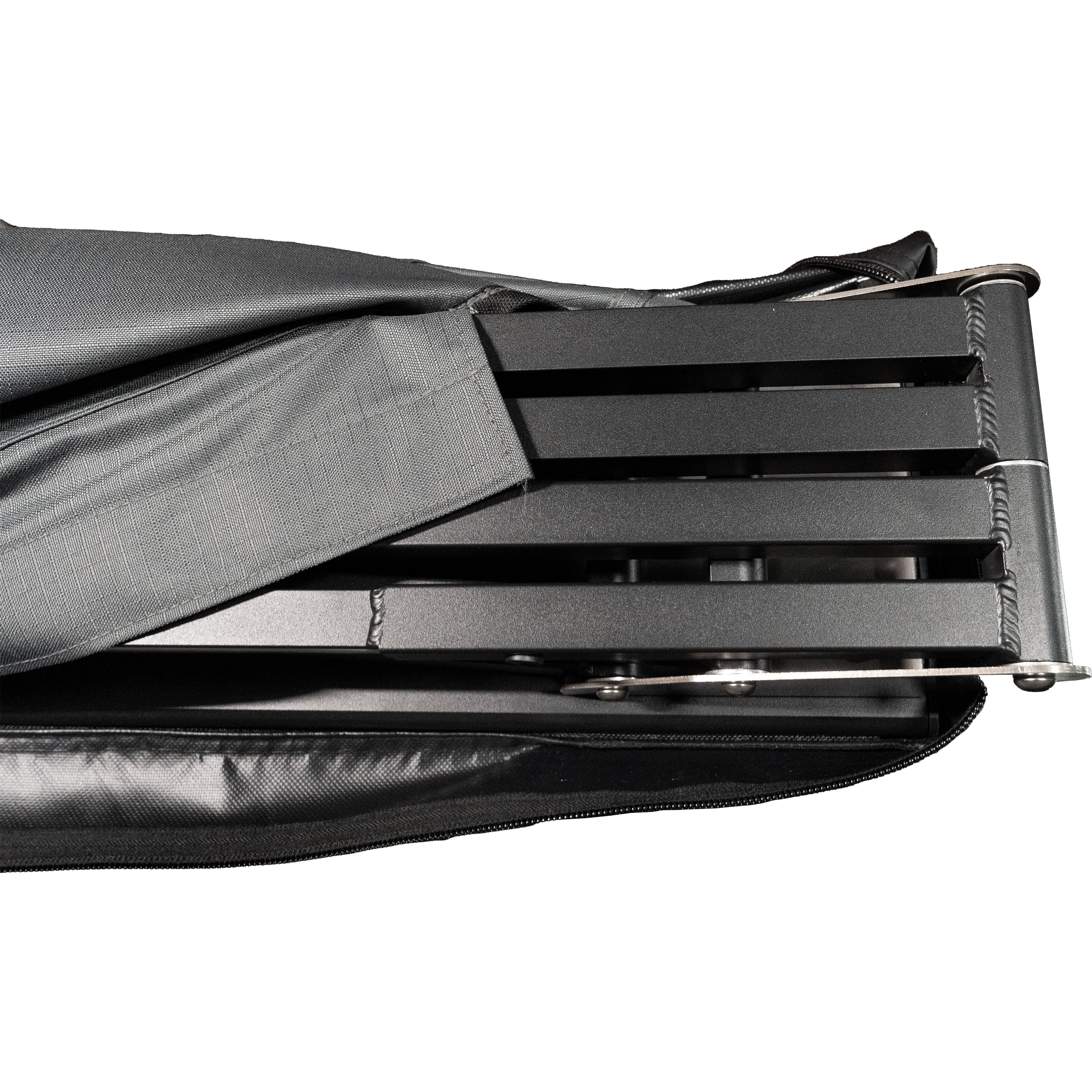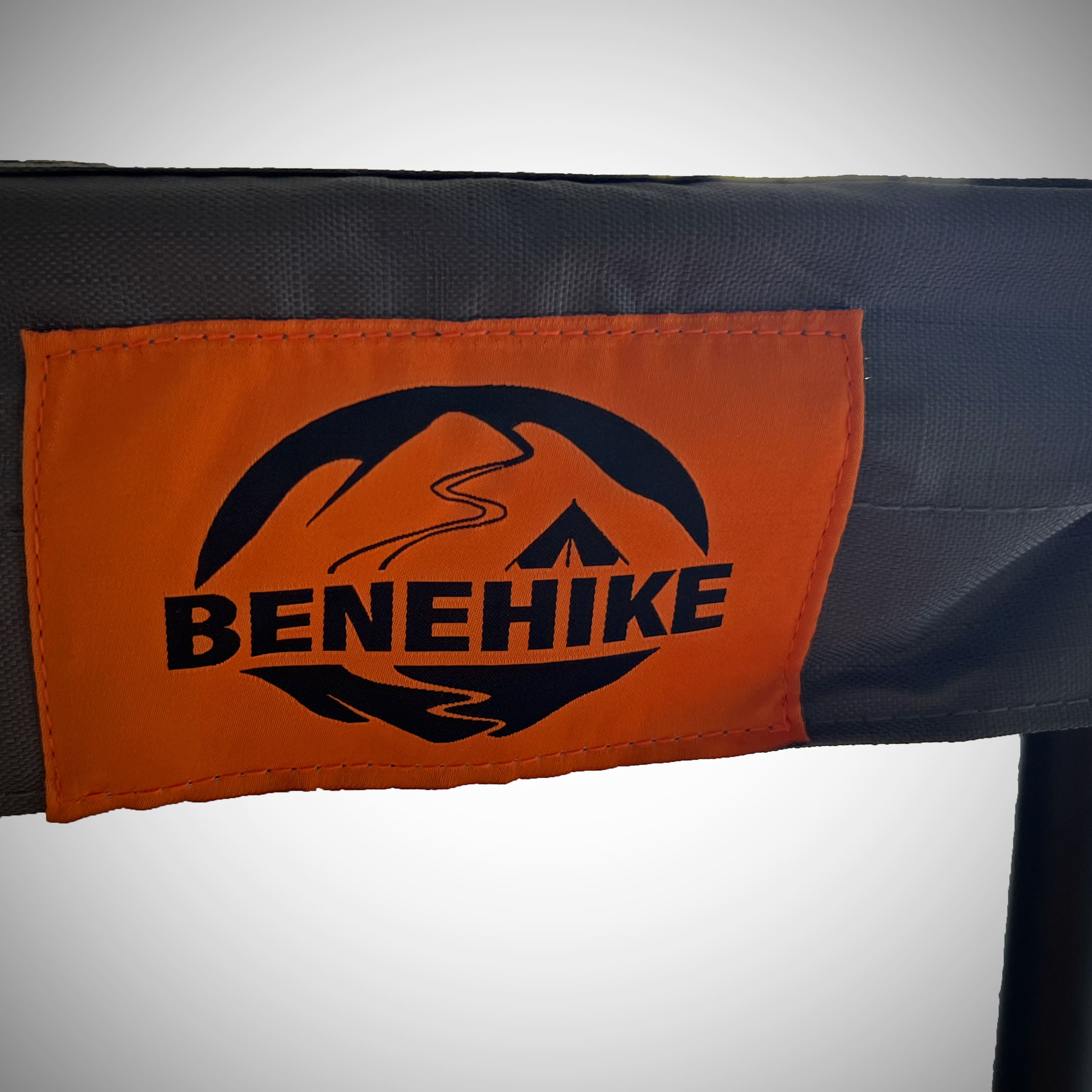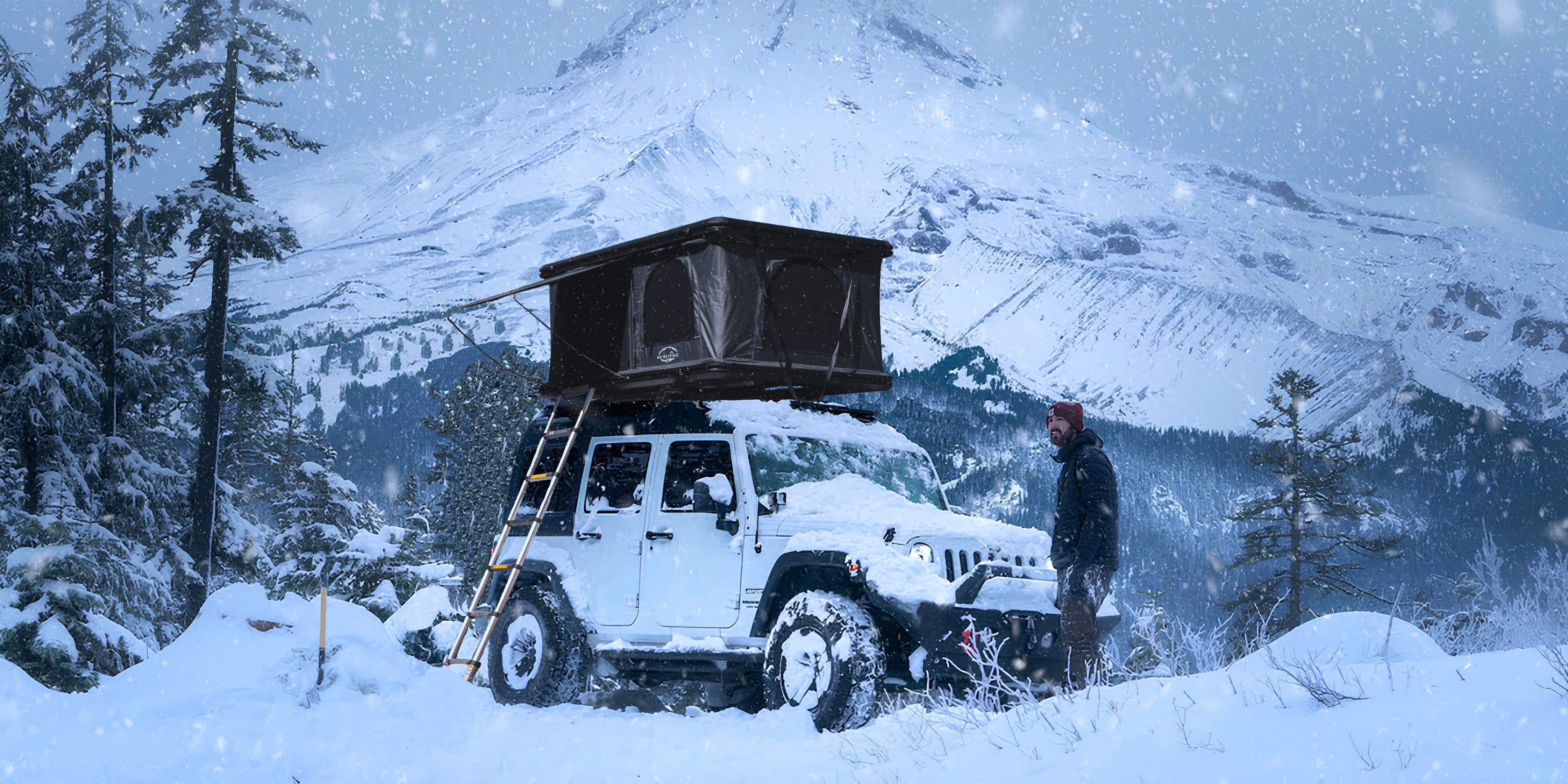If you’re planning for an overlanding adventure for days, you will need a roof top tent. And when considering buying a roof tent, the first decision you’ll make is between a hard shell or a soft shell.
If you’re a beginner into the world of offlanding and roof top tents, don’t worry! We get you covered! And if you’re experienced in this field, you will also you learn something new today, as you will see more detailed information in this blog.
Now let’s dive in! Let’s break down the key differences and advantages of both hard shell roof top tents and soft roof top tents.
Softshell Roof Top Tent
A softshell rooftop tent is a type of tent that you can attach to the roof of your car or truck. It's called "softshell" because it's made of fabric, like the material used in most camping tents. Imagine a regular tent, but instead of setting it up on the ground, you secure it on top of your vehicle.
Soft Shell Roof Top Tent Benefits:
Affordability: Soft shell roof tents are the budget-friendly choice, costing between £850 - £2,000. In dollars, that's $900 - $2,500, or in euros, €900 - €2,200. In contrast, hard shell versions will set you back between £1,600 - £3,300 ($1,850 - $4,000 or €1,750 - €3,500).
Stargazing: Some soft top roof tents feature a zippable roof window, so you can enjoy the enchantment of starry night views. Unfortunately, this feature isn't common with hard shell roof tents.
Size Variety: Soft shell designs come in different sizes, including 4 or 5-person tents. It is ideal for larger families. While hard shell roof tents have size limitations due to their construction, which can become too heavy and unwieldy at larger sizes.
Lightweight: Soft shell roof tents are generally lighter, so they will be easier to install on your vehicle. While some hard shell roof tents produced by us are among the lightest for their size, they are still heavier compared to most soft shell alternatives.
Hardshell Roof Top Tent
The "hardshell" part refers to its tough, solid outer cover, kind of like a big, hard suitcase. This shell is usually made of materials like fiberglass or plastic, which protect the tent when it's closed and not in use.
When you're ready to camp, this tent is really easy to set up. You just unlock it and lift the hard top, which often pops up with the help of springs or struts. It's like opening a clamshell, and in just a few minutes, your tent is ready! Some hardshell tents pop straight up, while others open more like a book.
Hard Shell Roof Top Tent Advantages:
Robust Structure: Hard shell roof top tents have a sturdy and stable structure, so they’re more resilient in storms compared to soft shell tents. This structural advantage also gives them higher wind ratings.
Noise Reduction: Hard shell tents can remain quiet in windy conditions due to less fabric rustling. And it’s insulated hard shell designs also absorb rain sounds better. So you can have a peaceful night’s sleep, even in unfavorable weather in the tent.
Insulation: Hard shell tents can retain heat better, and some models come with roof insulation. This is a significant advantage when camping in cold, wet, and windy conditions.
Quick Setup and Packing: Hard shell roof tents are a breeze to set up and pack away, taking around 30 seconds to set up and 1 minute to put away. And this efficiency is especially valuable if you plan to move around frequently during your travels.
Aerodynamic Design: Hard shell roof top tents are more fuel-efficient due to their aerodynamic shape. And such design can bring you a quieter driving experience compared to soft shell models.
Pack with Bedding Inside: You can pack hard shell versions with bedding still inside, so you don’t have to remove bedding each time or settle for a thinner, less comfortable mattress.
Easy to Clean: Cleaning hard shell roof top tents is faster and simpler. This is because dirt tends to come off the shell material more easily, and there are fewer hard-to-reach areas compared to soft shell designs.
Leak Resistance: Soft shell tents can be prone to leaks when rainwater pools on their fabric. Hard shell tents avoid this issue, as the rainwater simply runs off the vertical sides.
Conclusion
In summary, your choice between a hard shell and a soft shell roof top tent really depends on your camping needs. If you have a large family and are budget-conscious, soft shell roof tents might be the way to go. However, if you’re a smaller group, plan to move around frequently, and desire quick setup, a hard shell roof top tent offers a compelling set of advantages. The time and effort you save in setting up and packing might make the additional cost worthwhile.
Here at Benehike, we offer both hard shell roof top tents and soft shell roof top tents designed to cater to your unique camping preferences. We believe that the great outdoors should be accessible to all, and we're here to make your camping experience as comfortable and convenient as possible.

